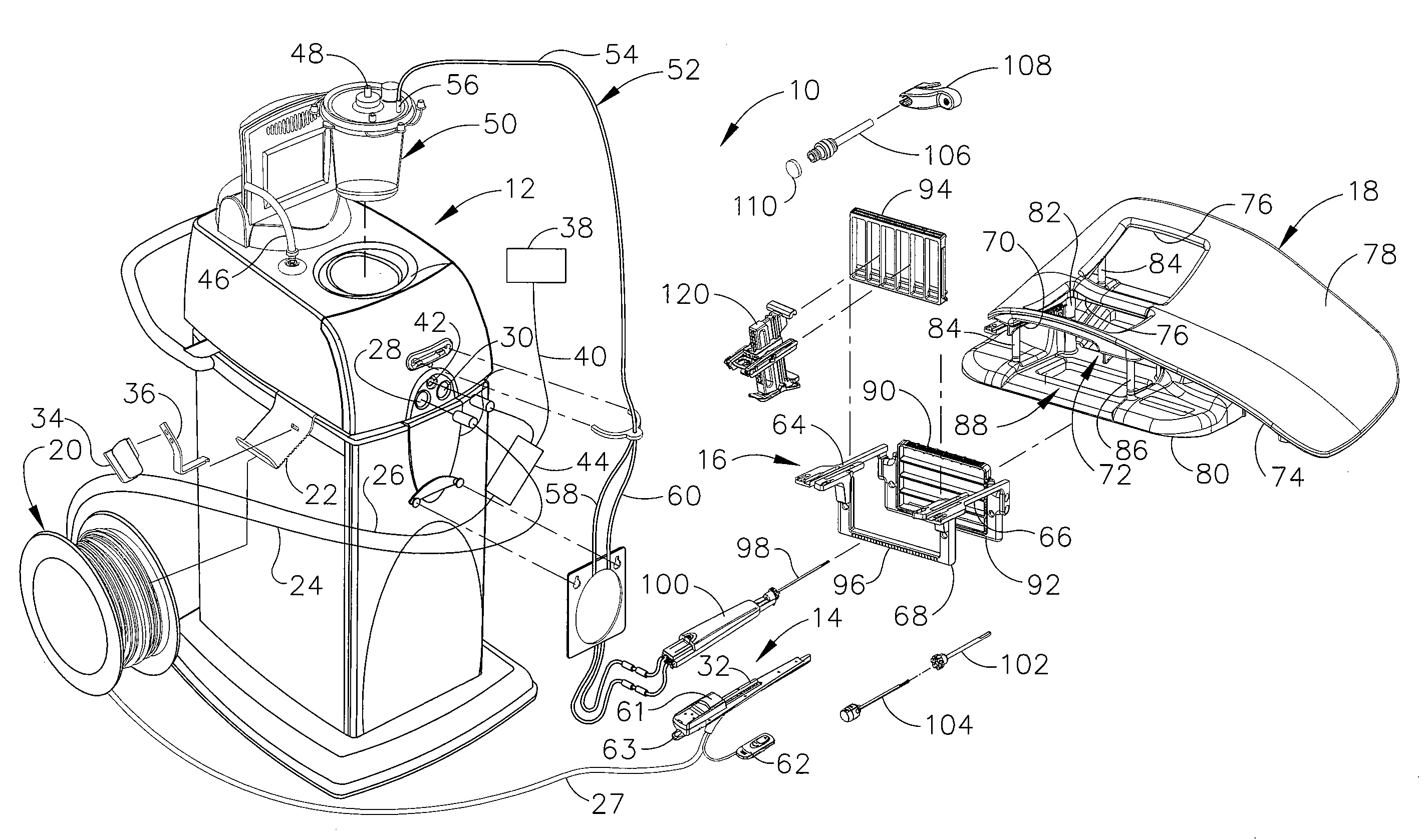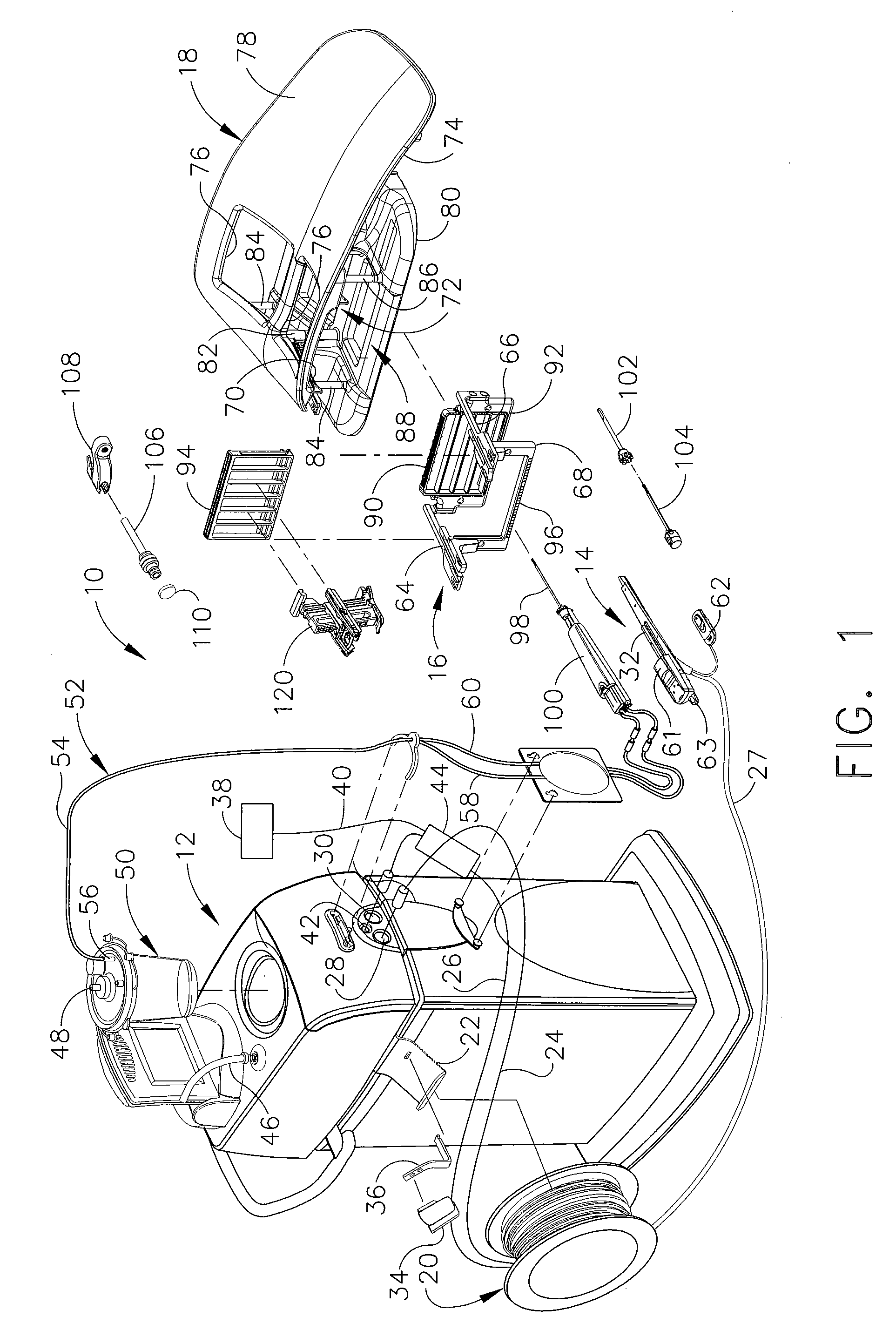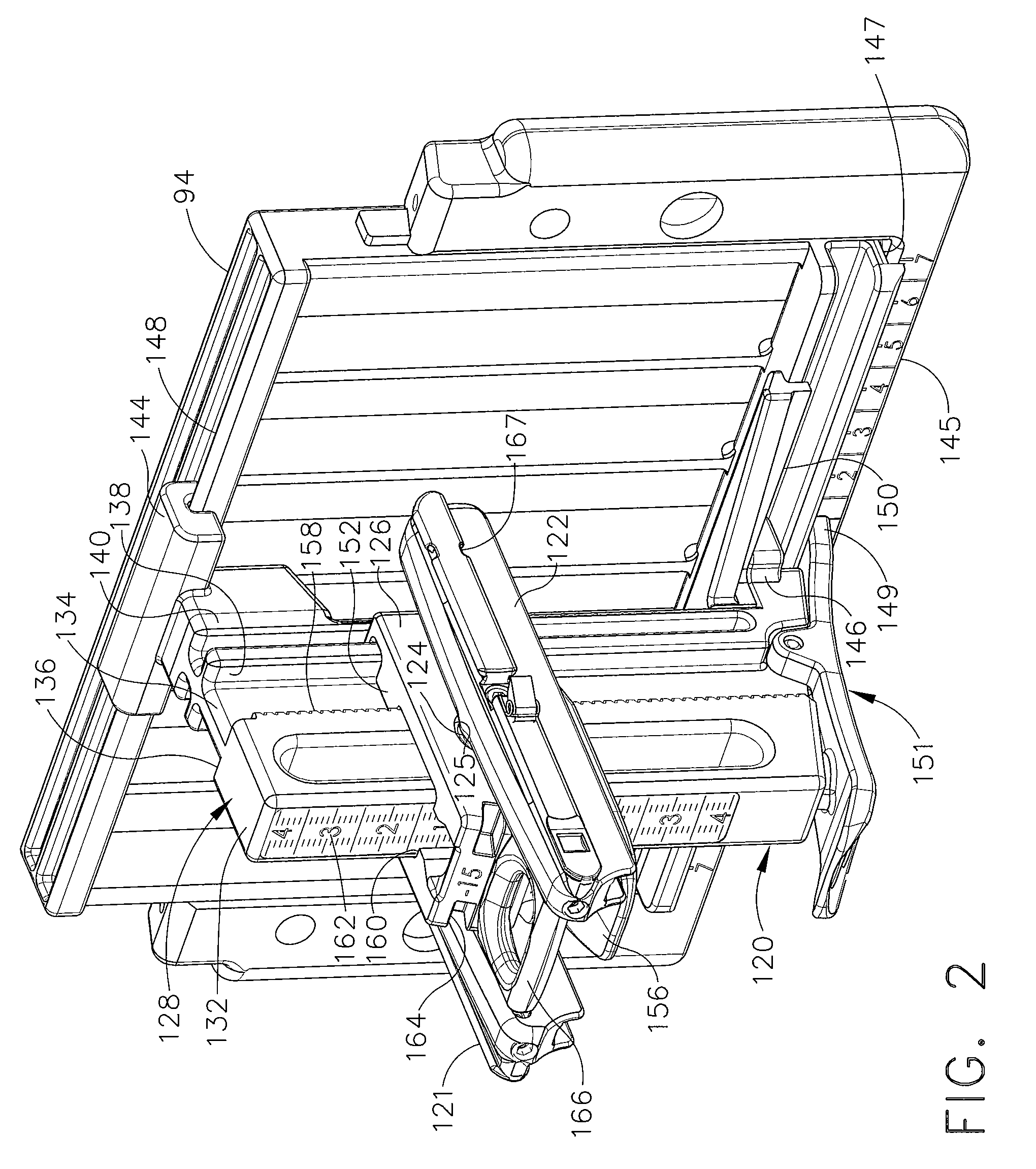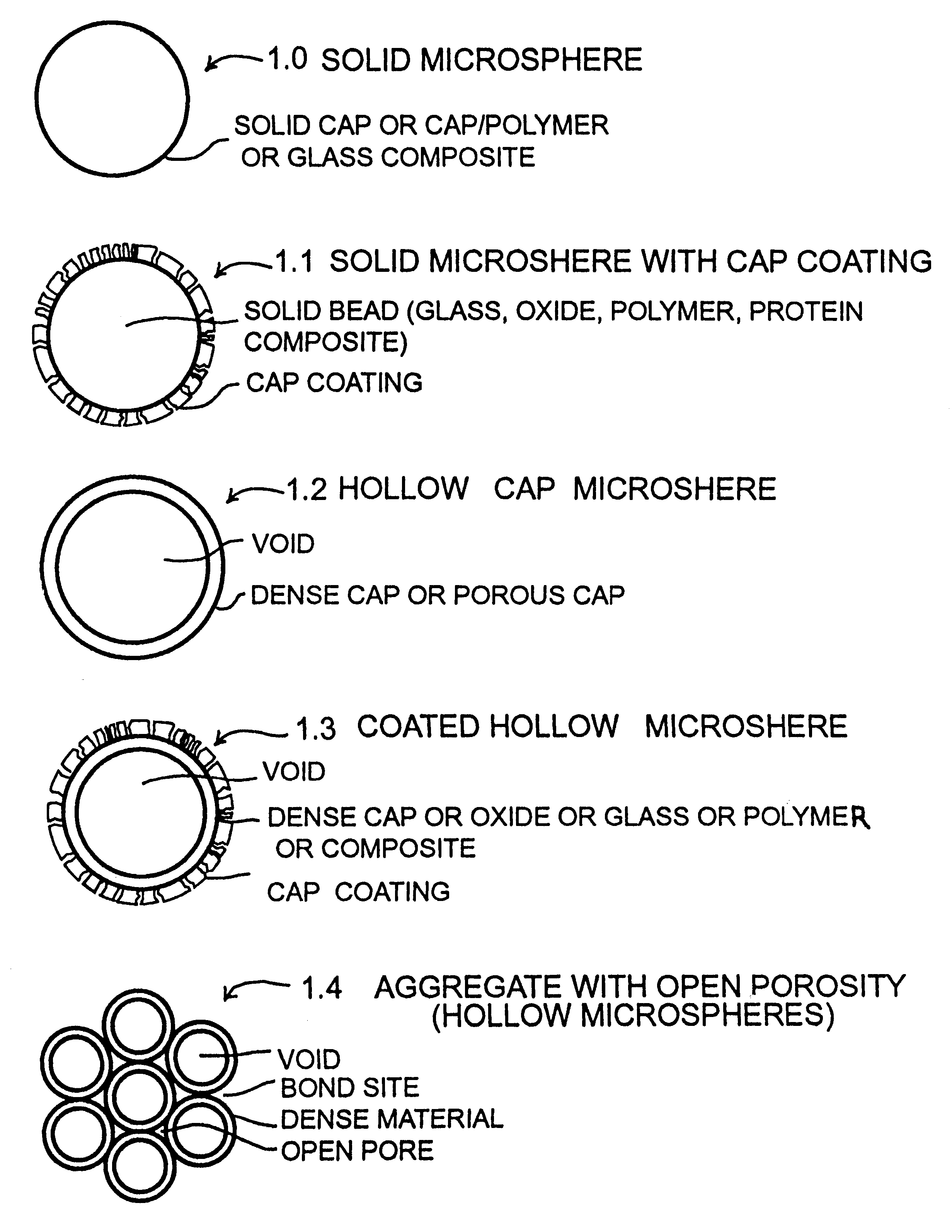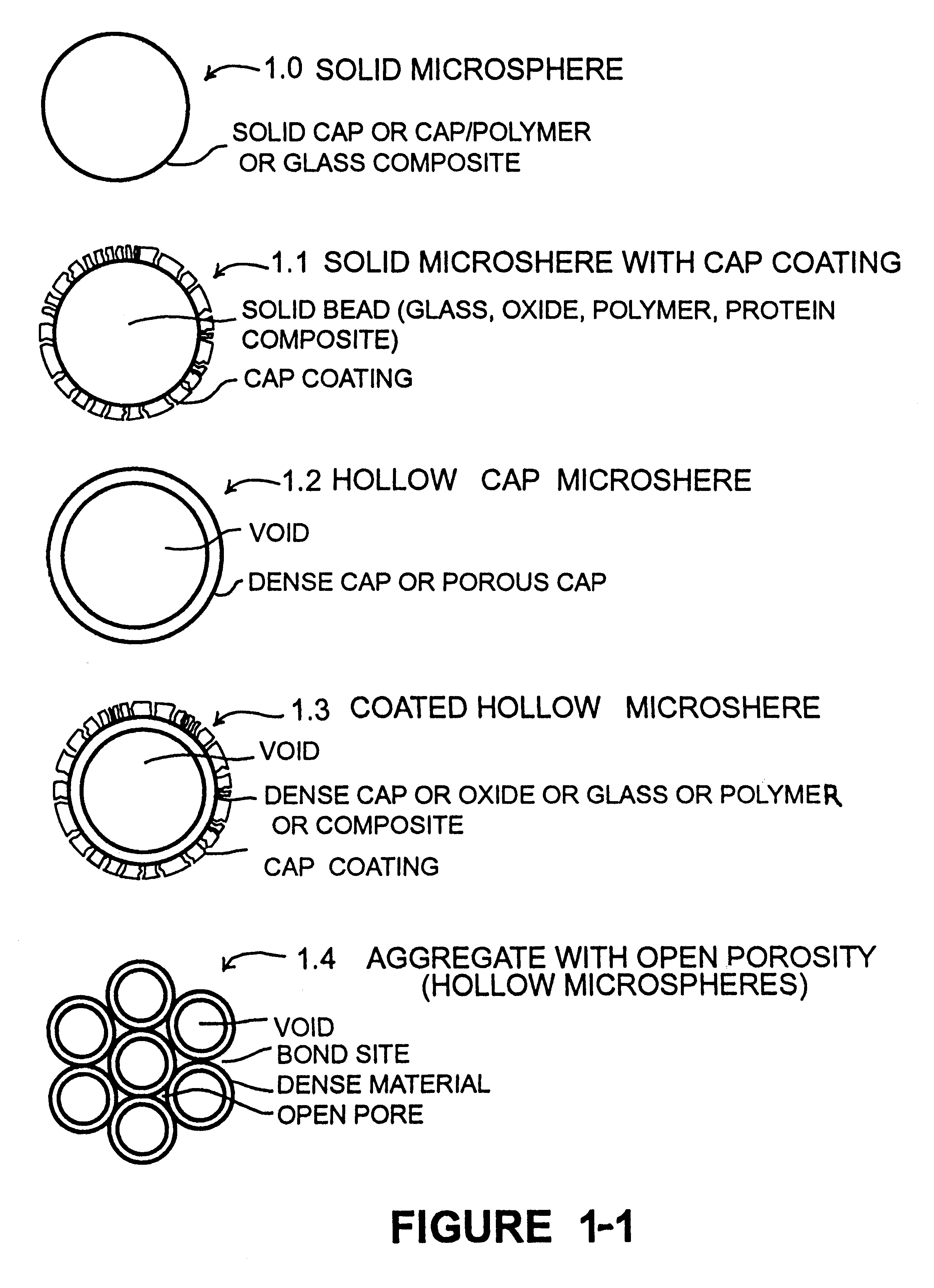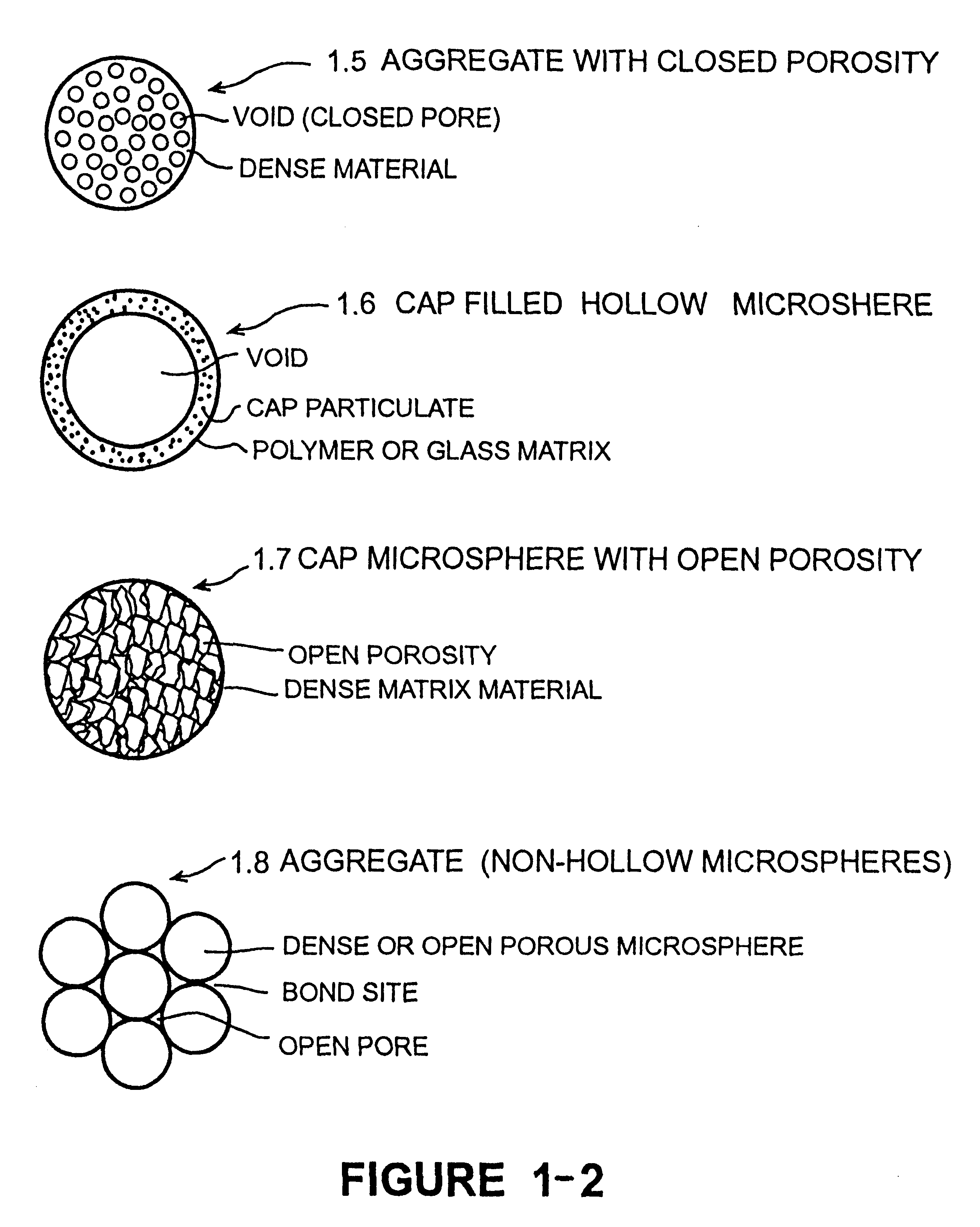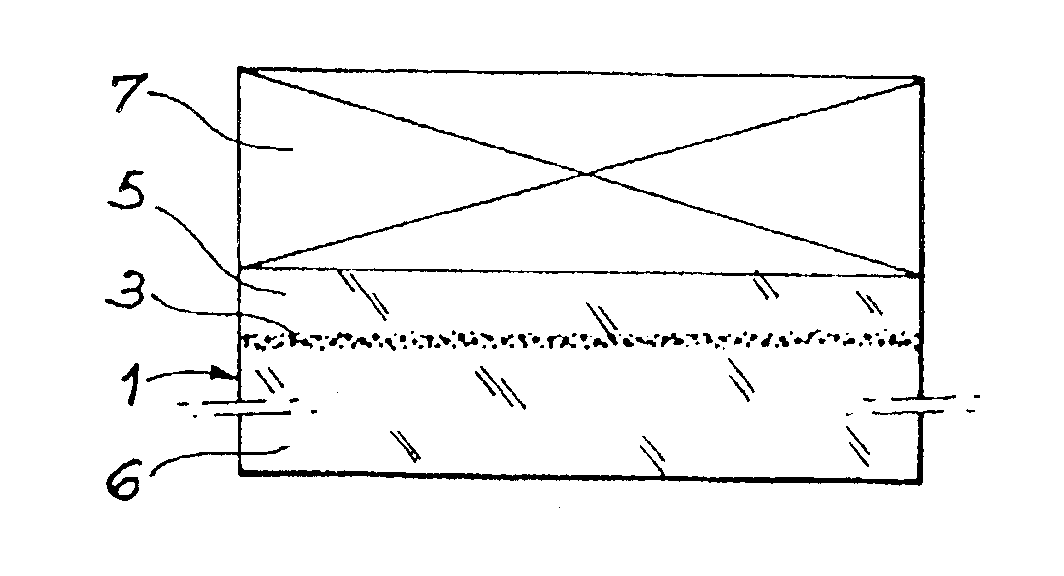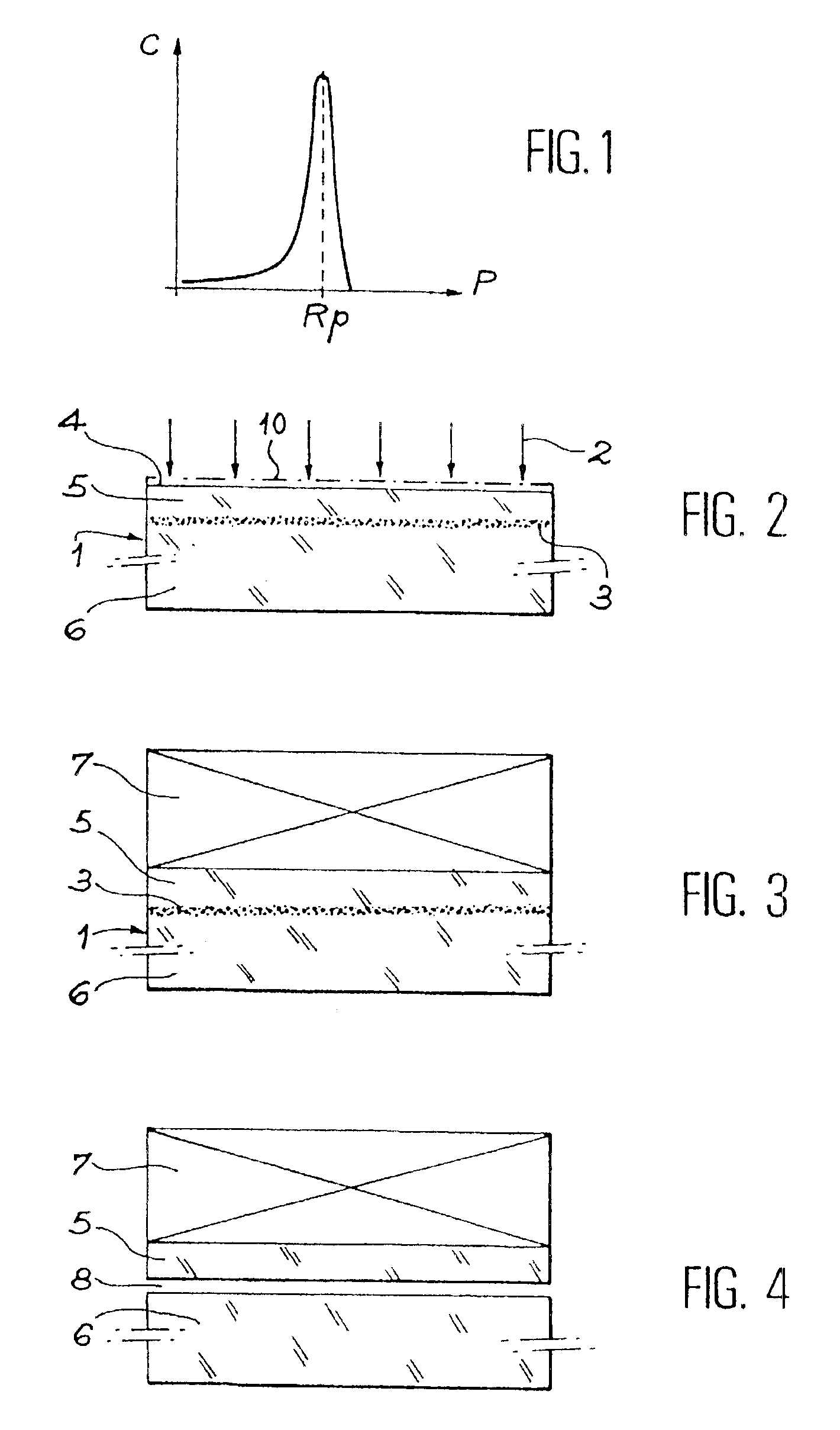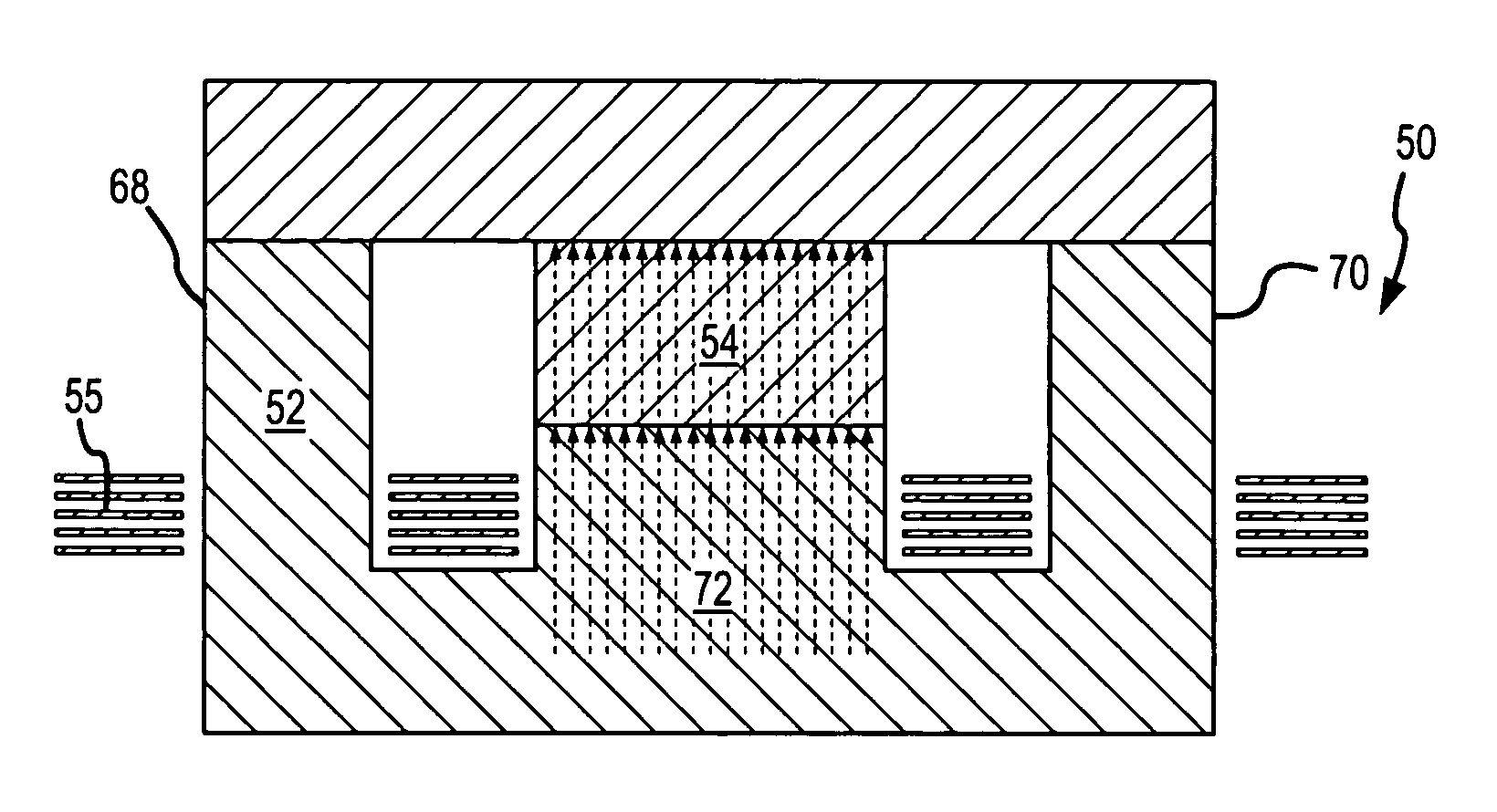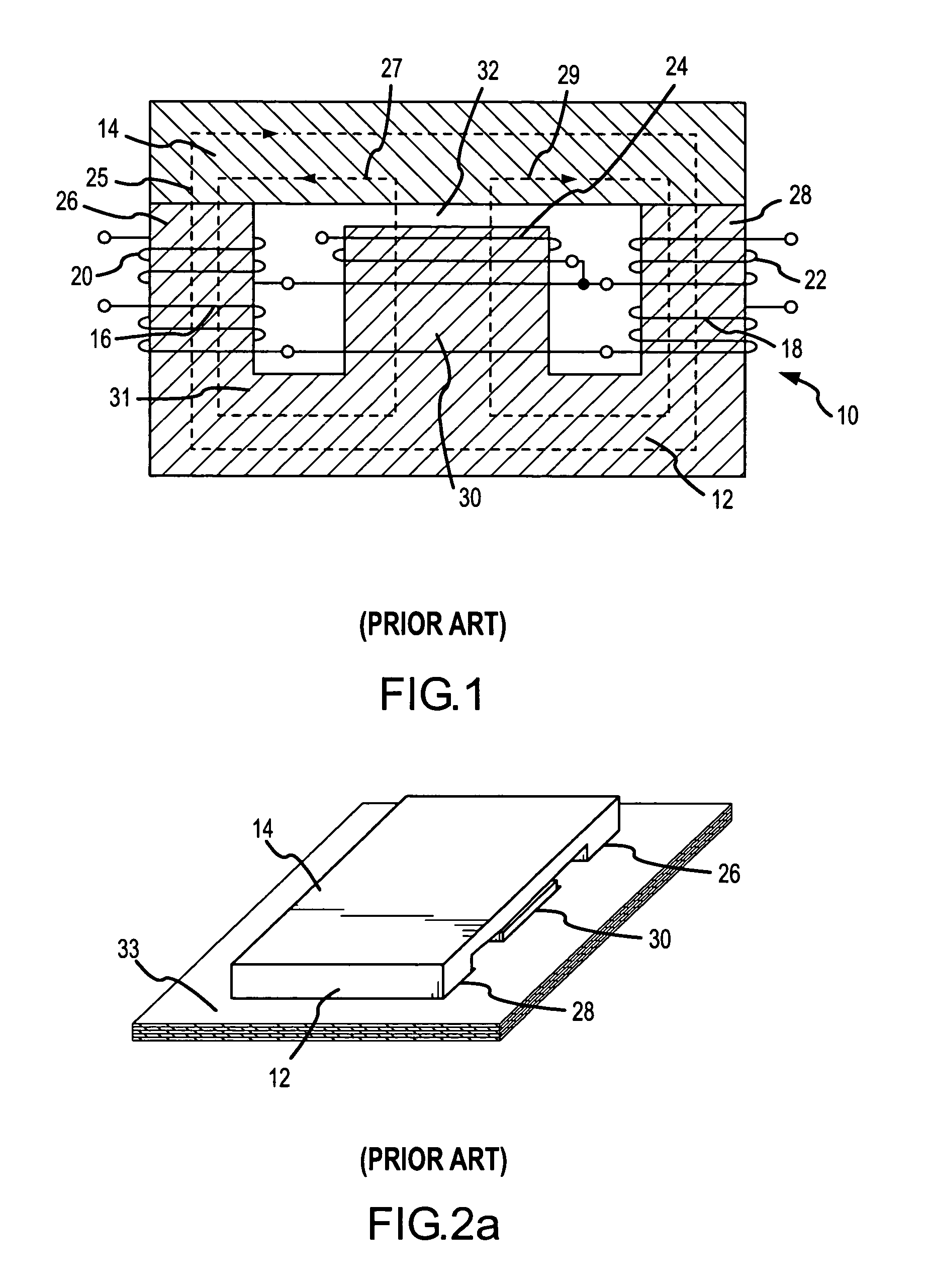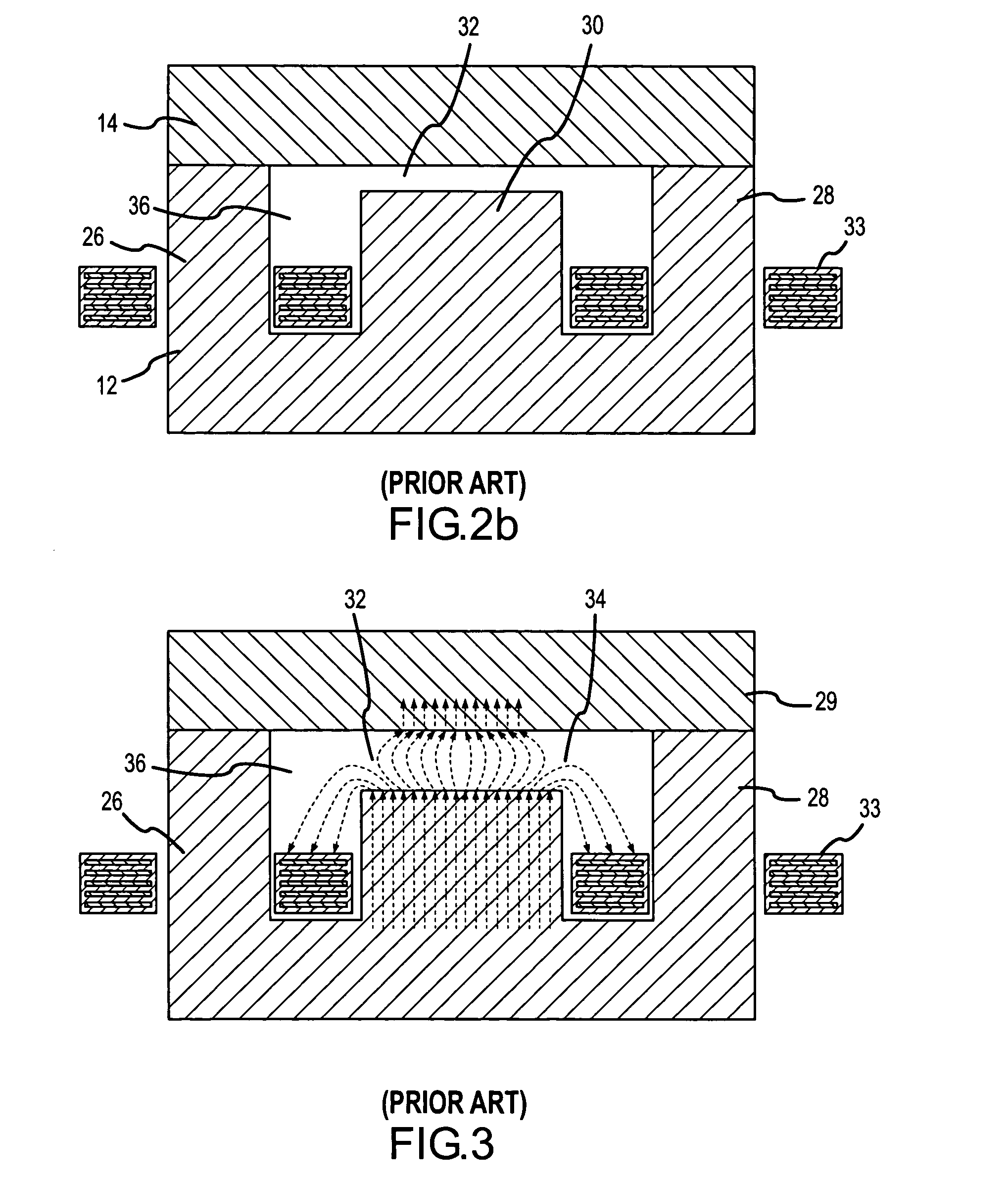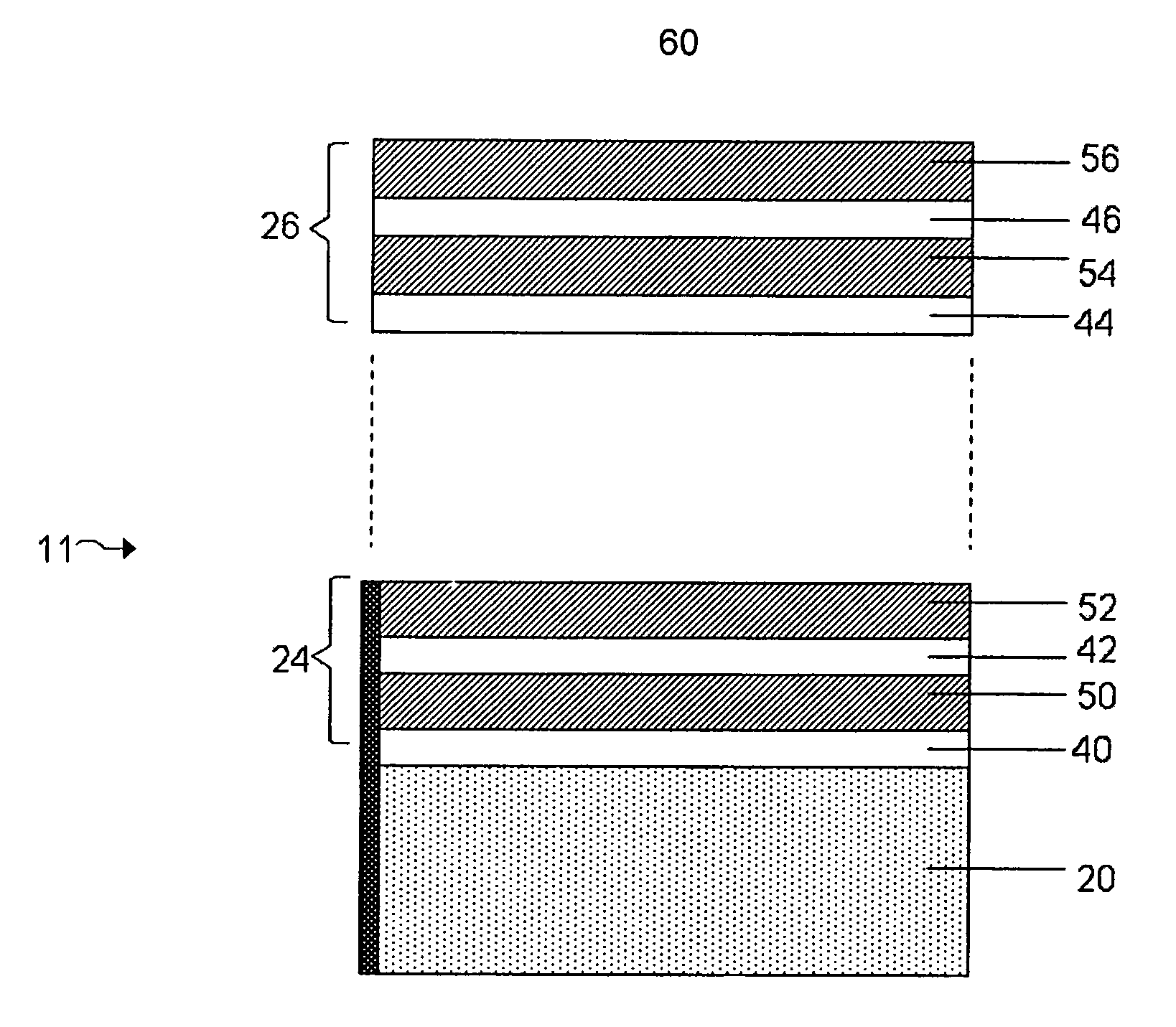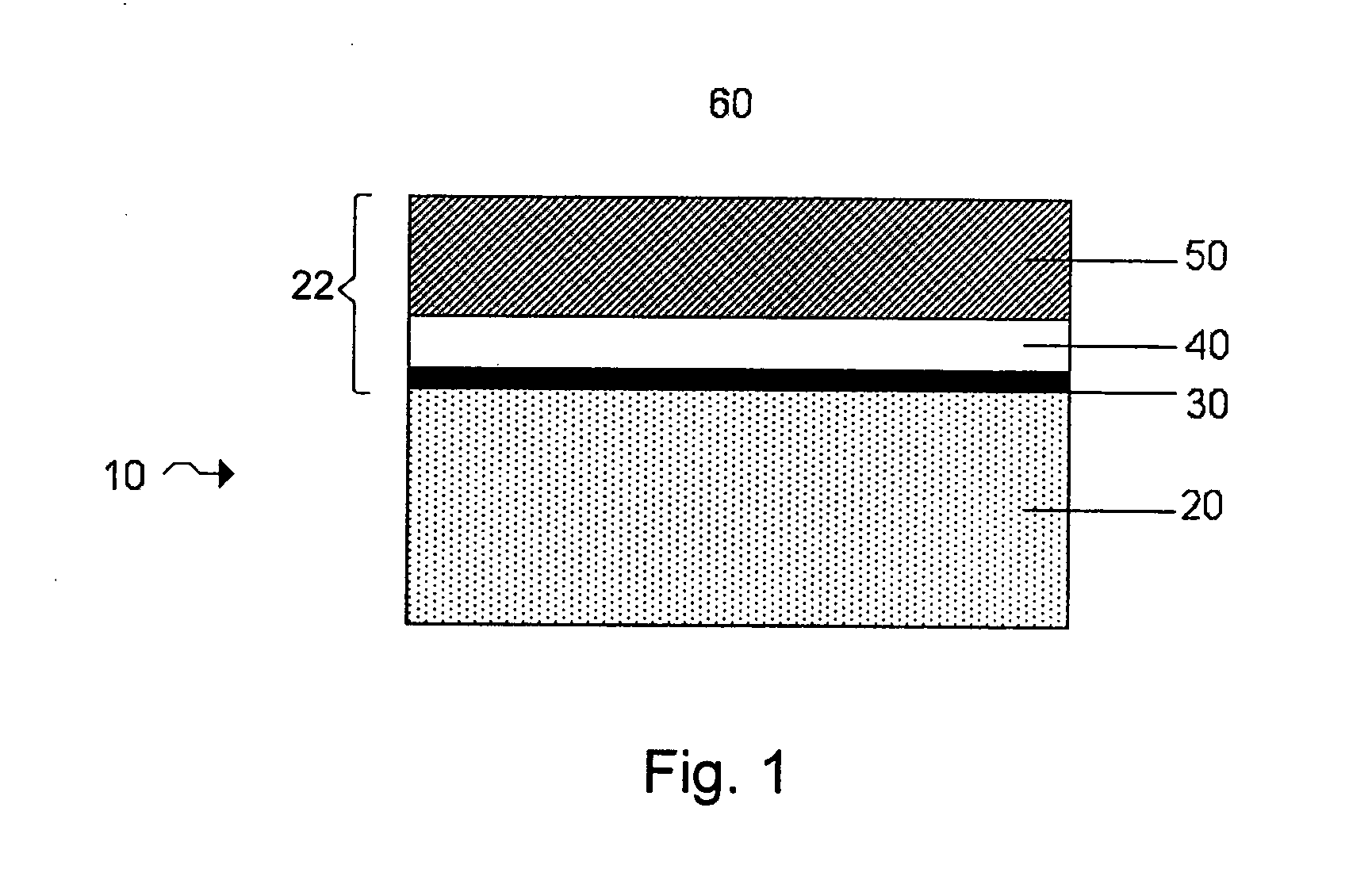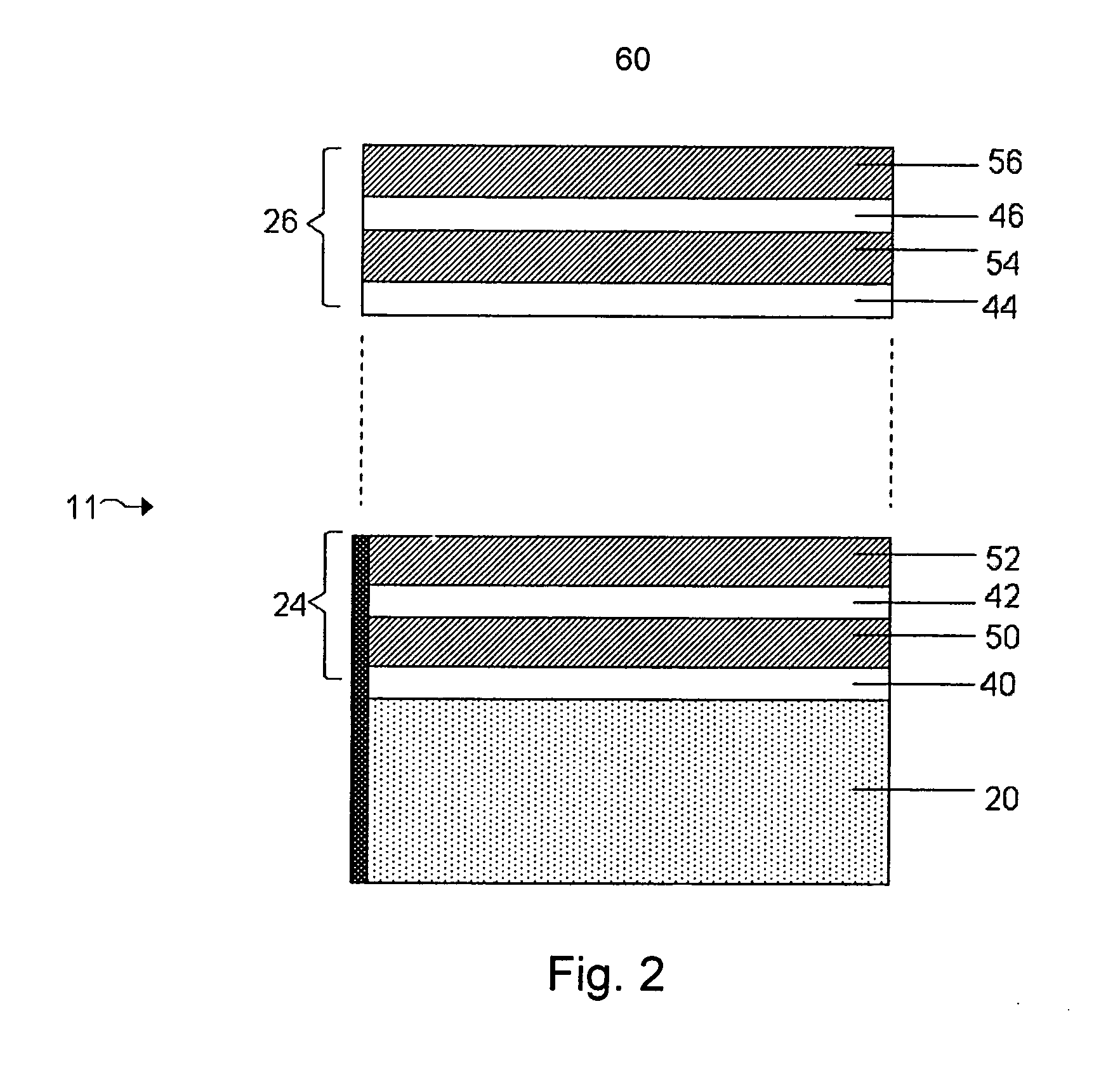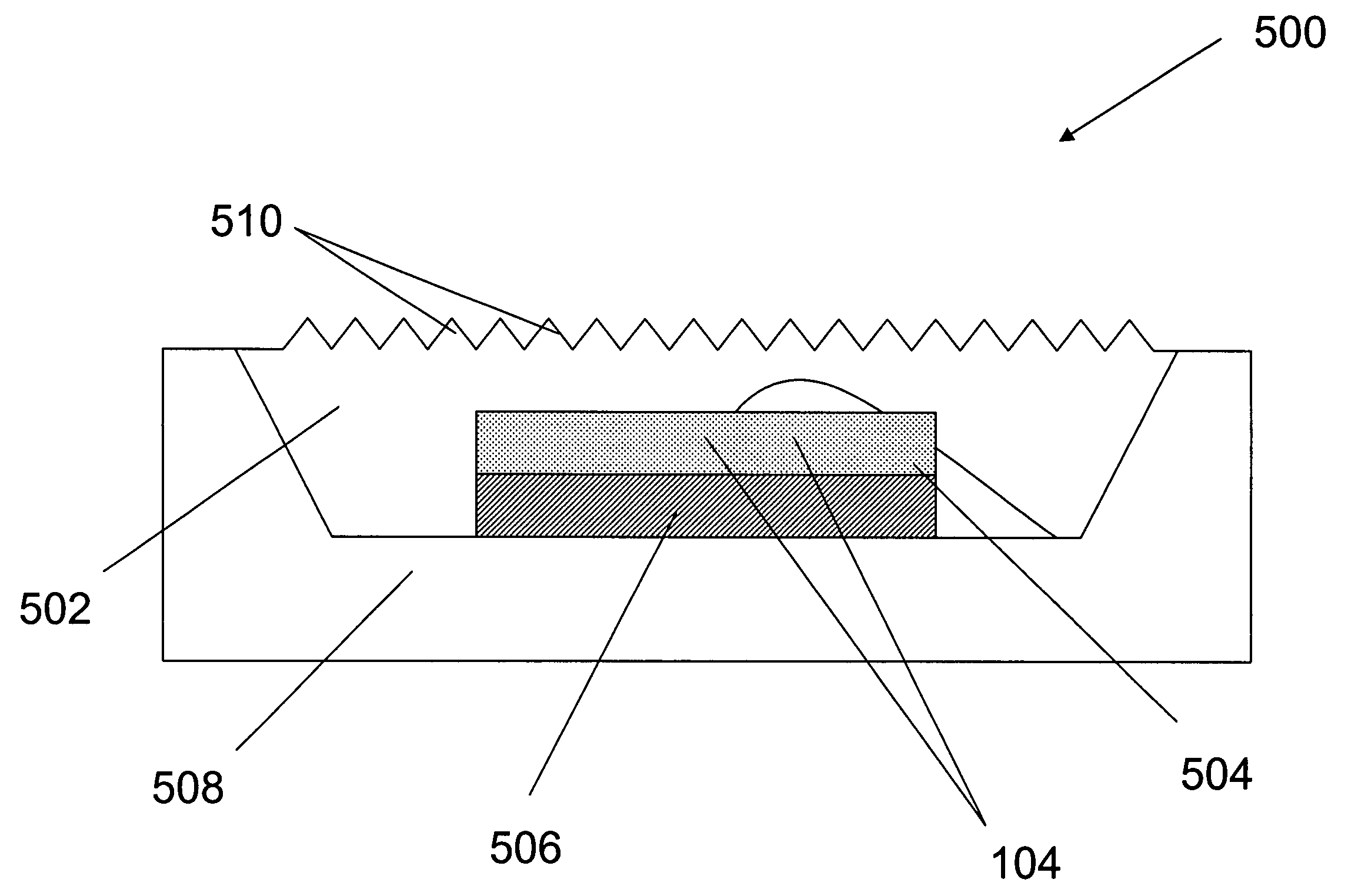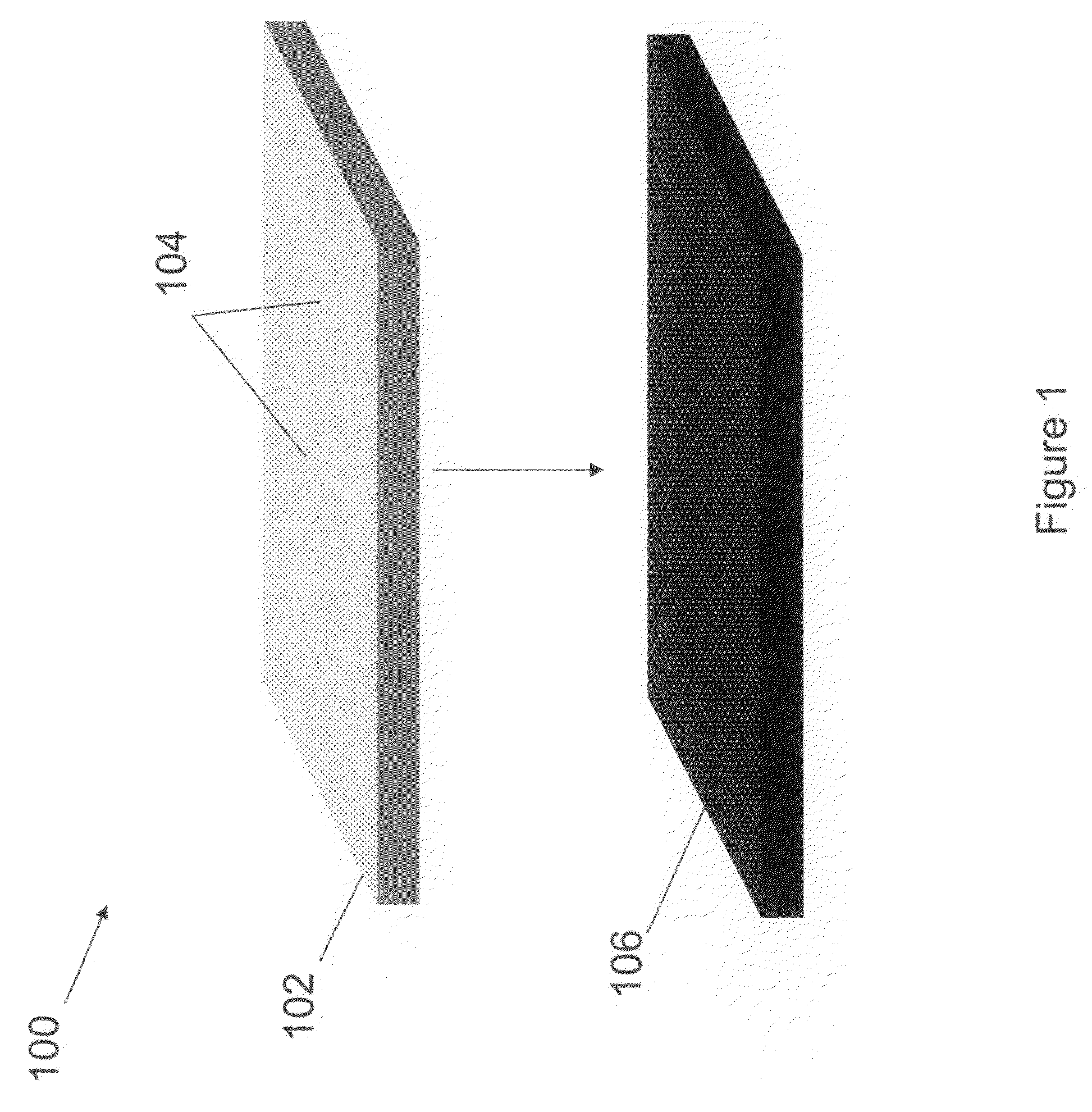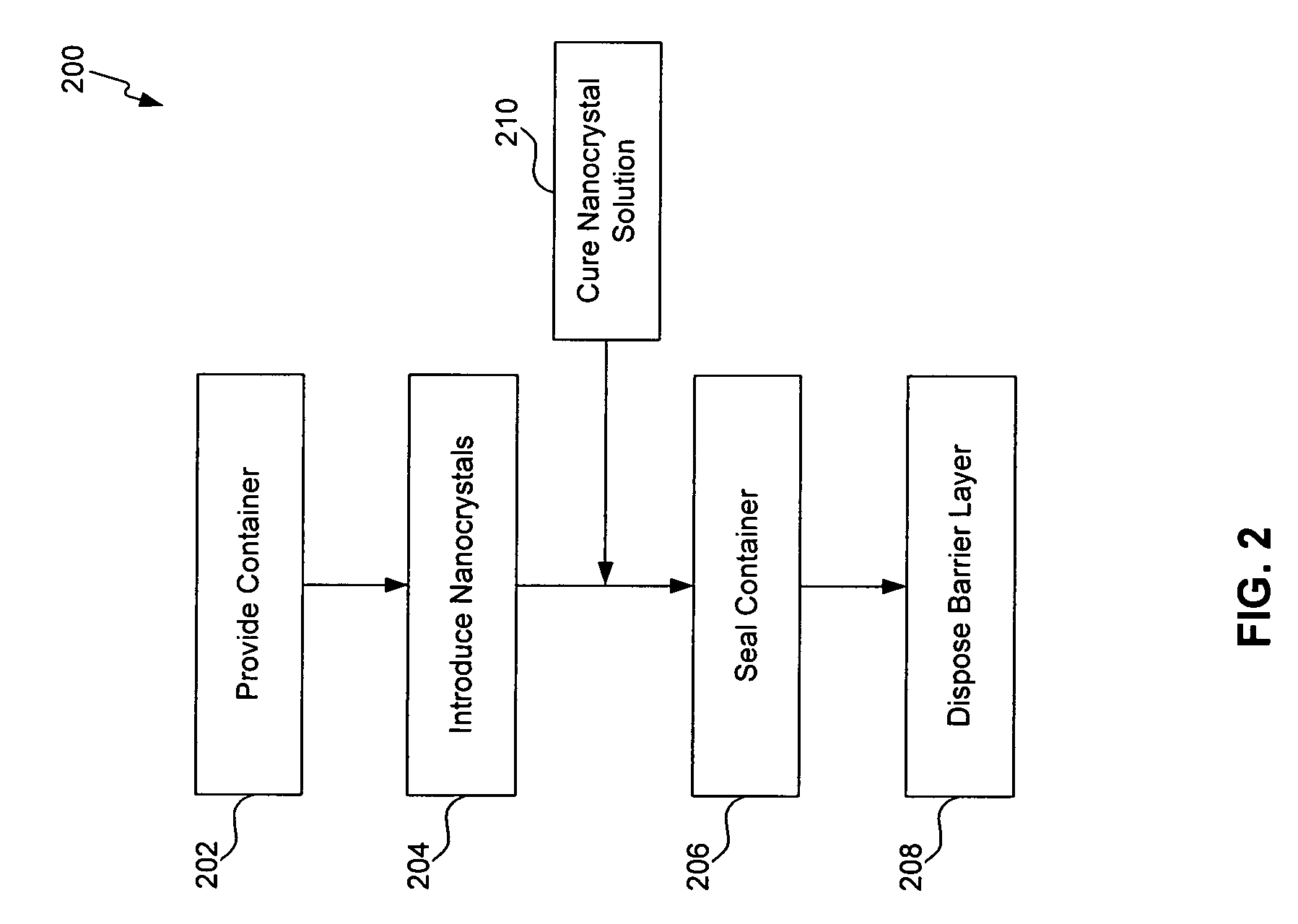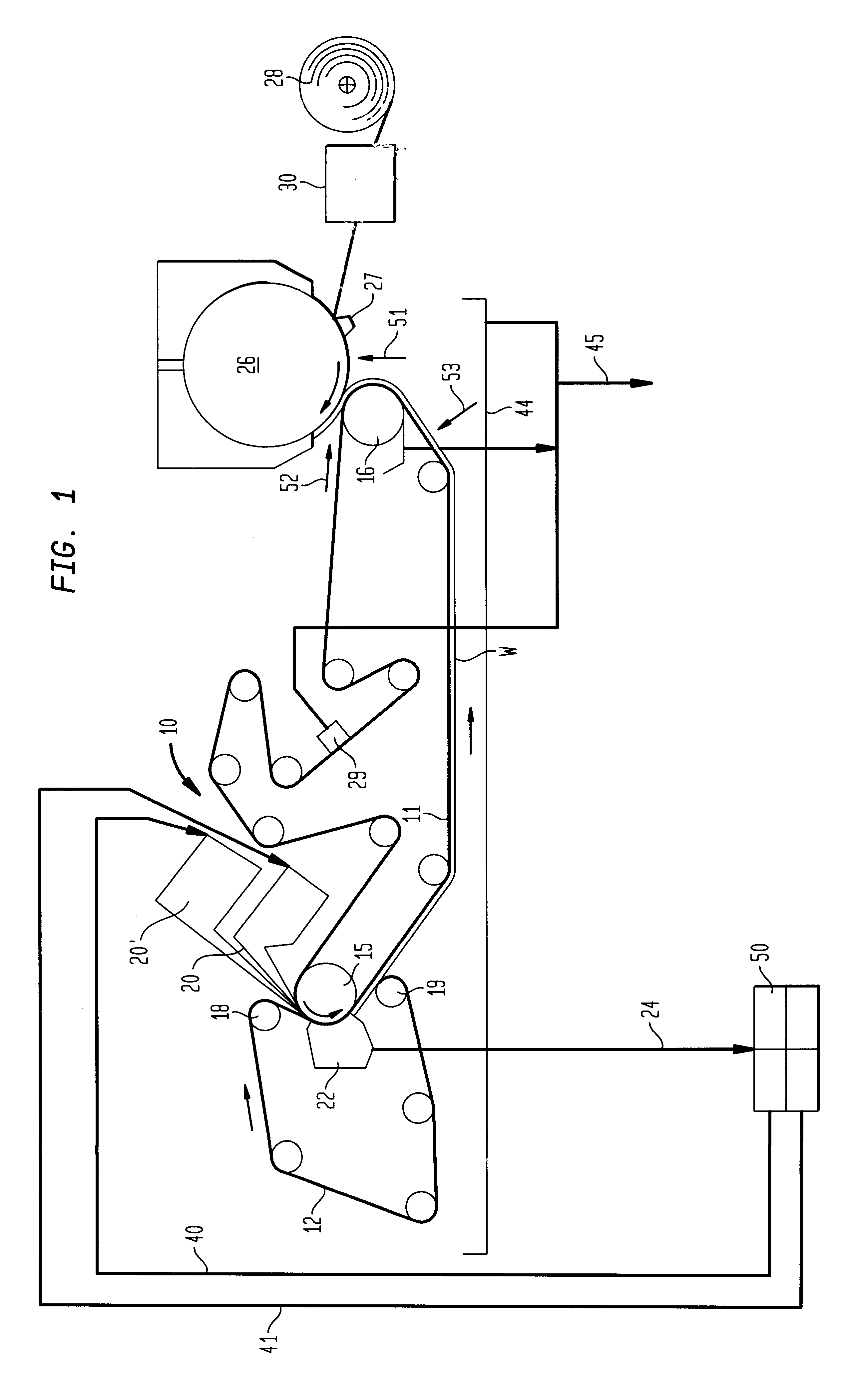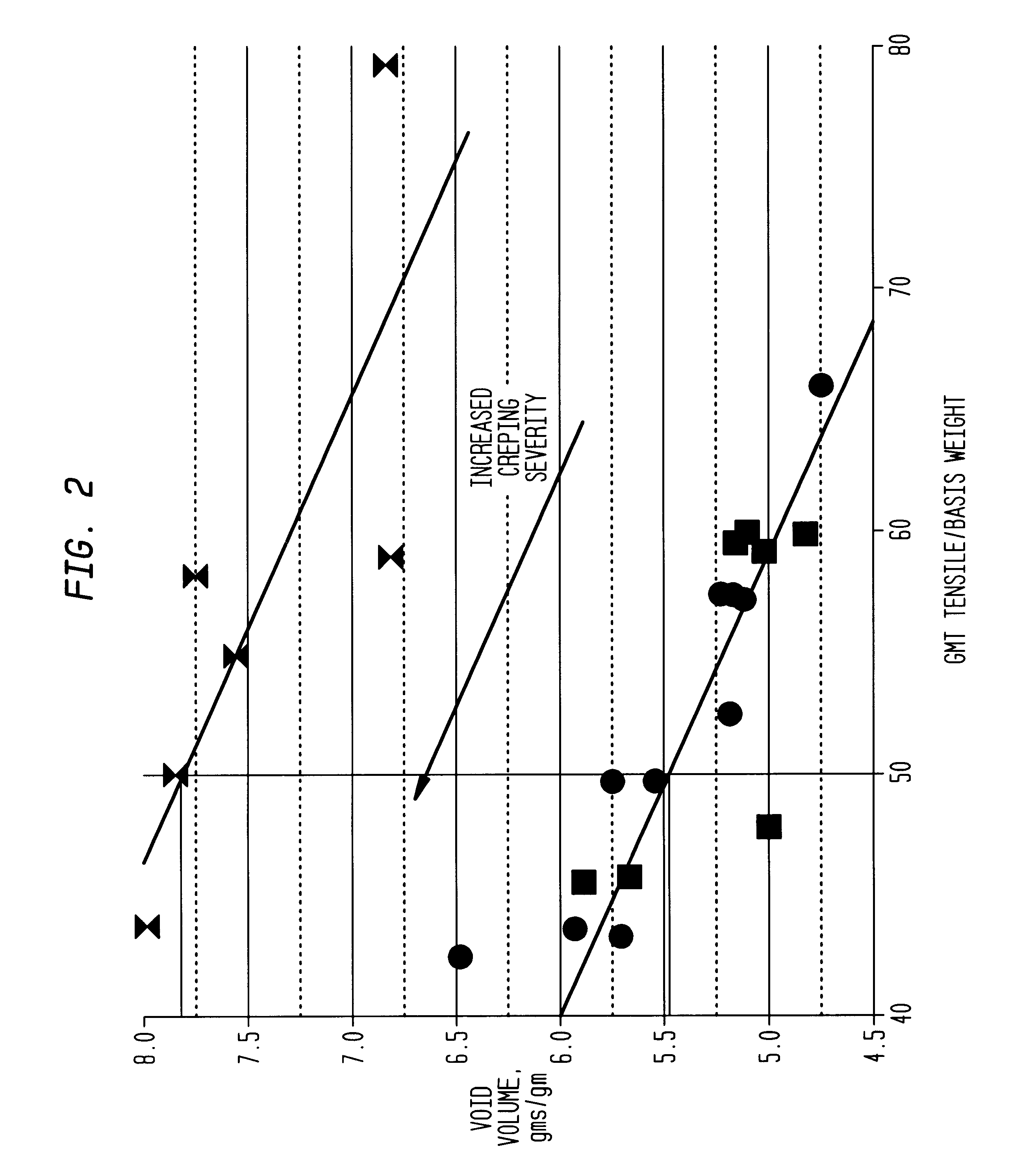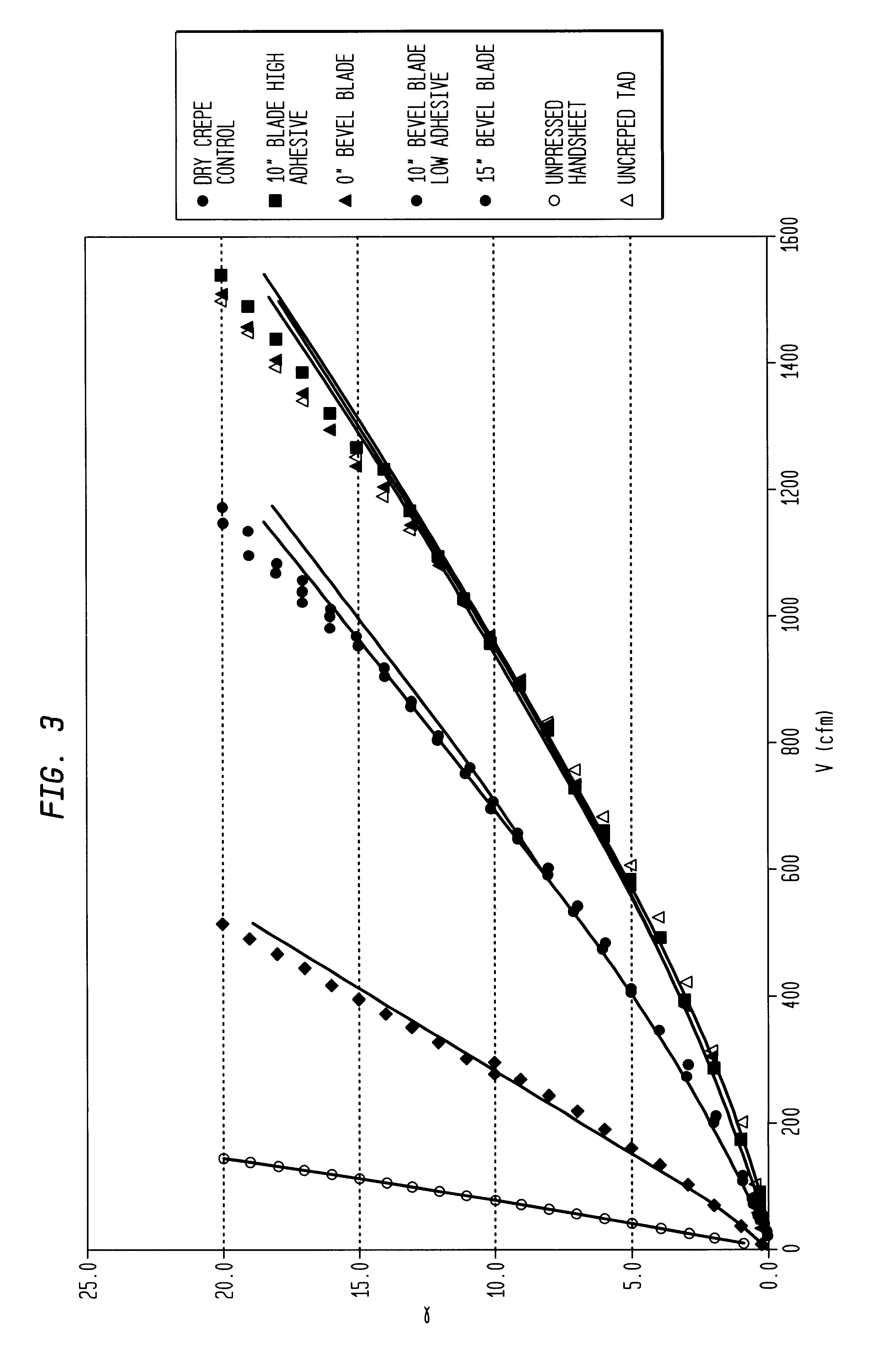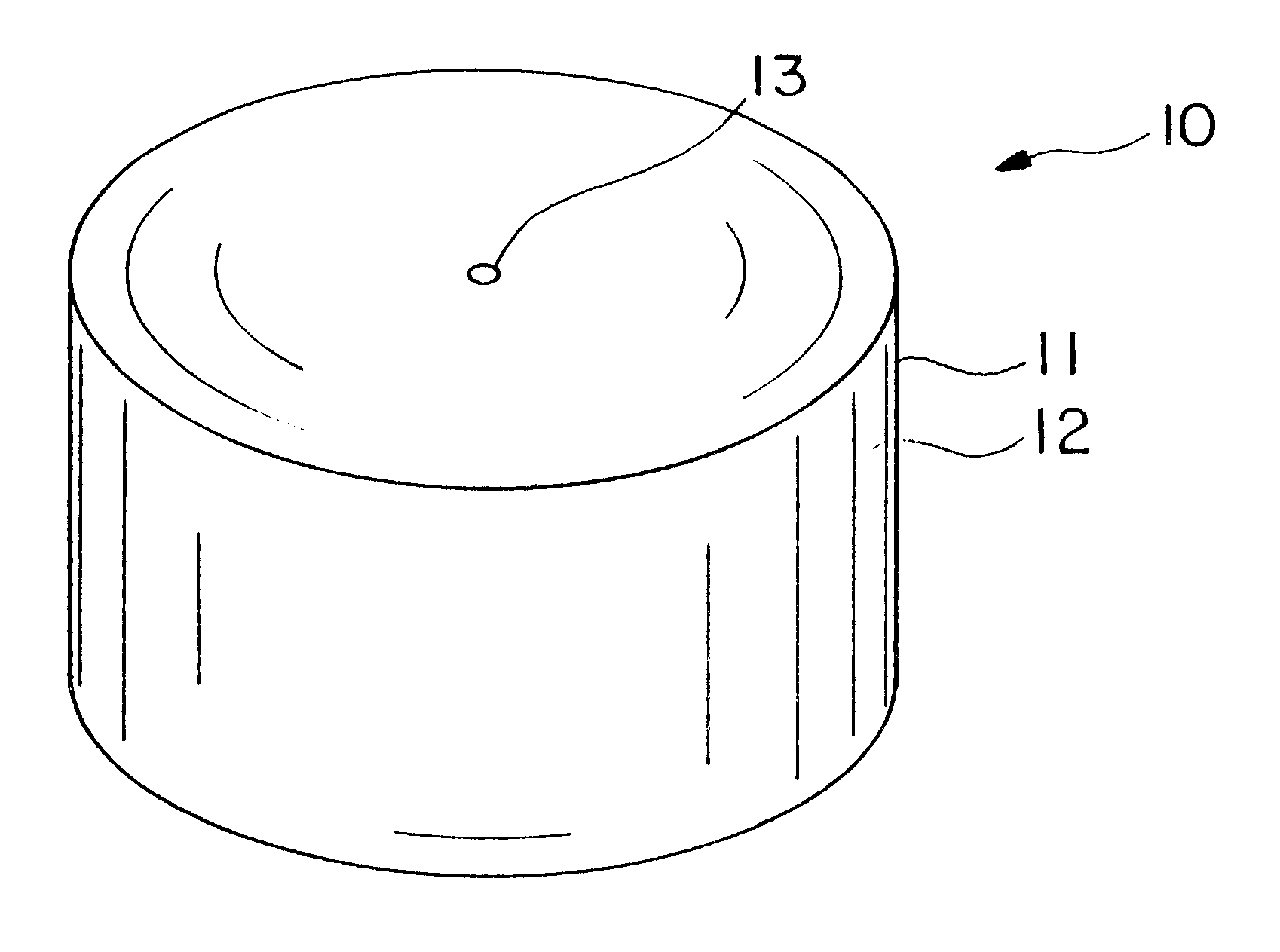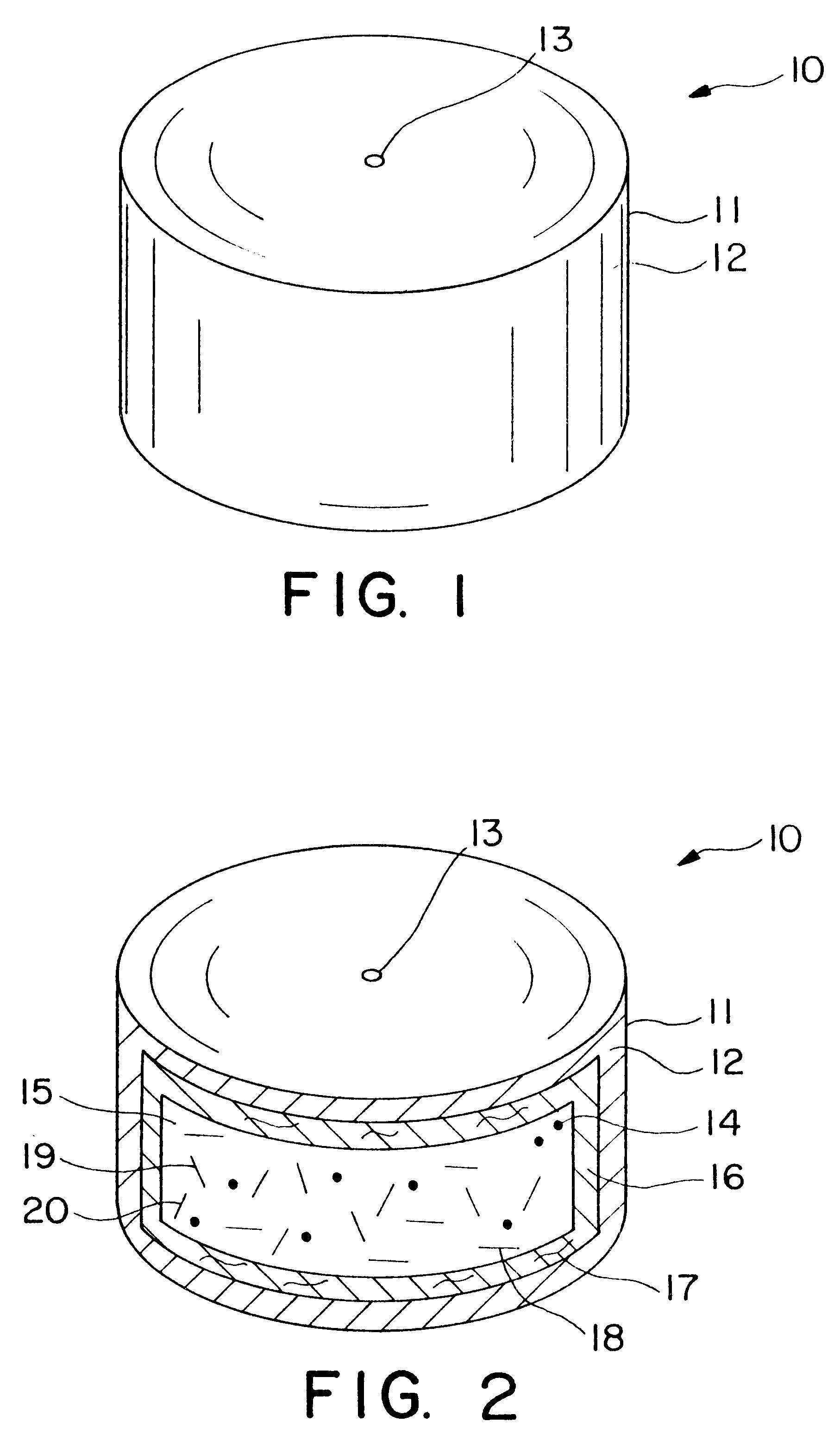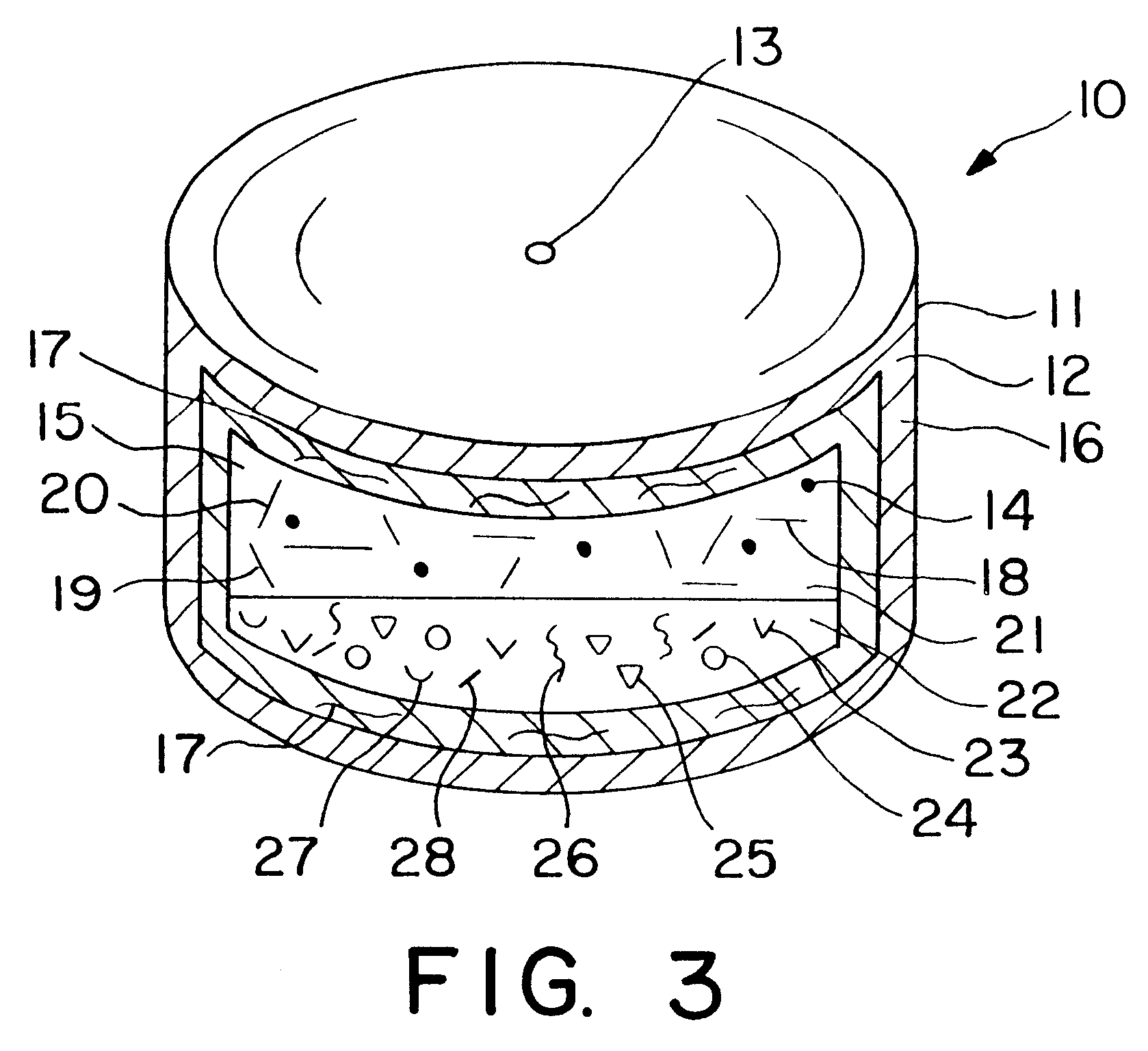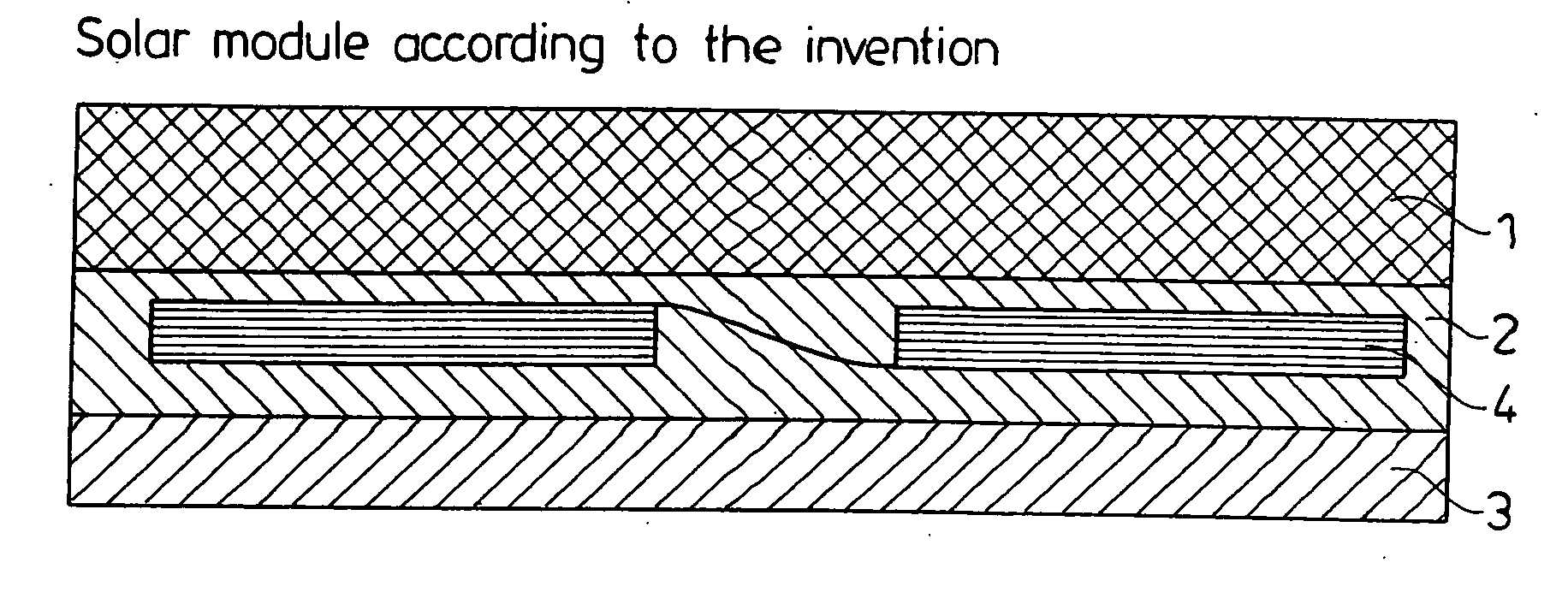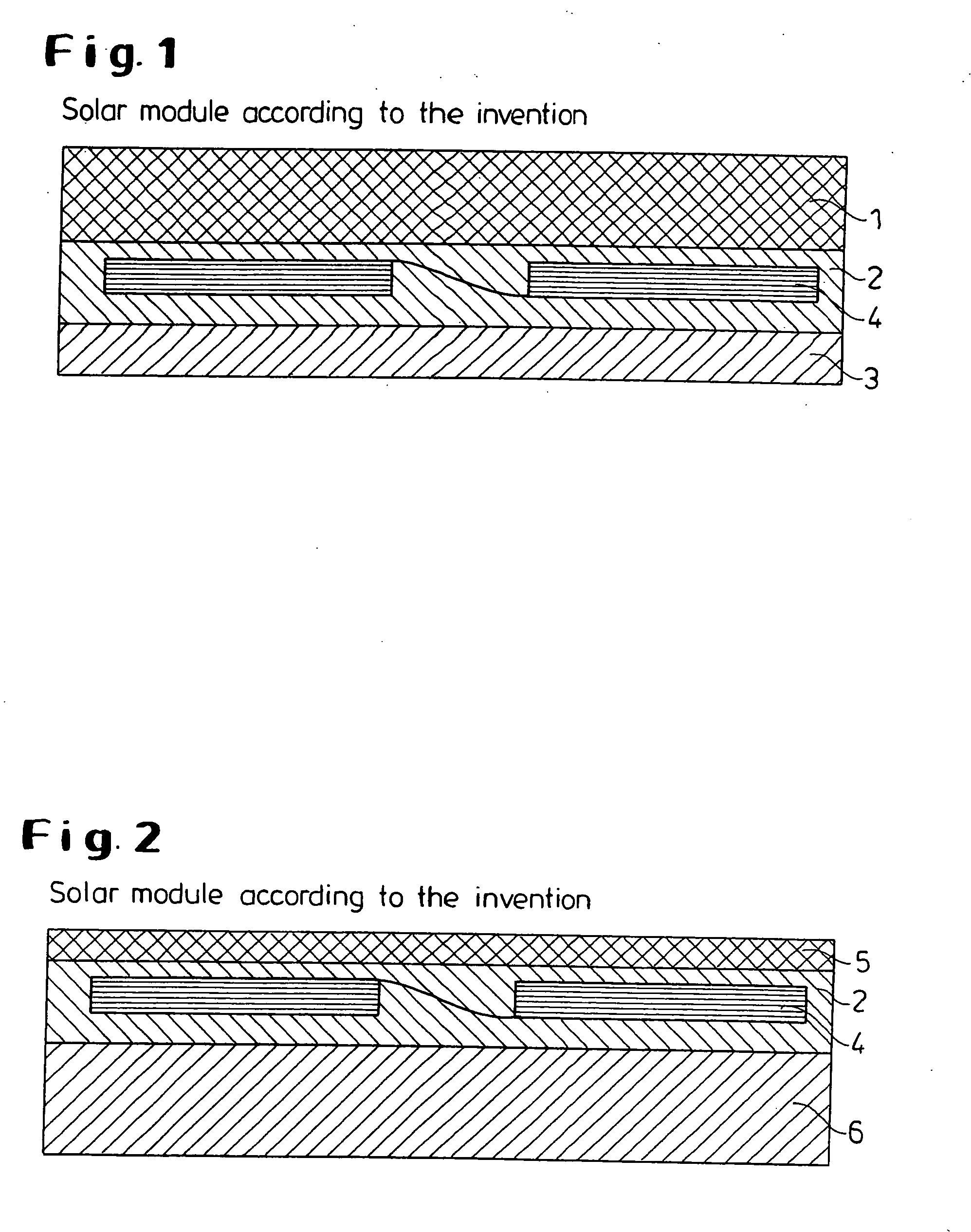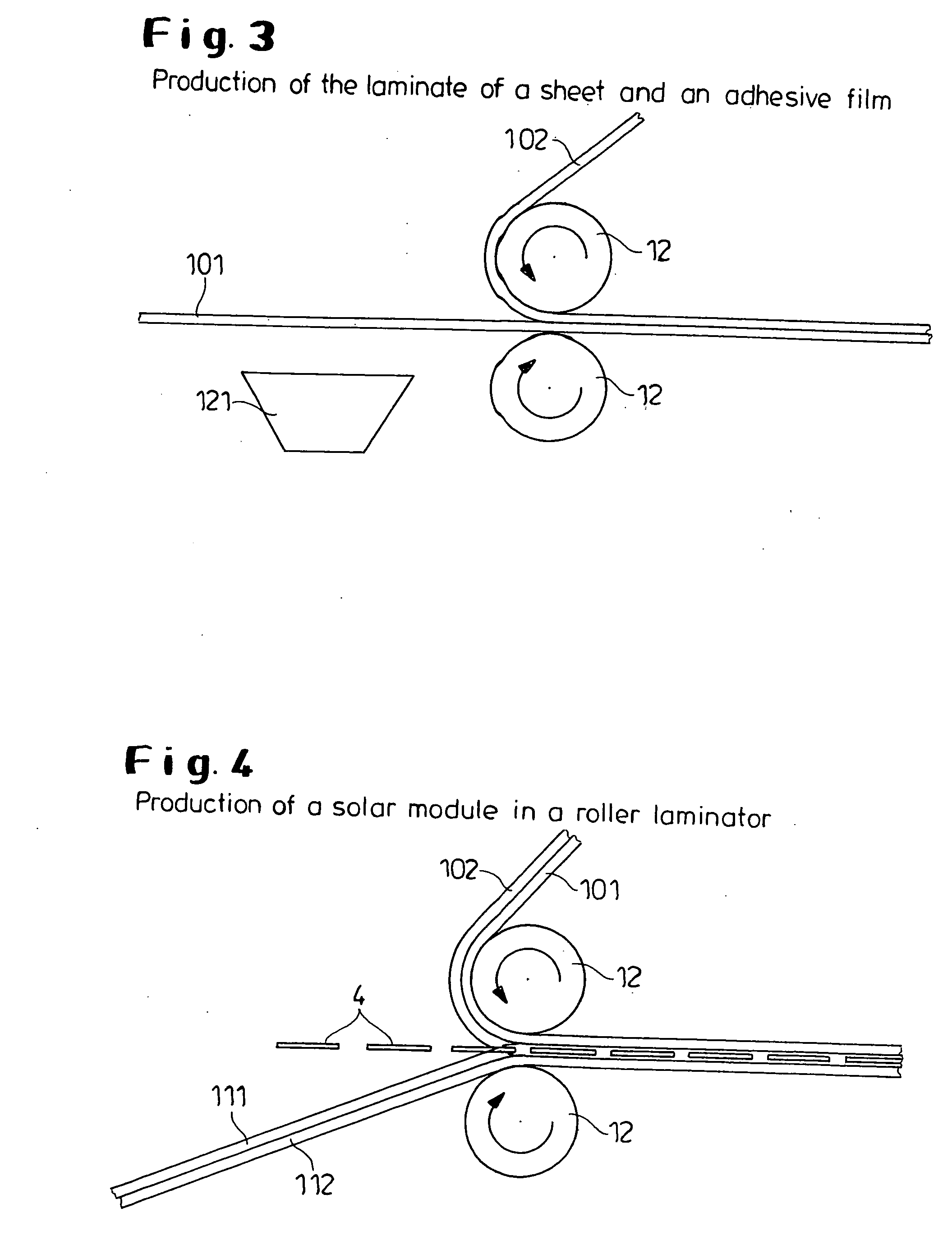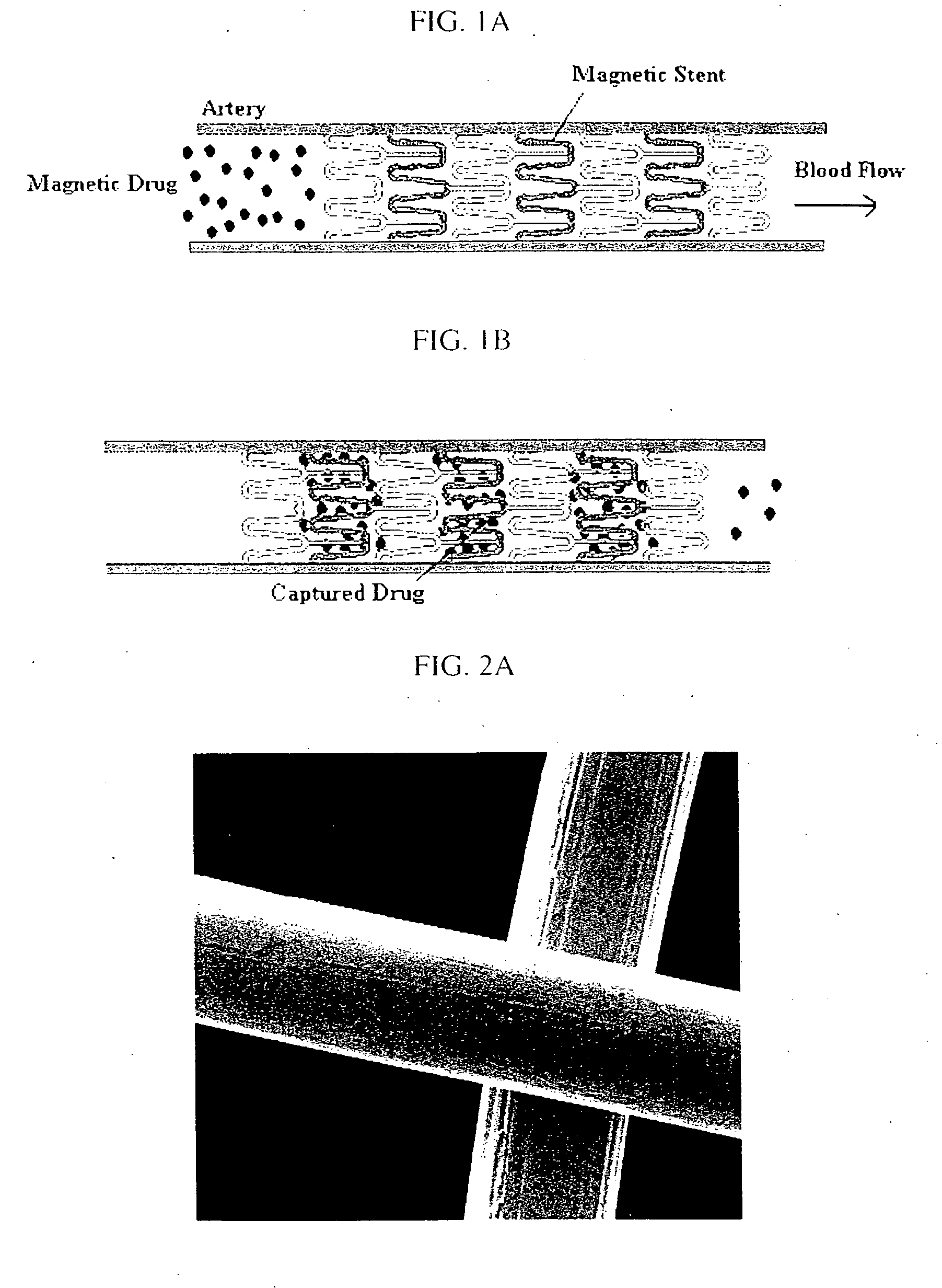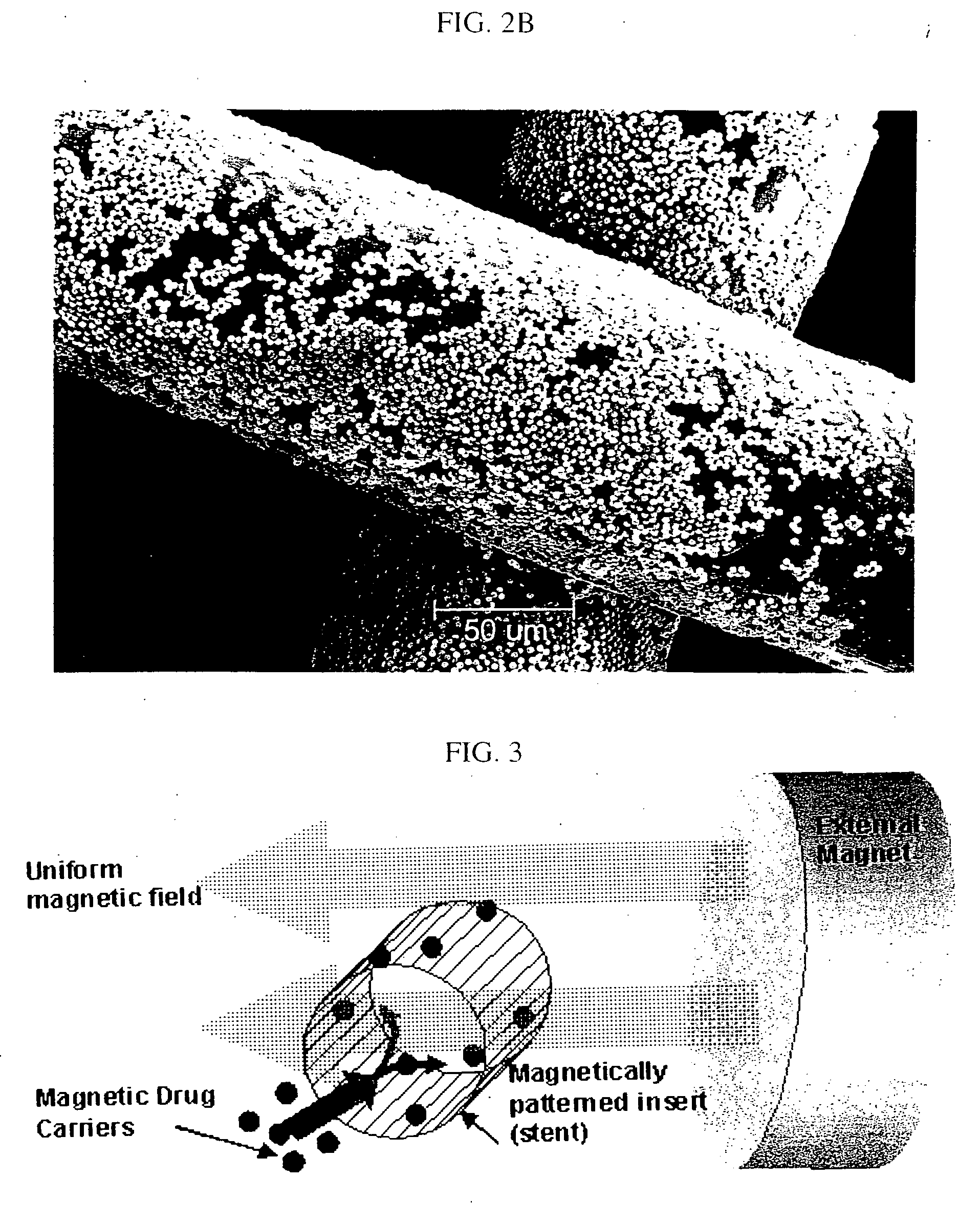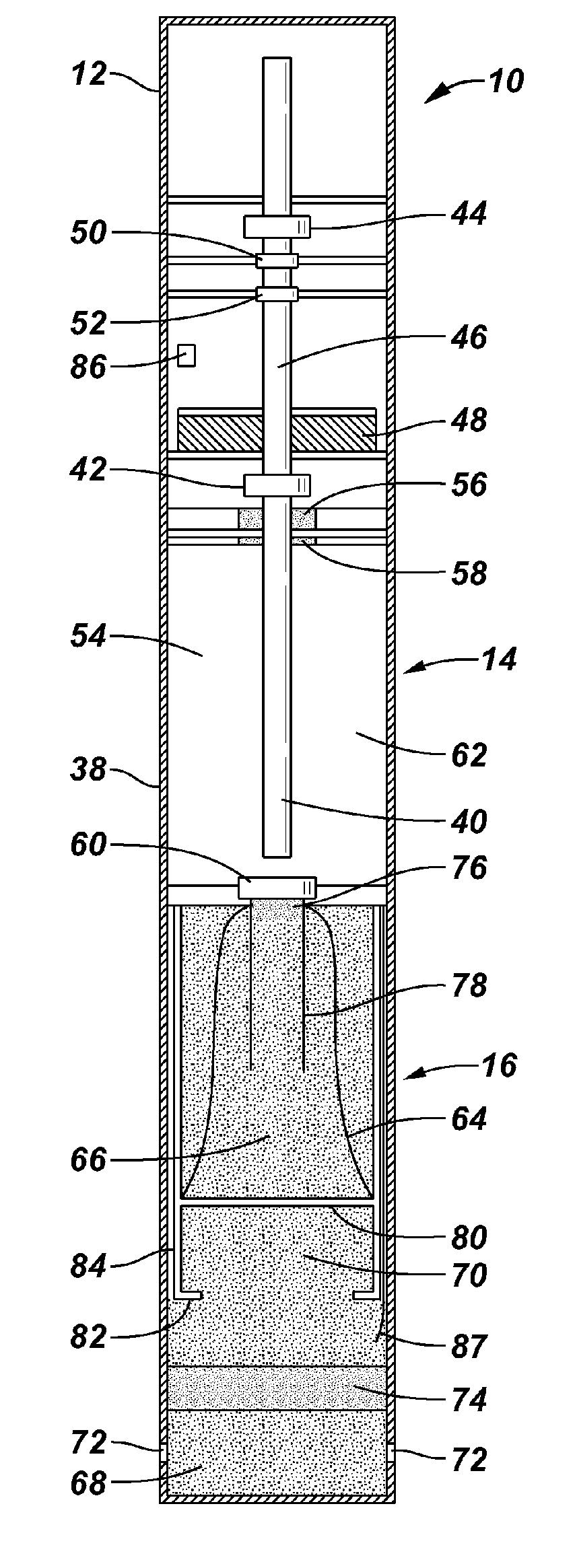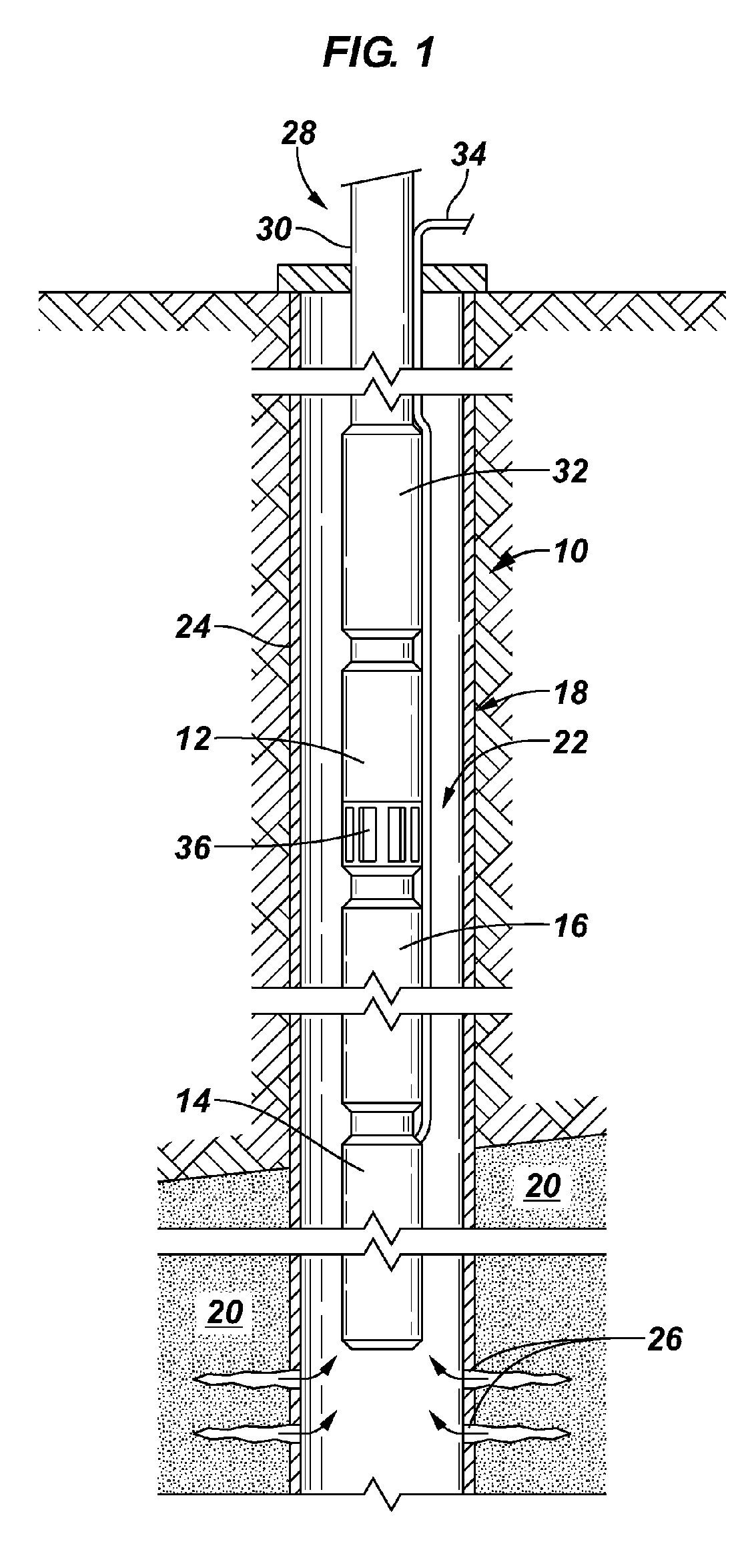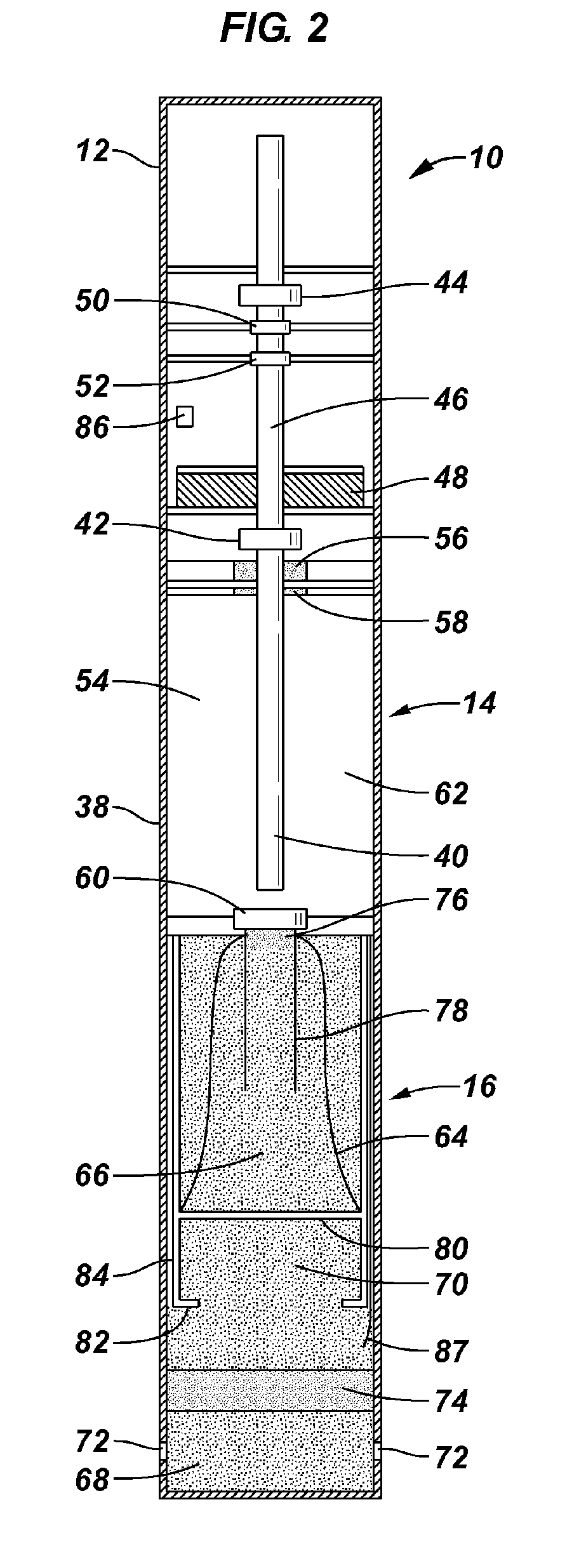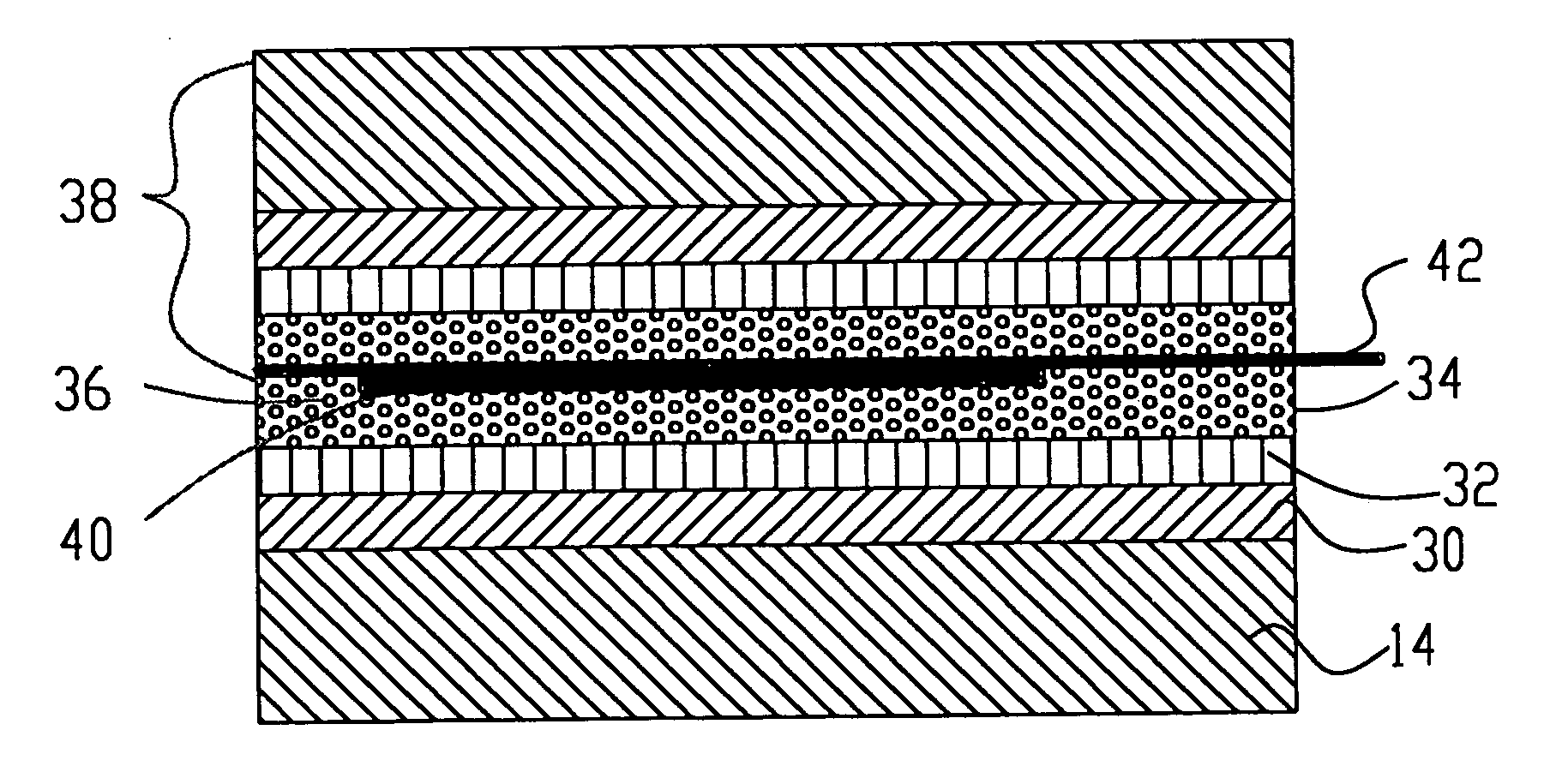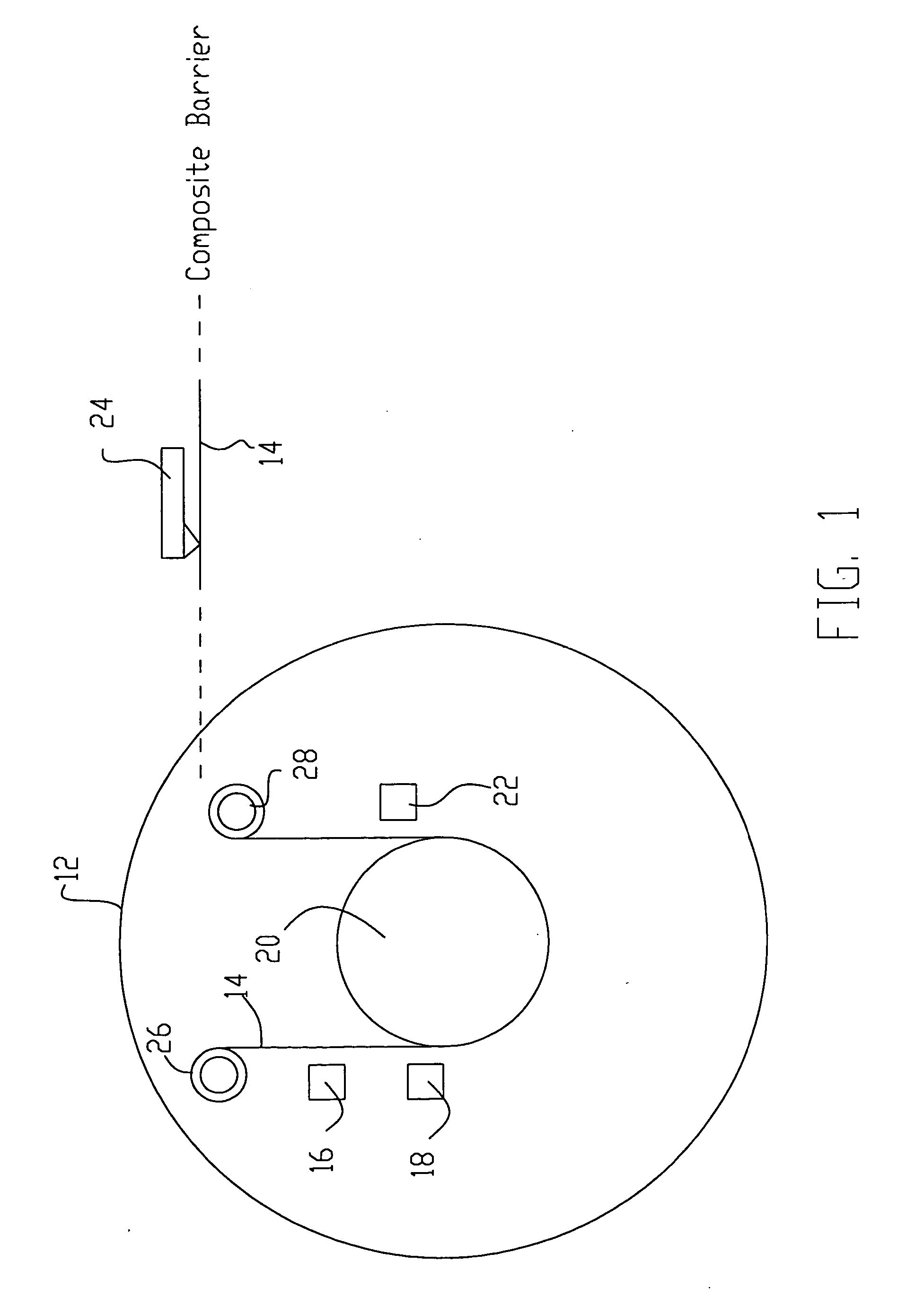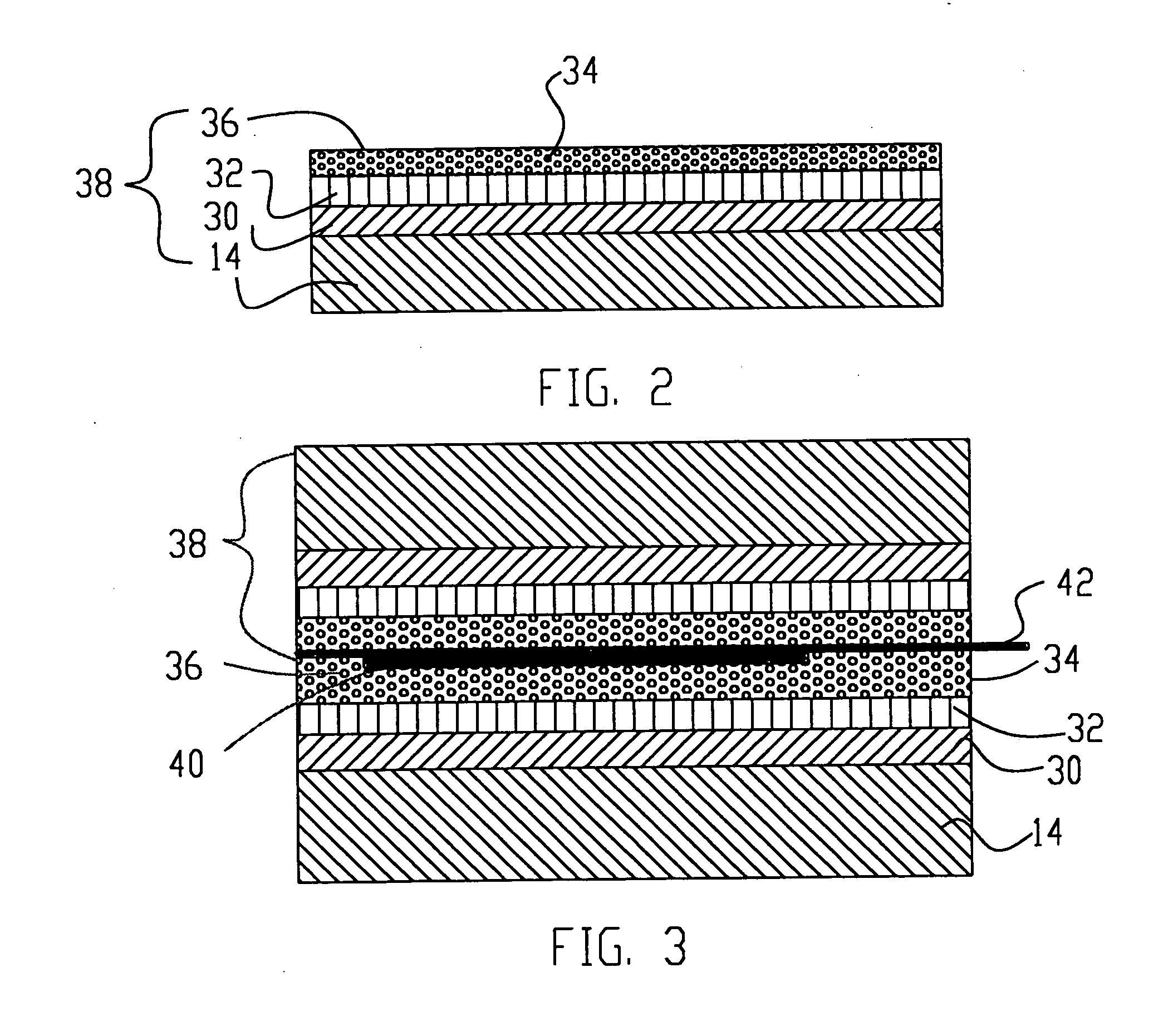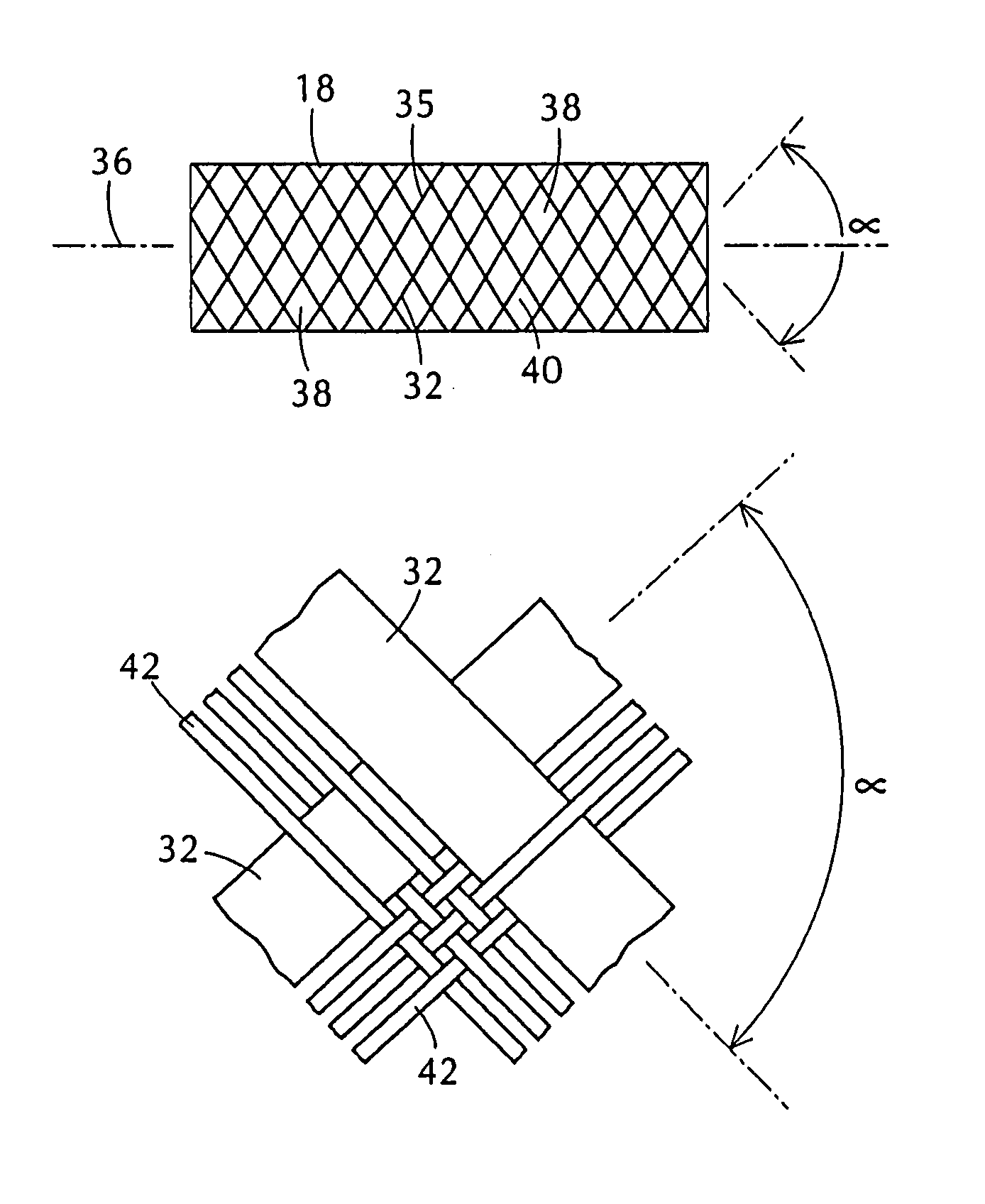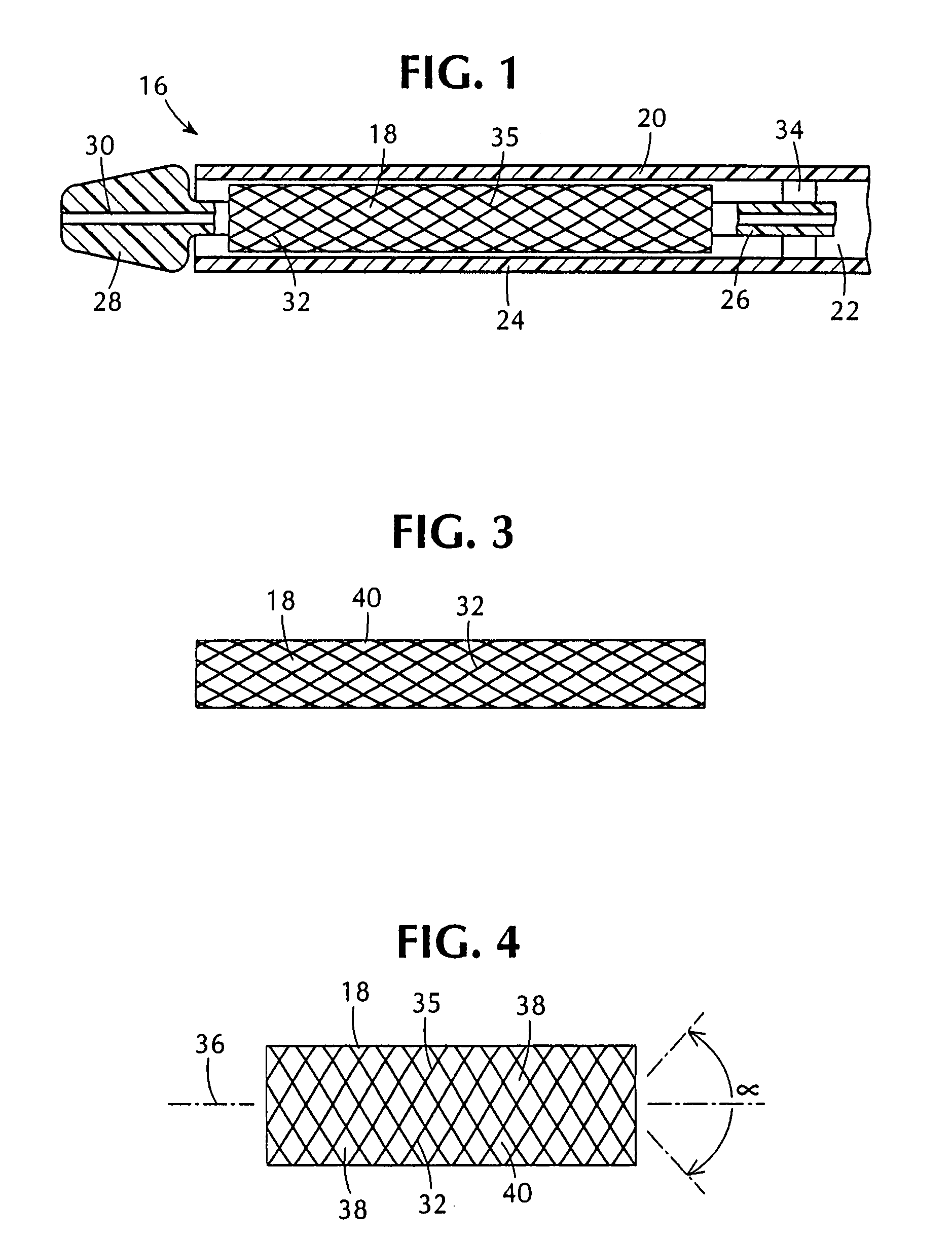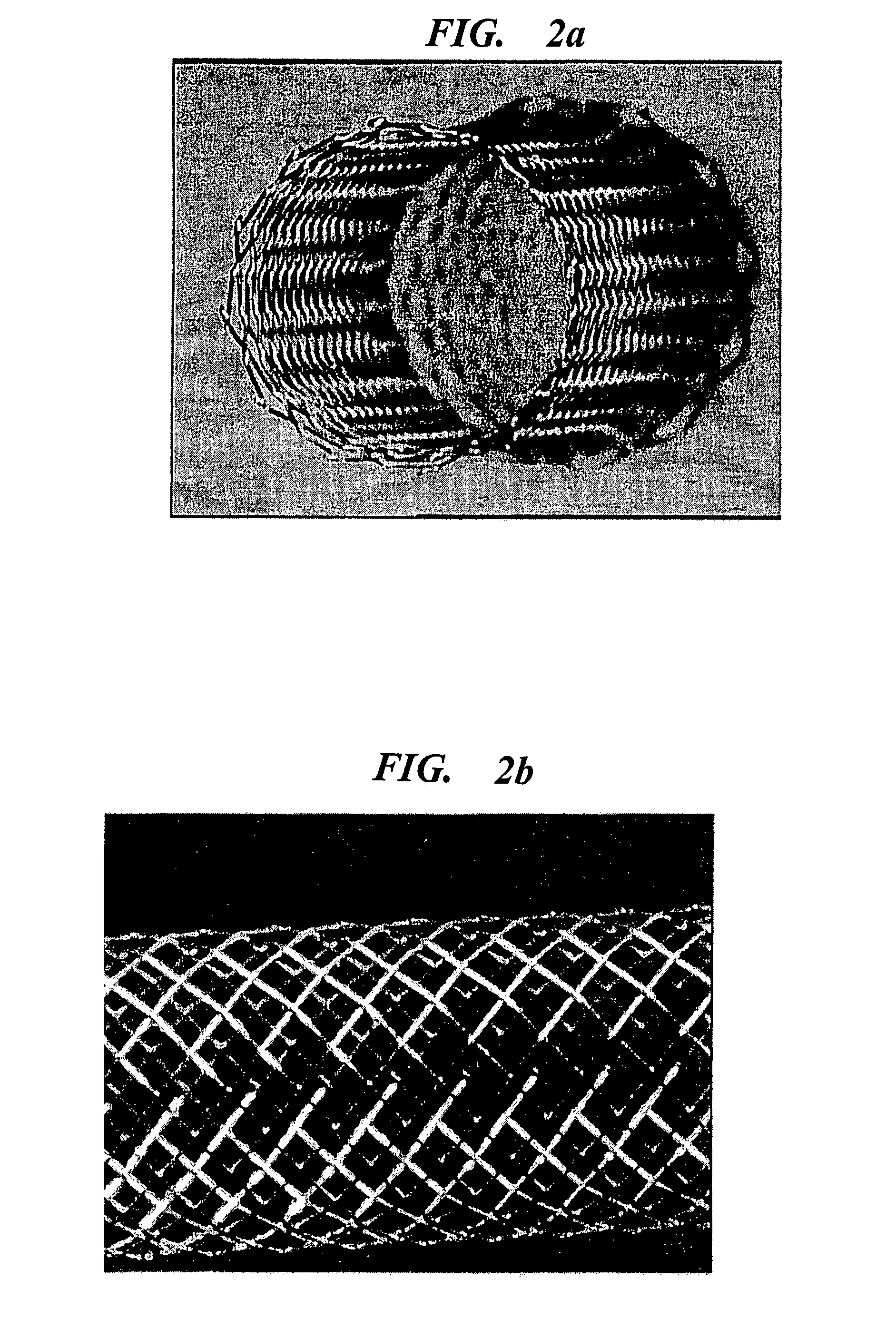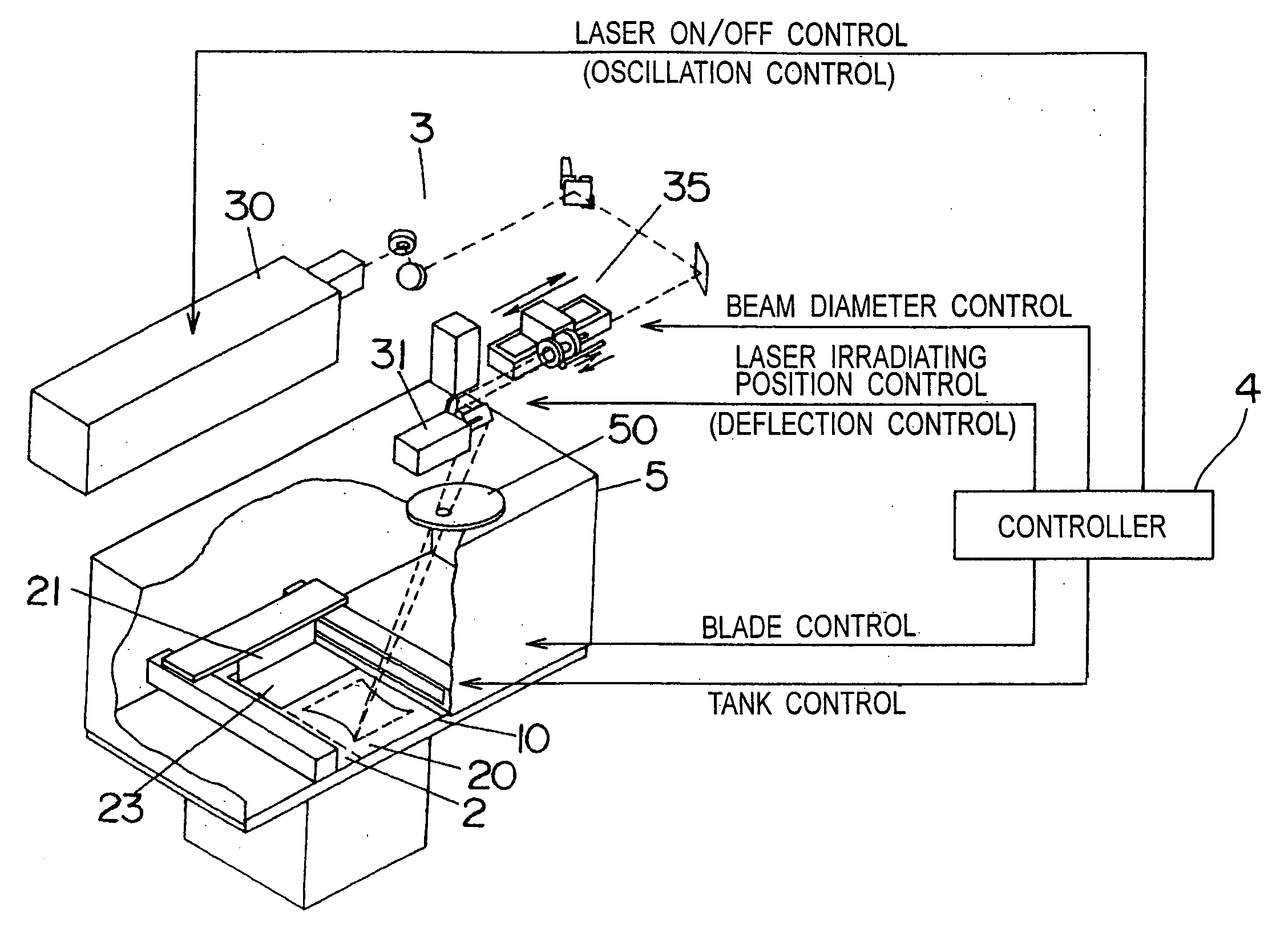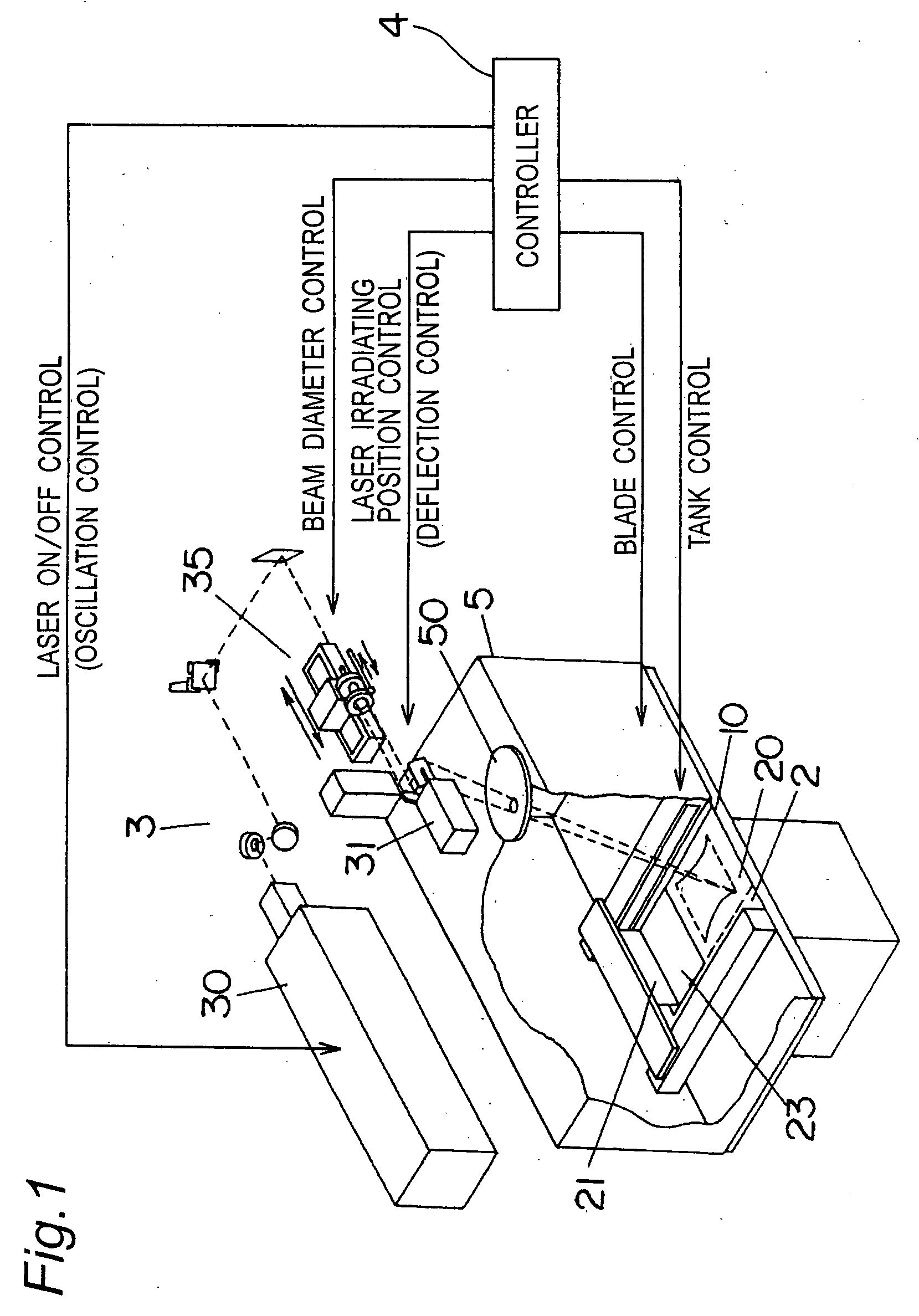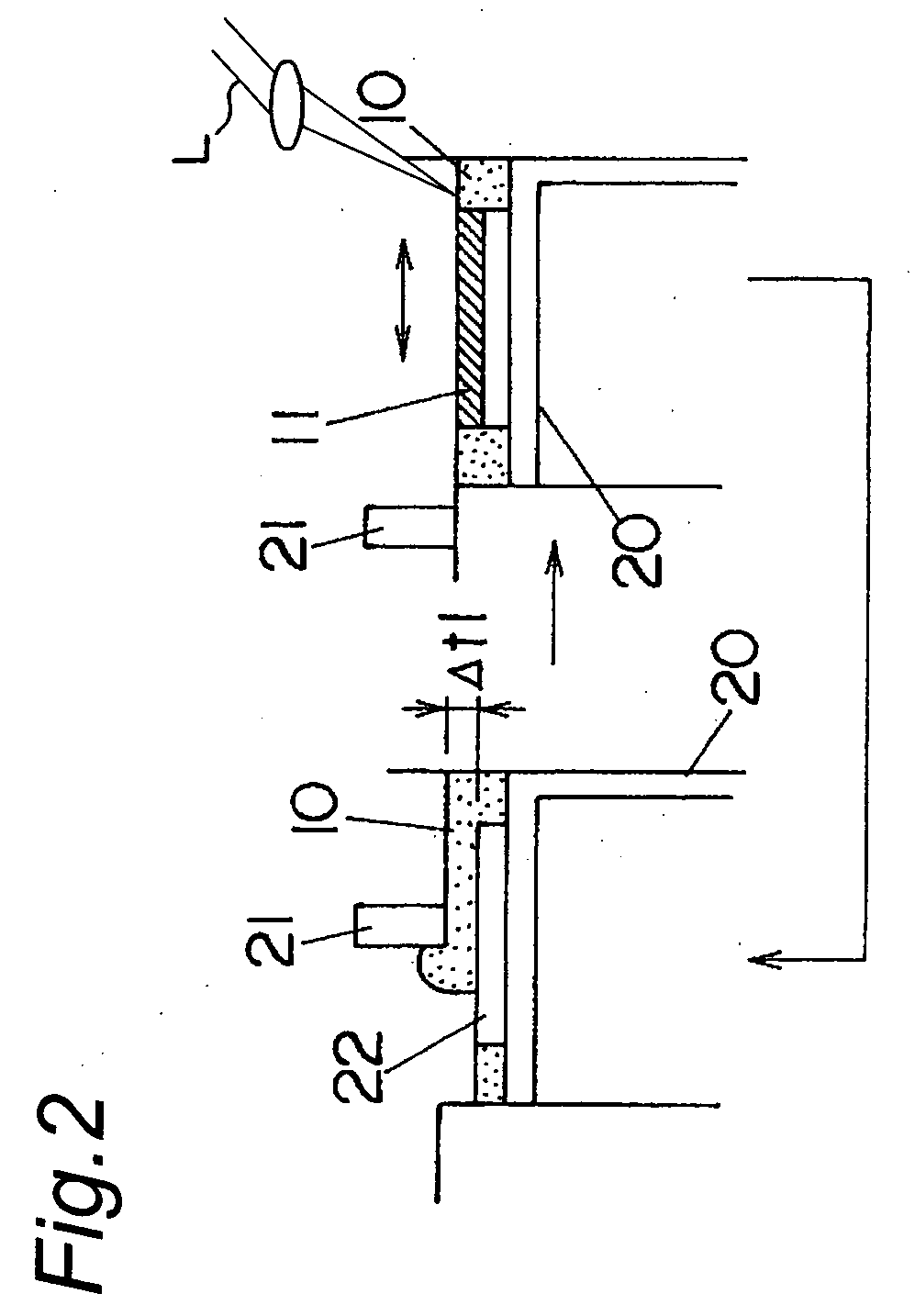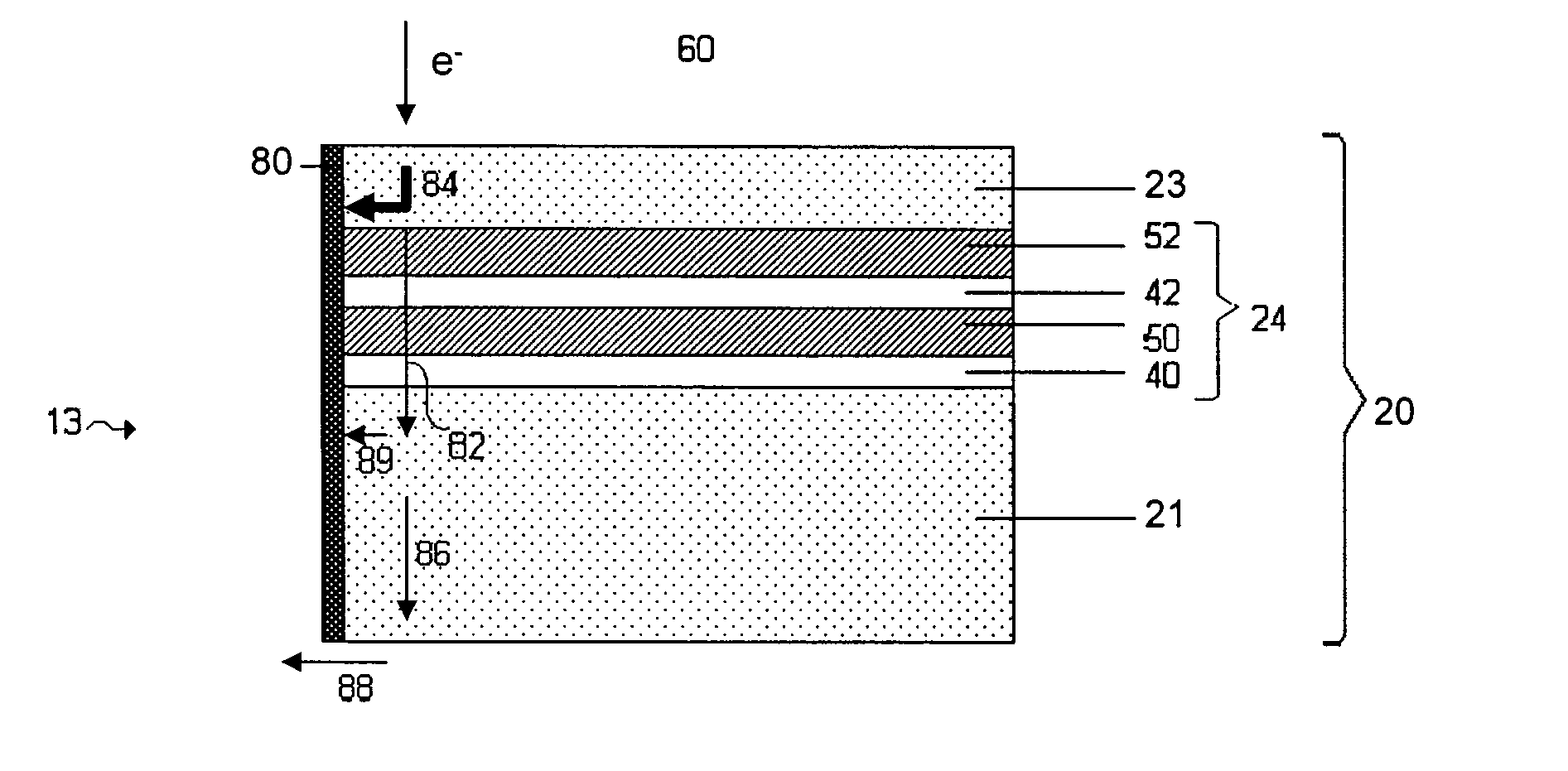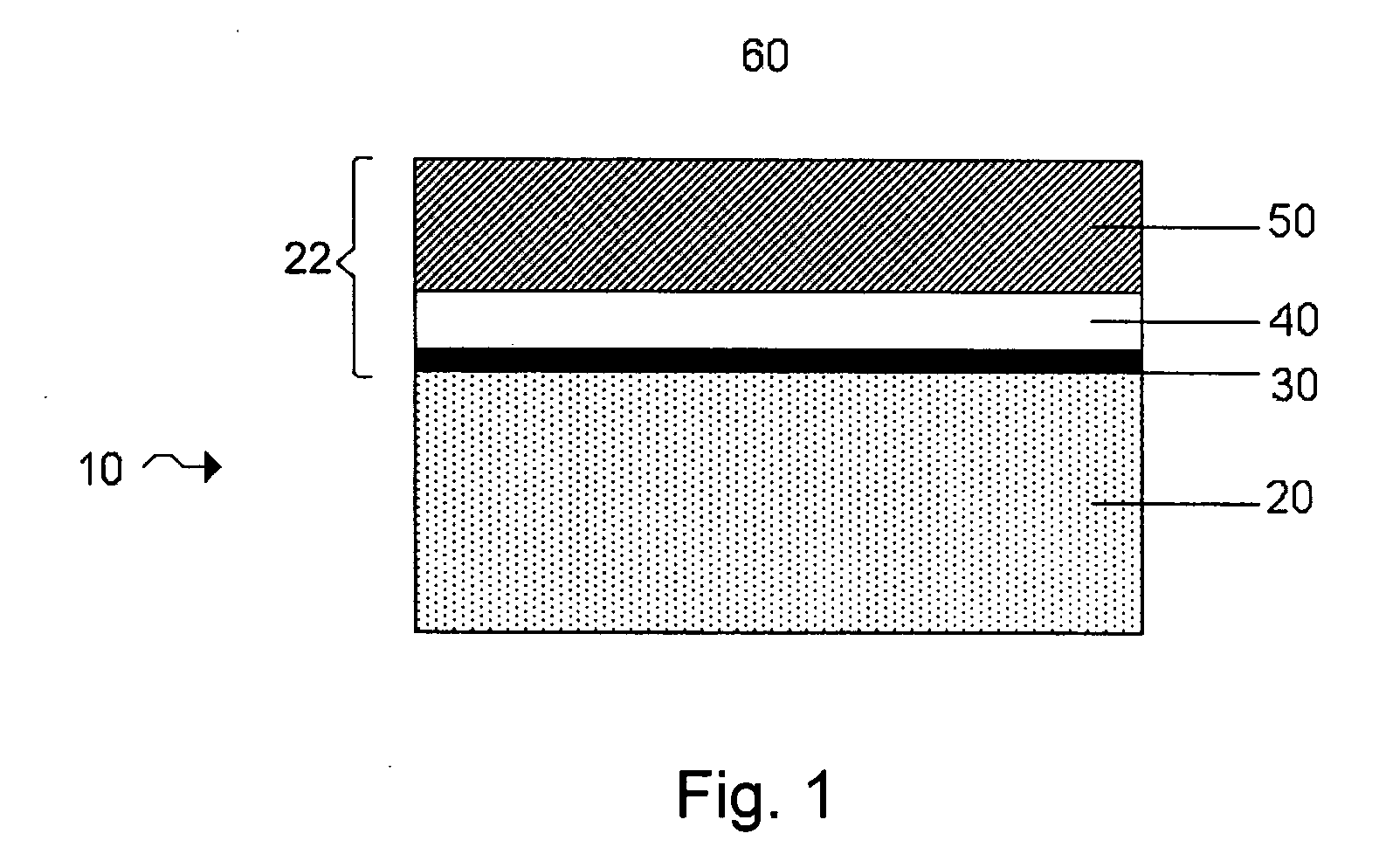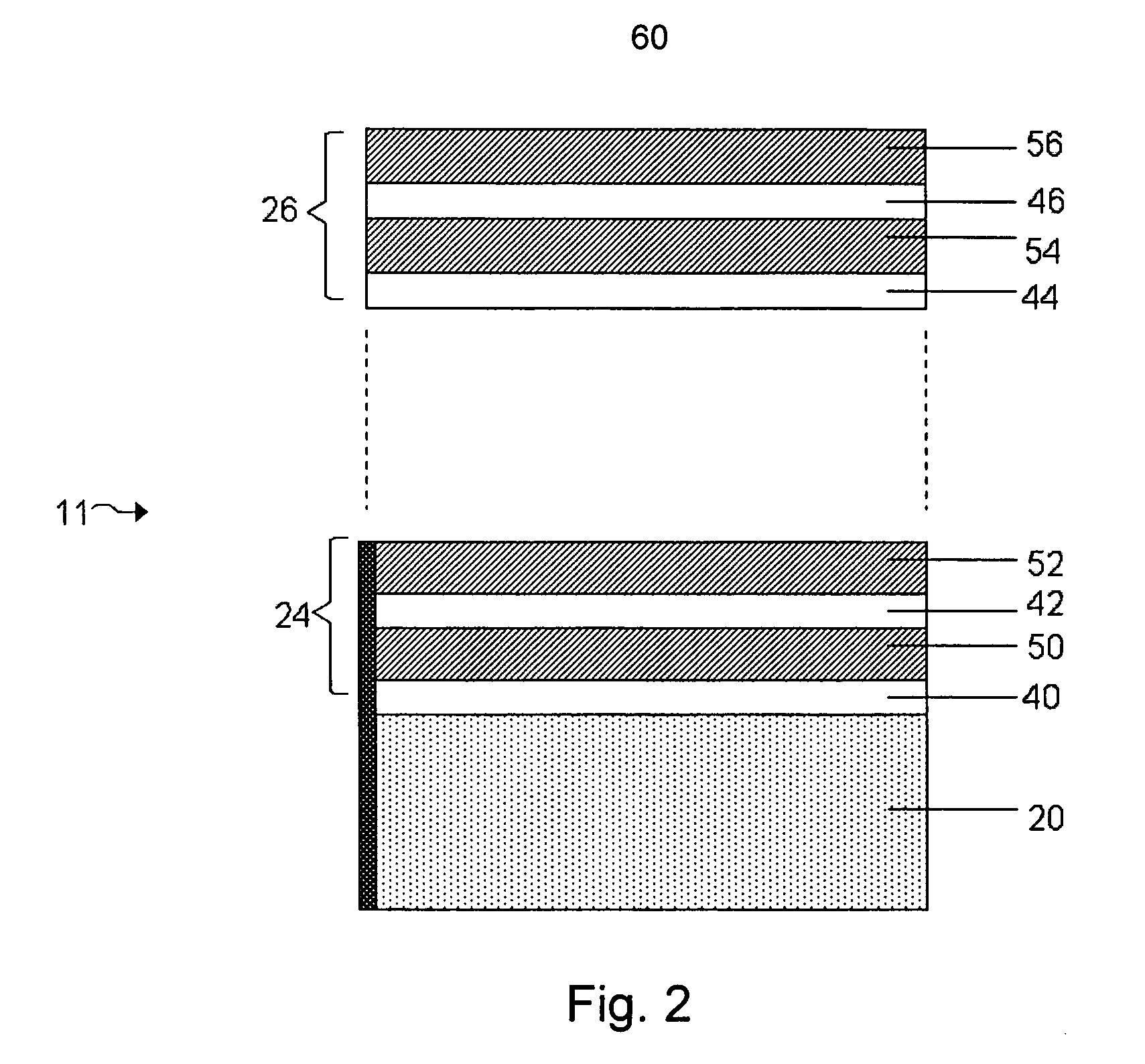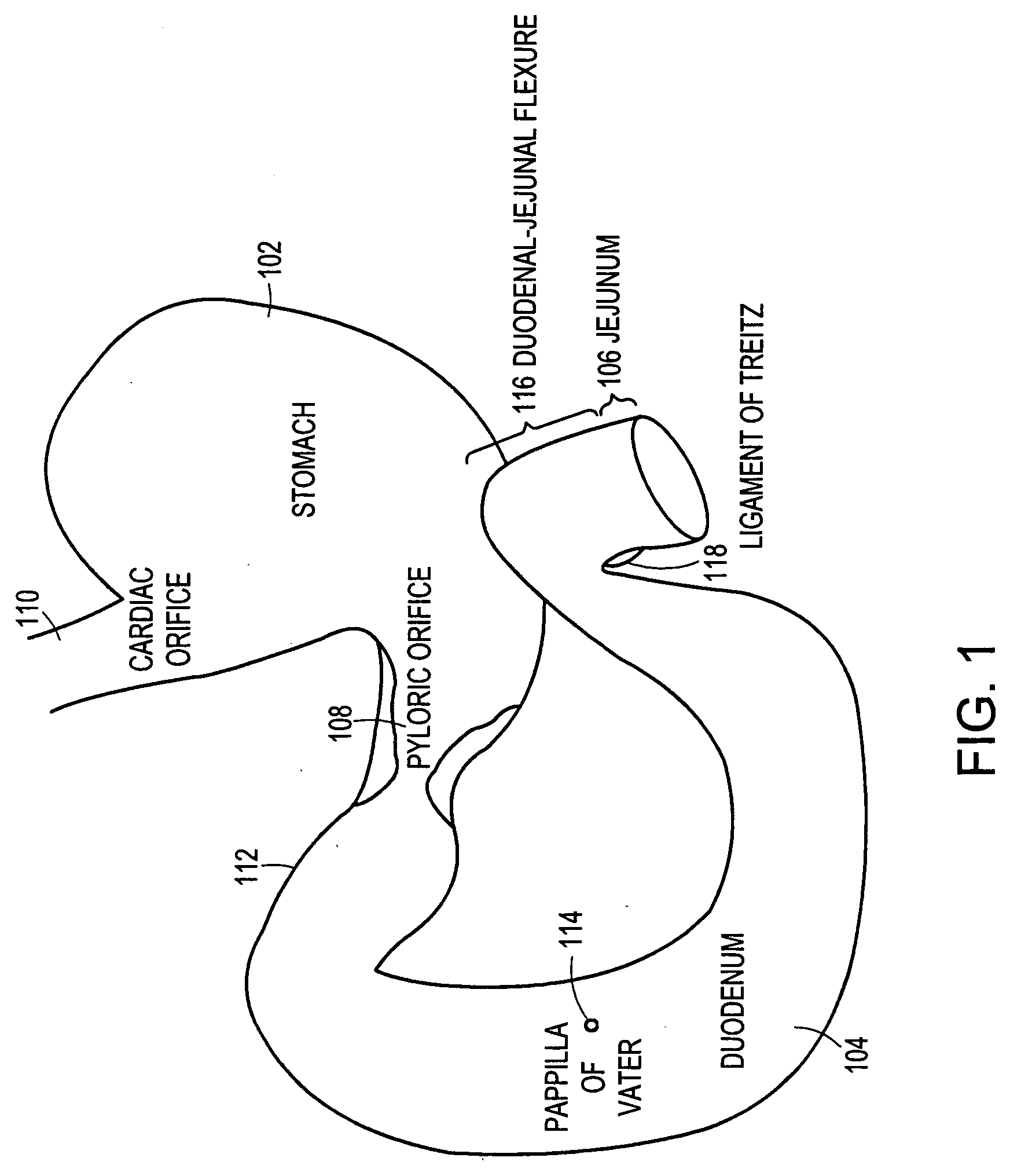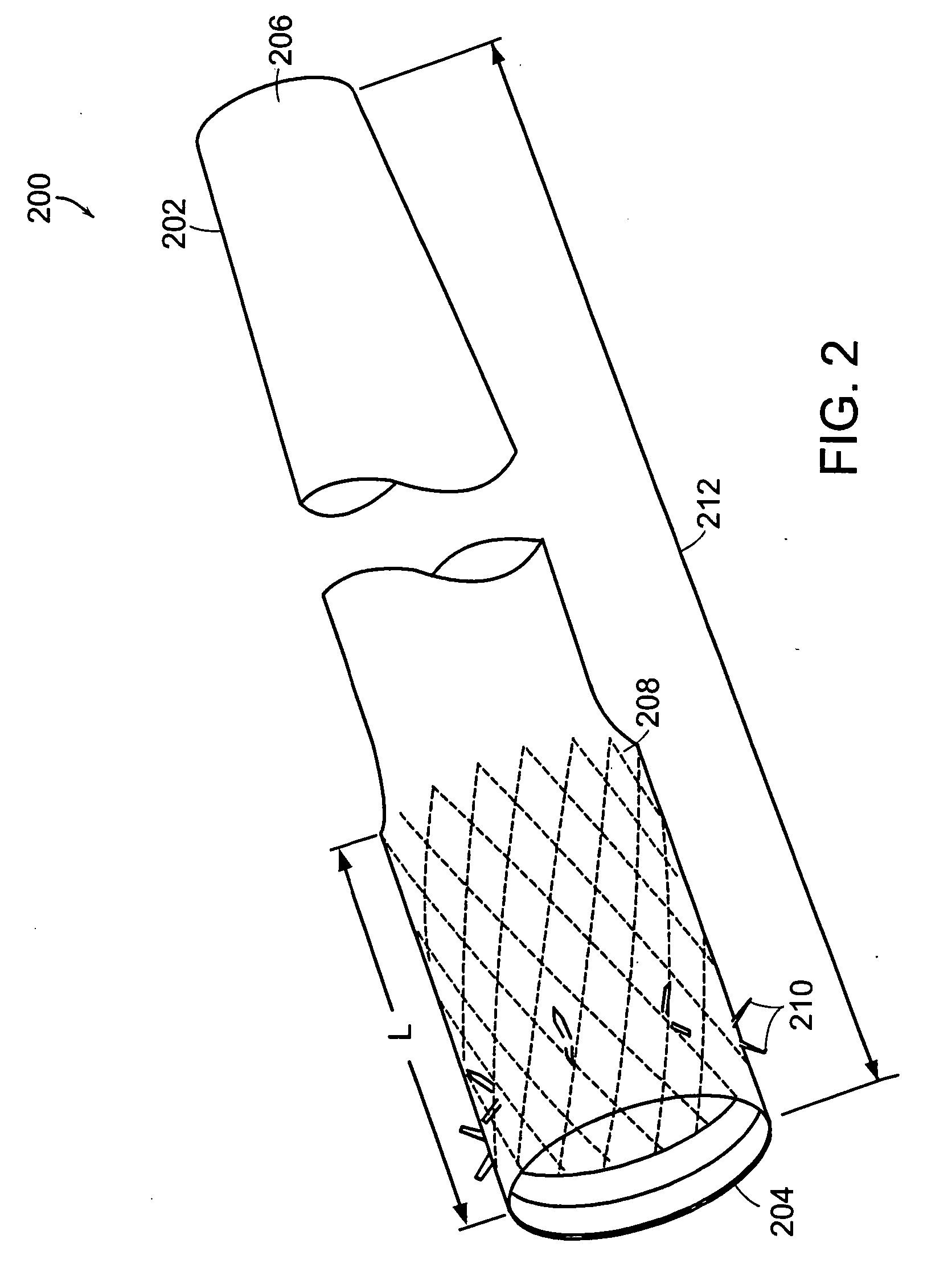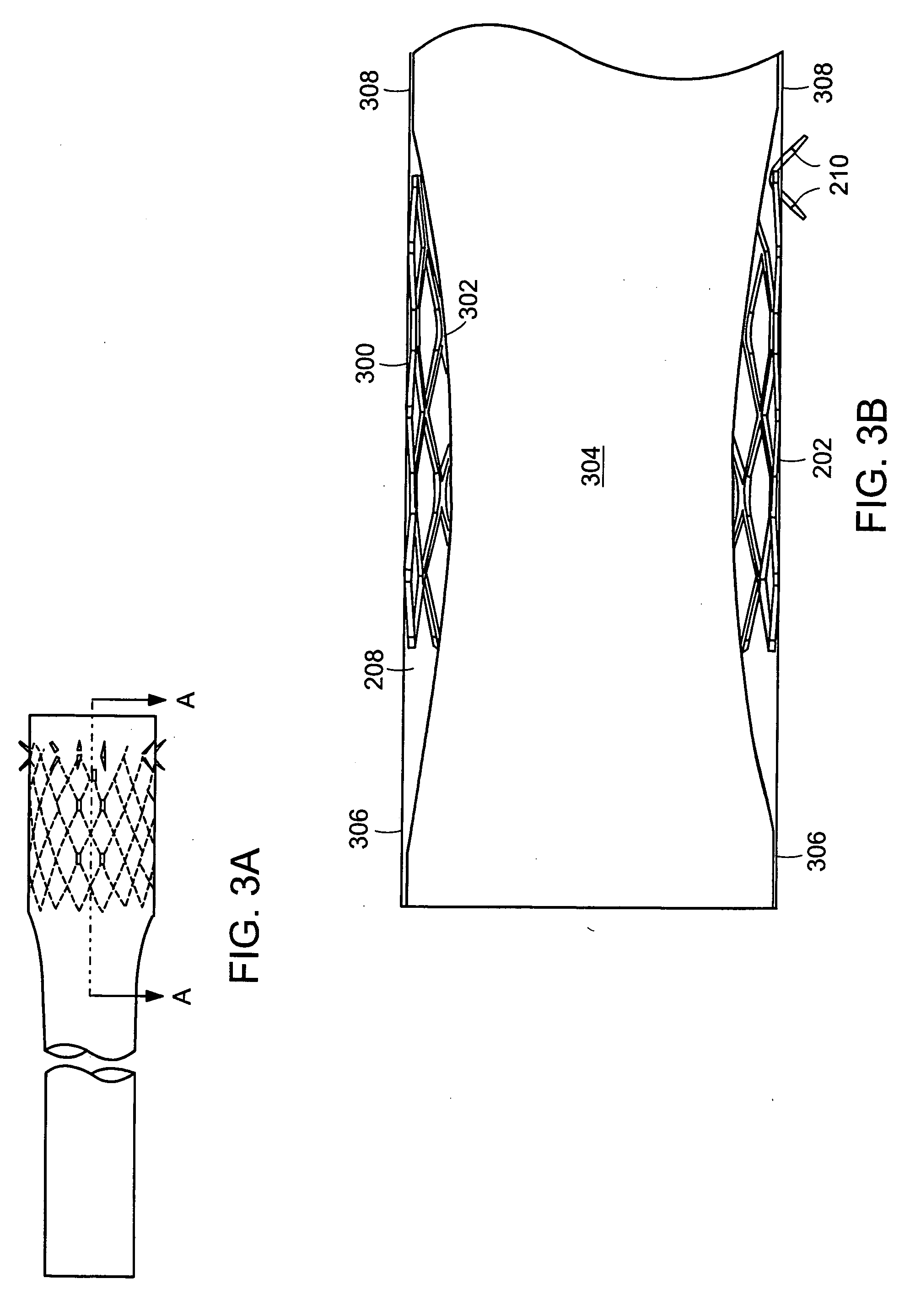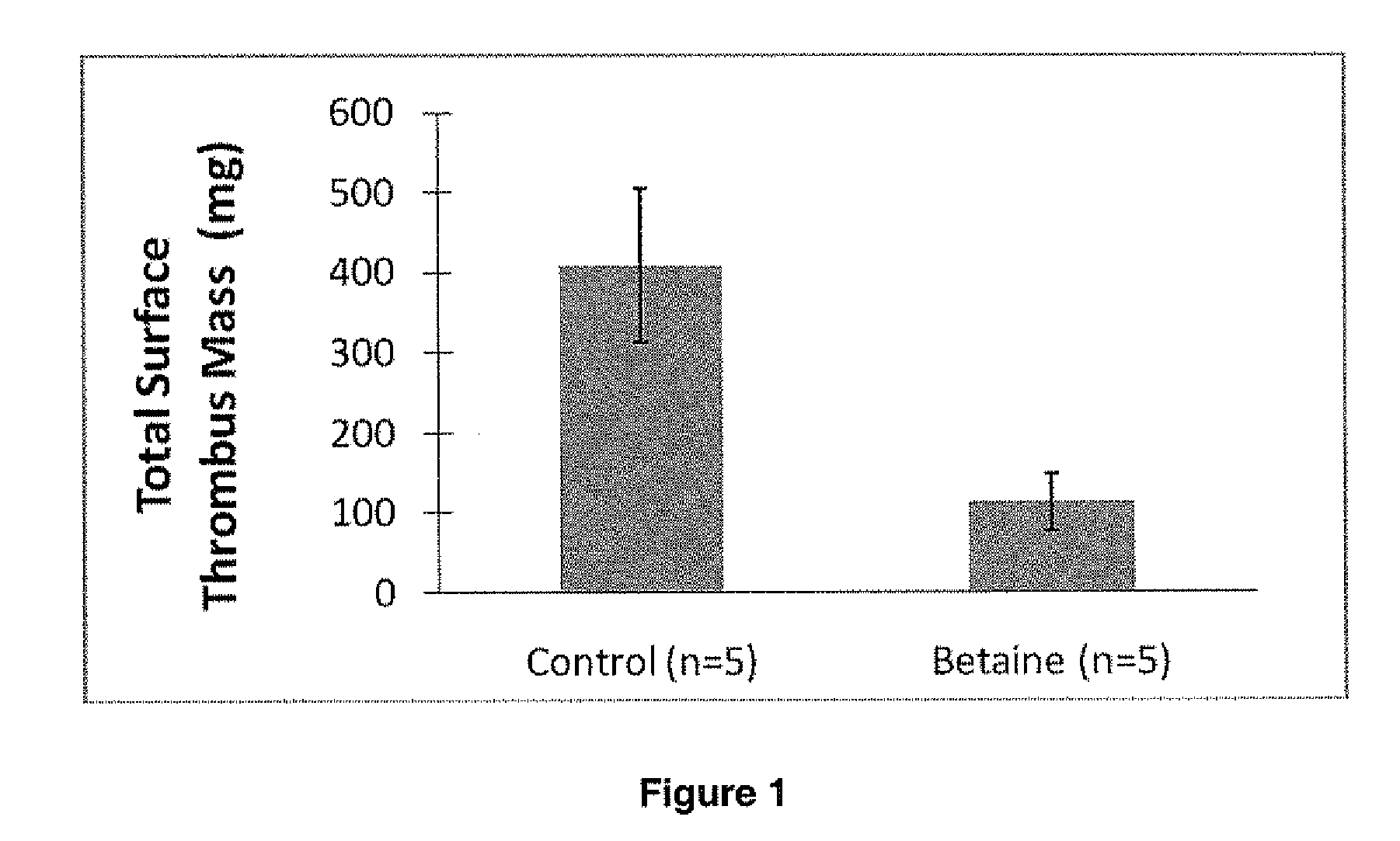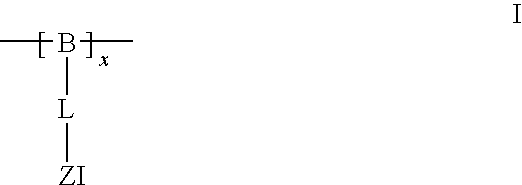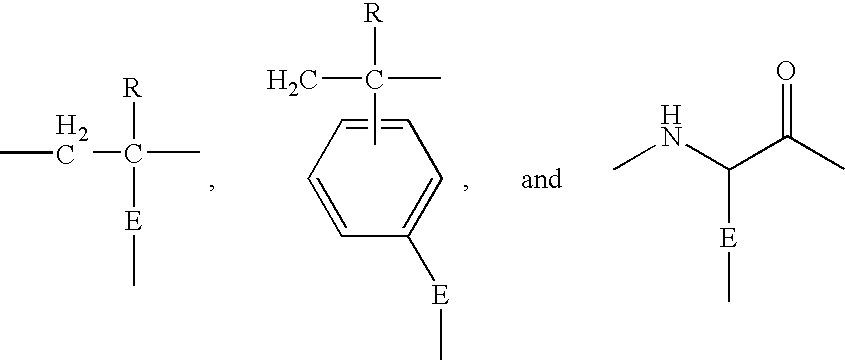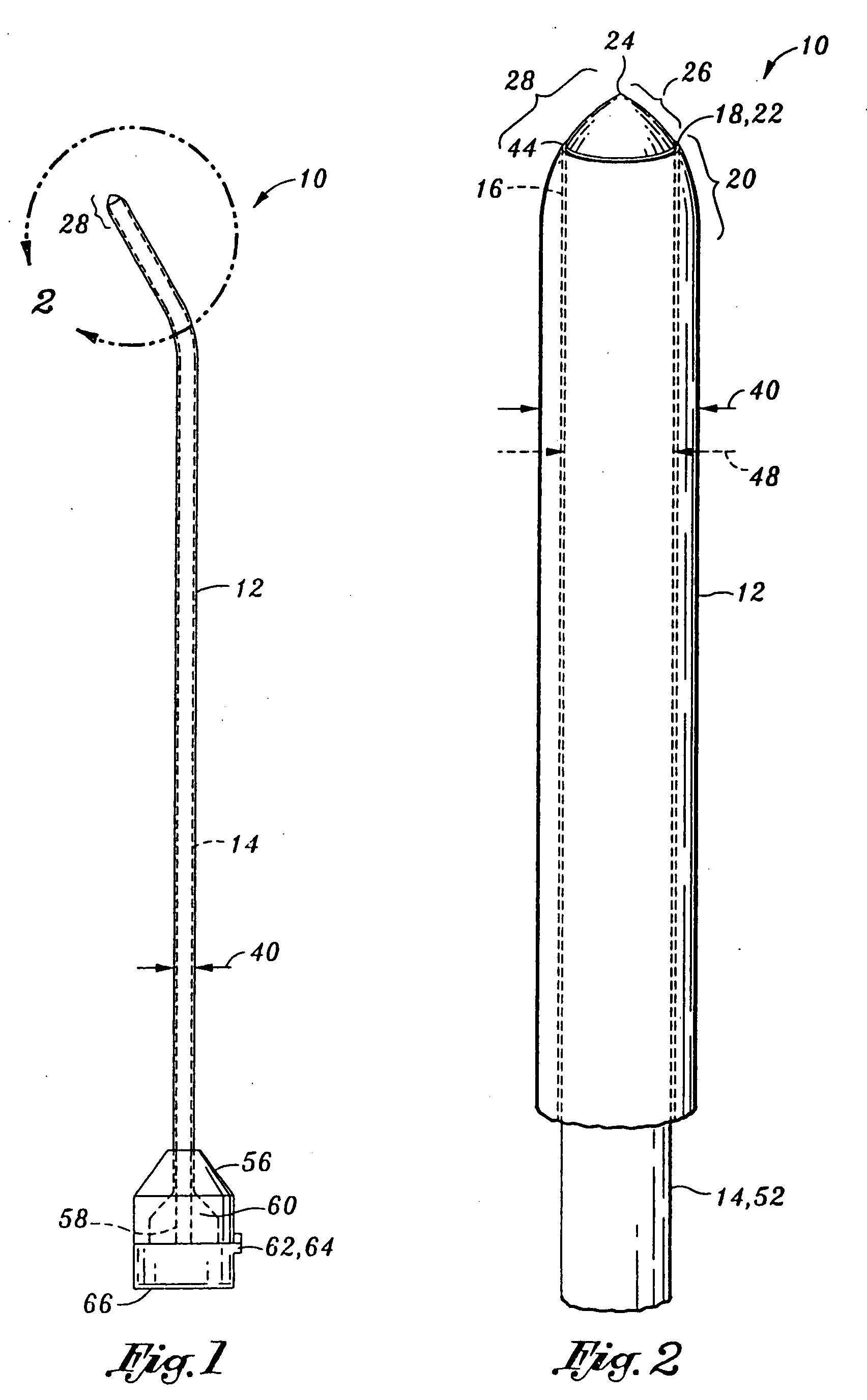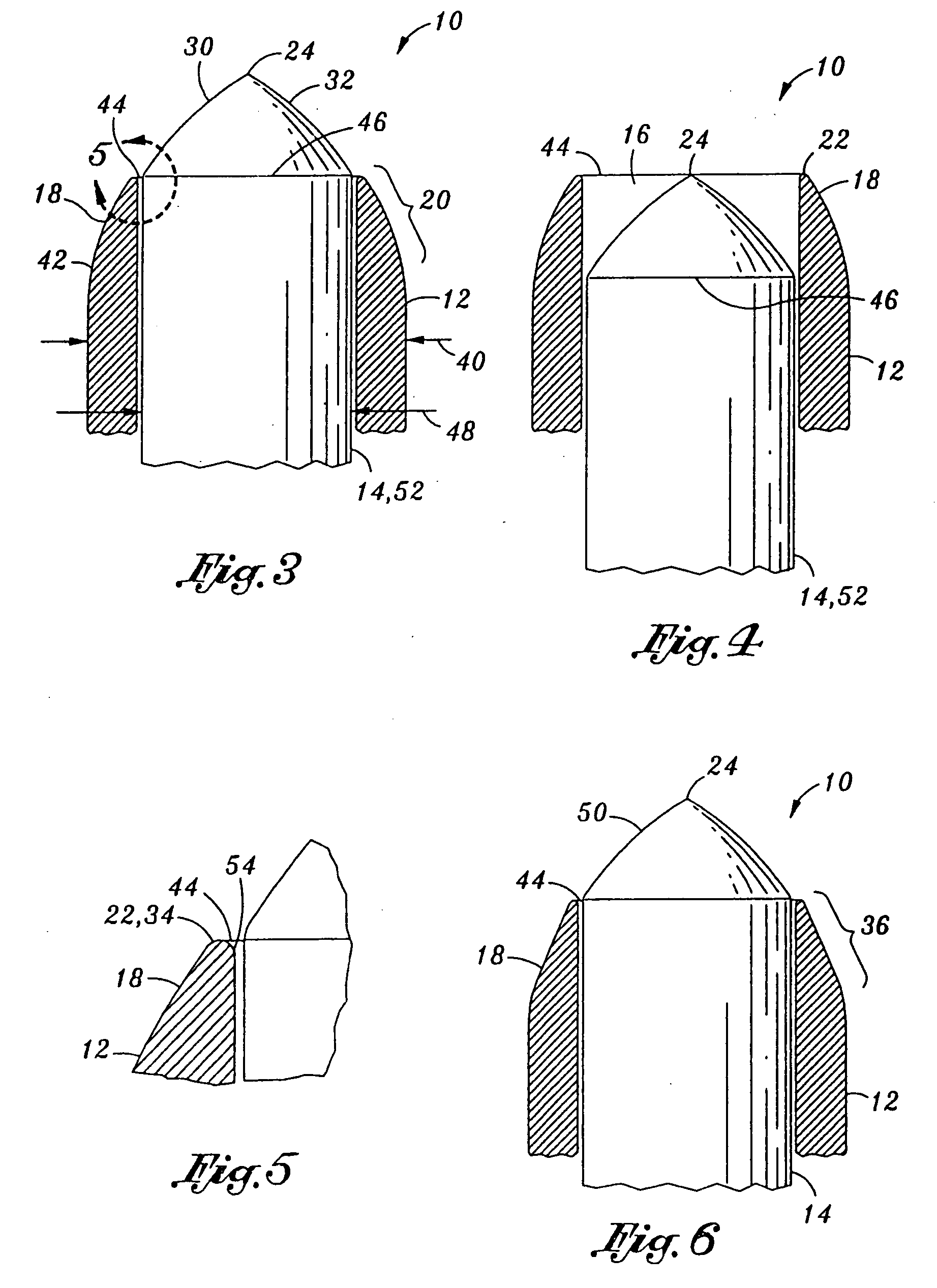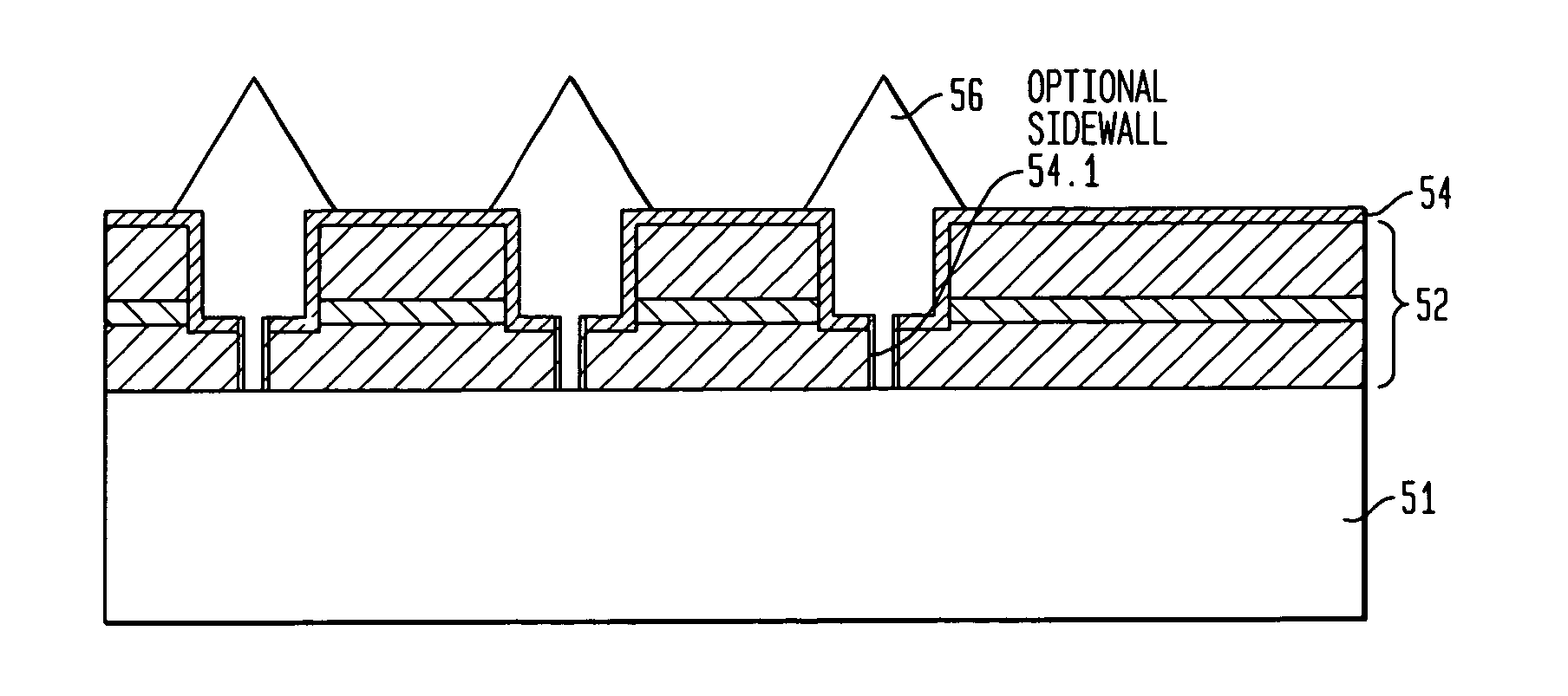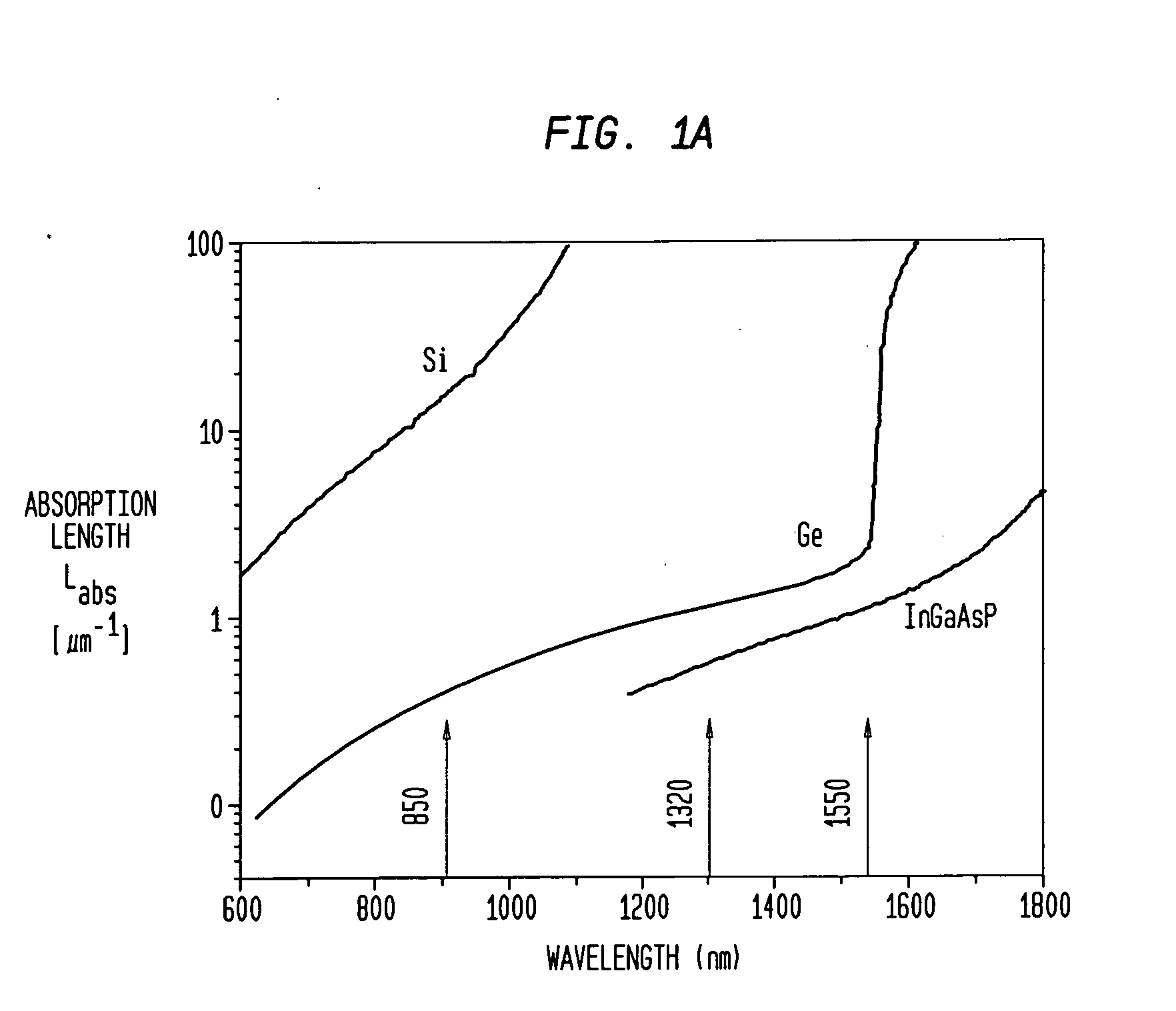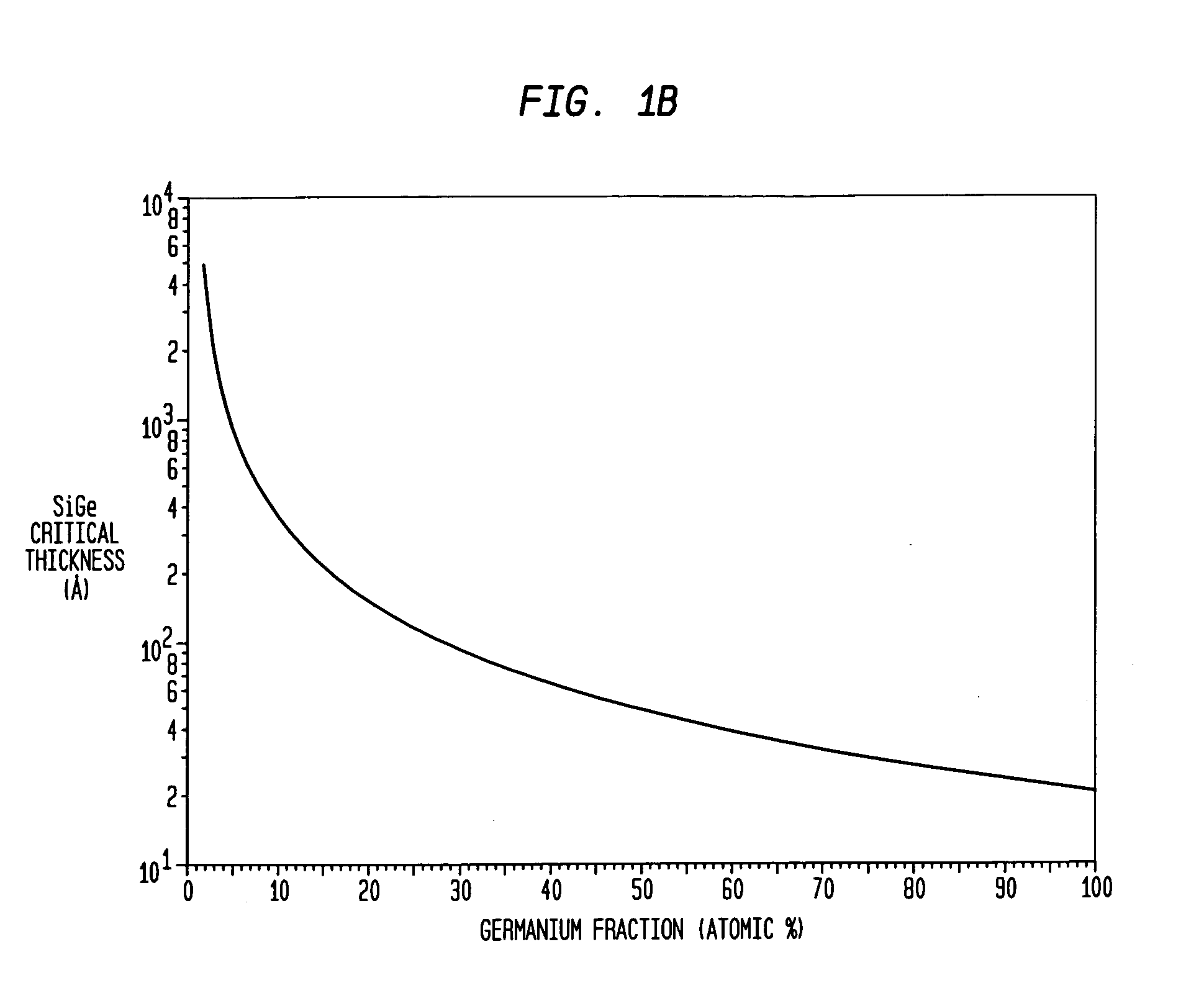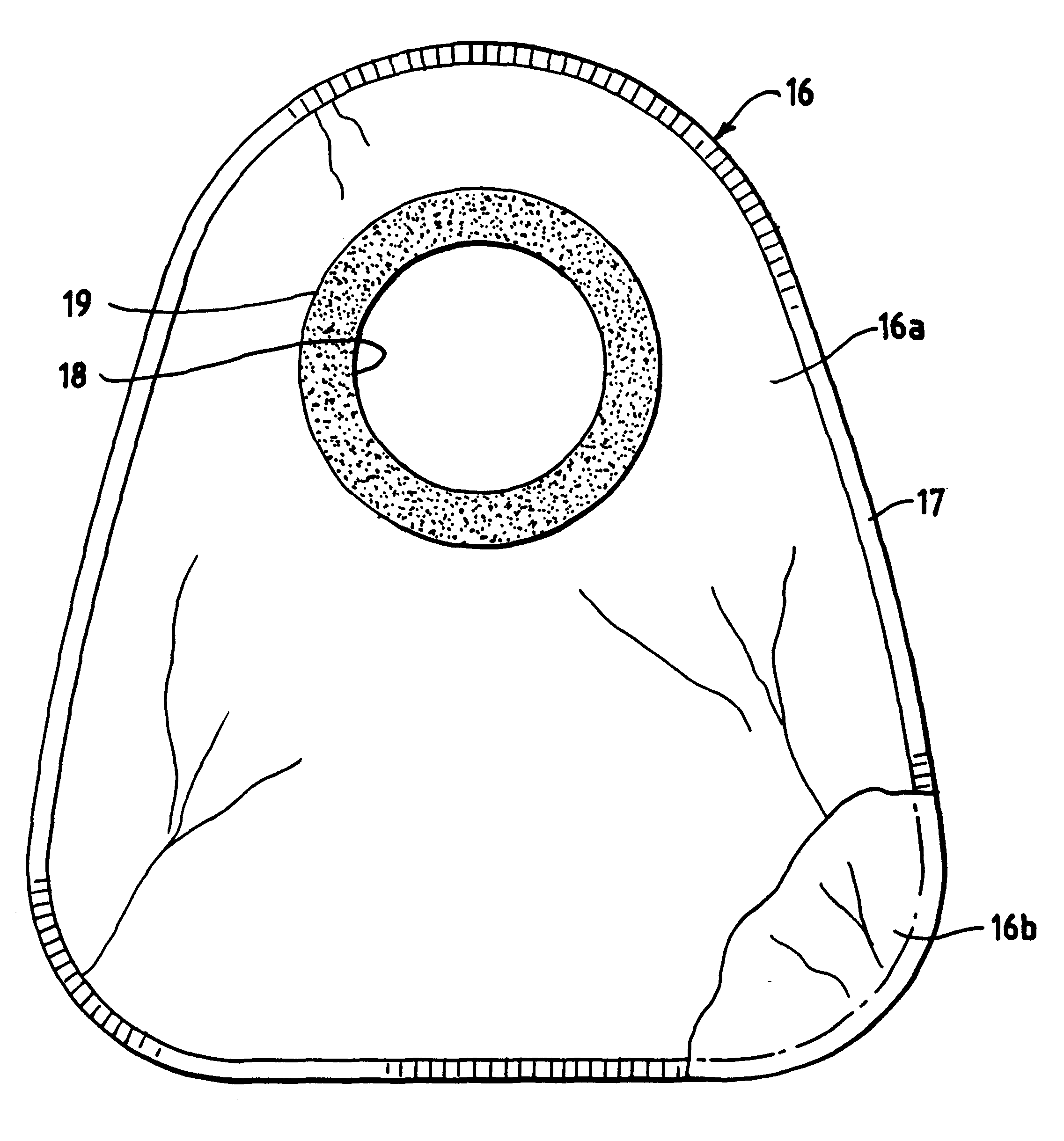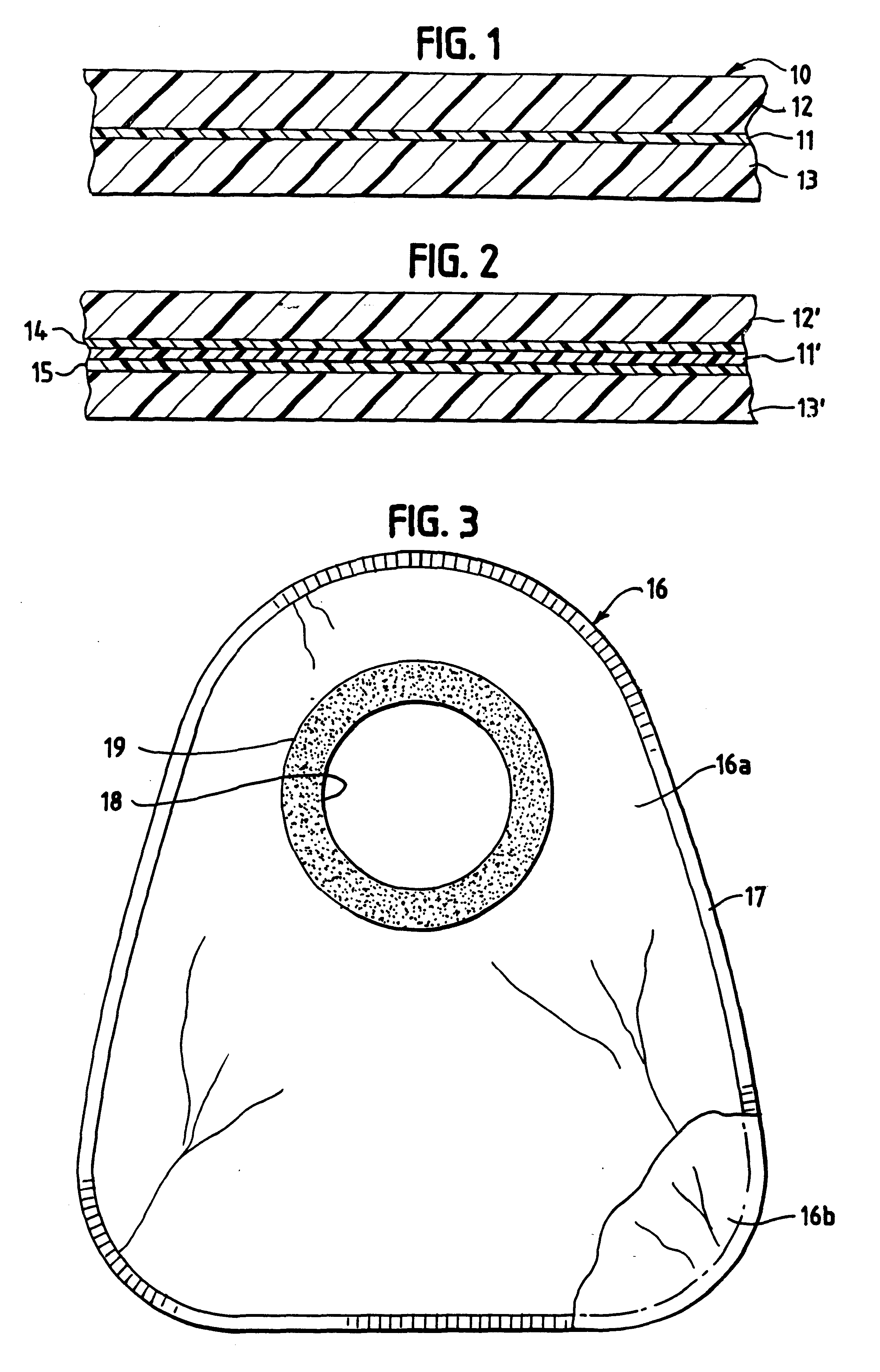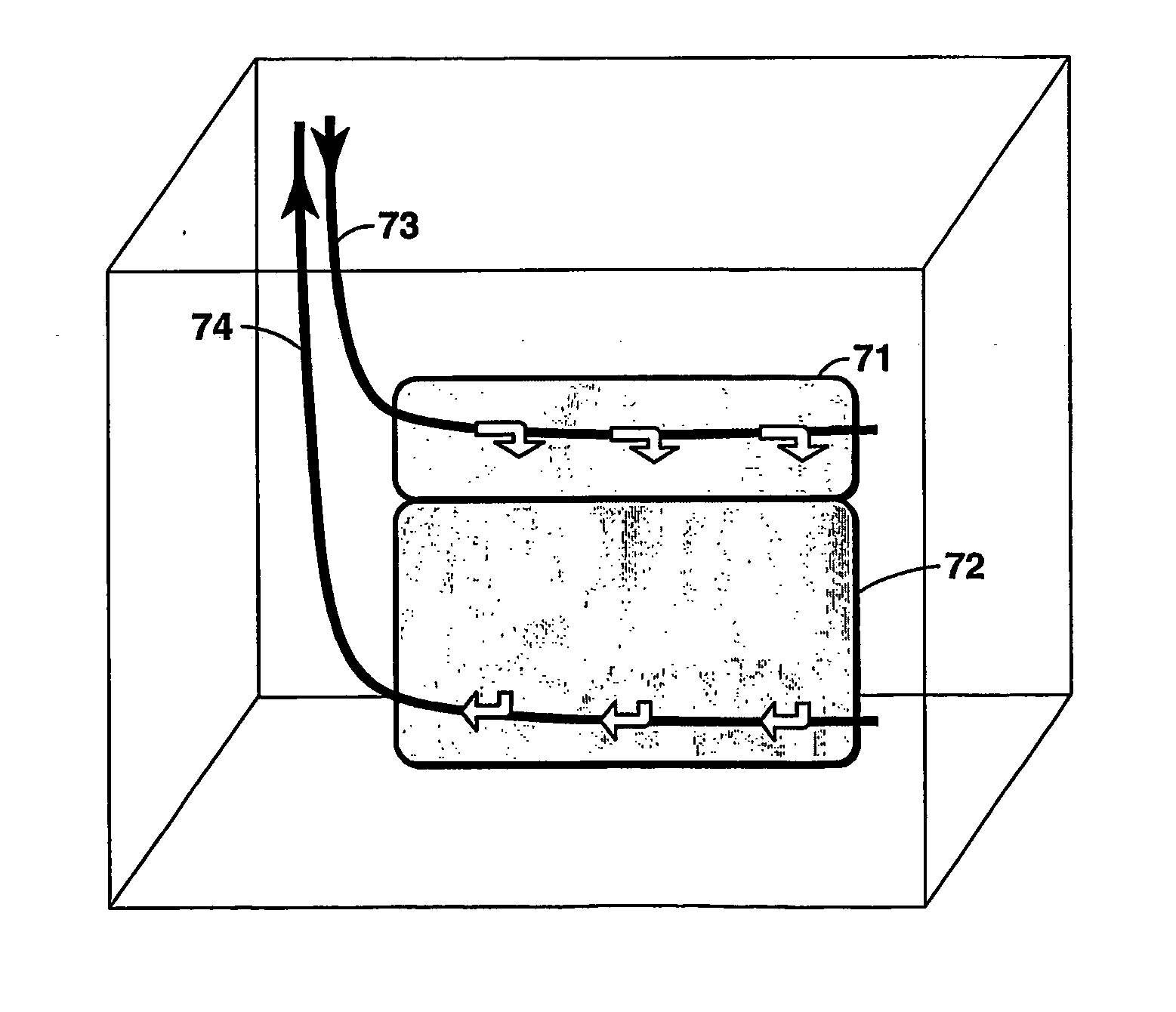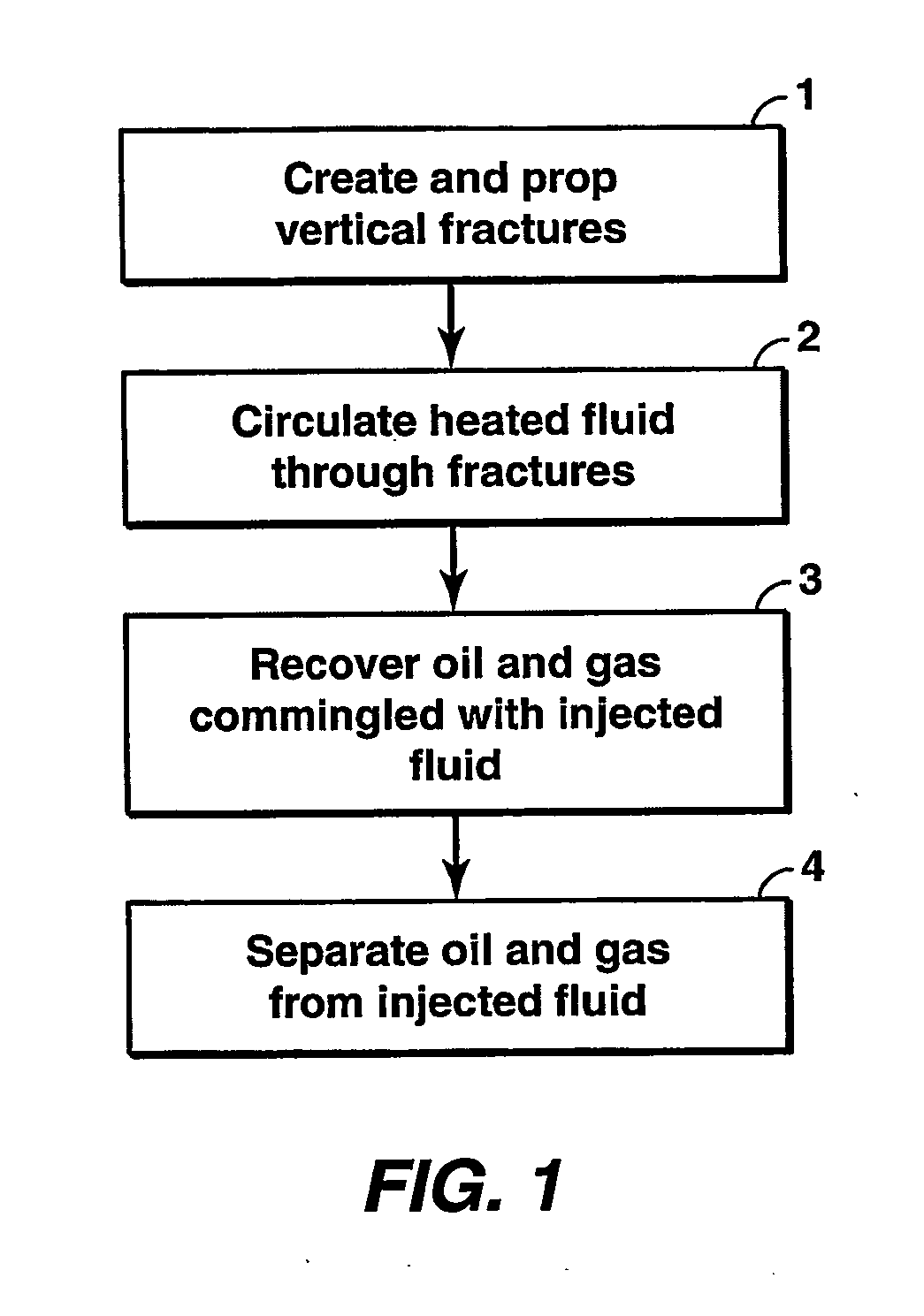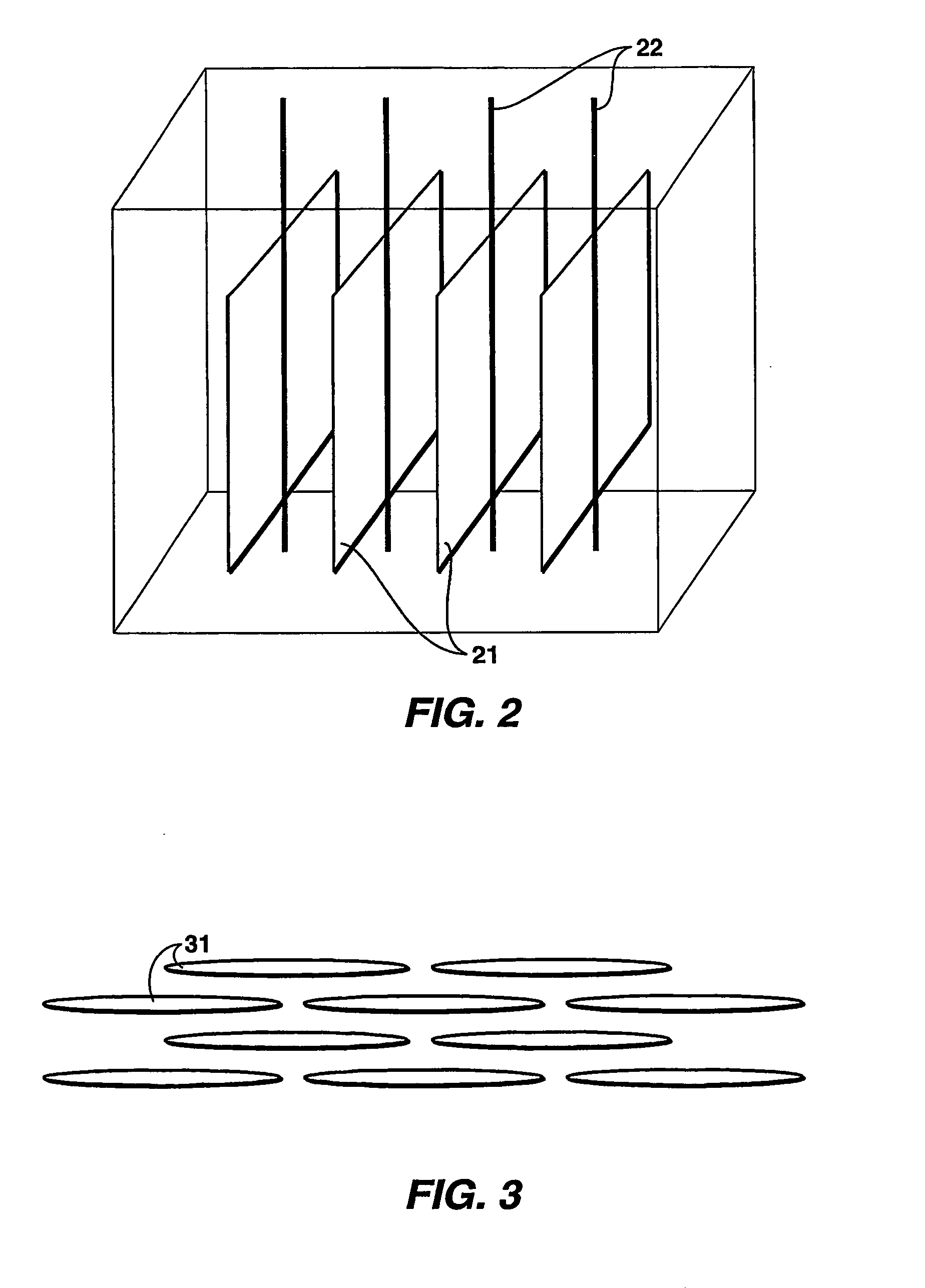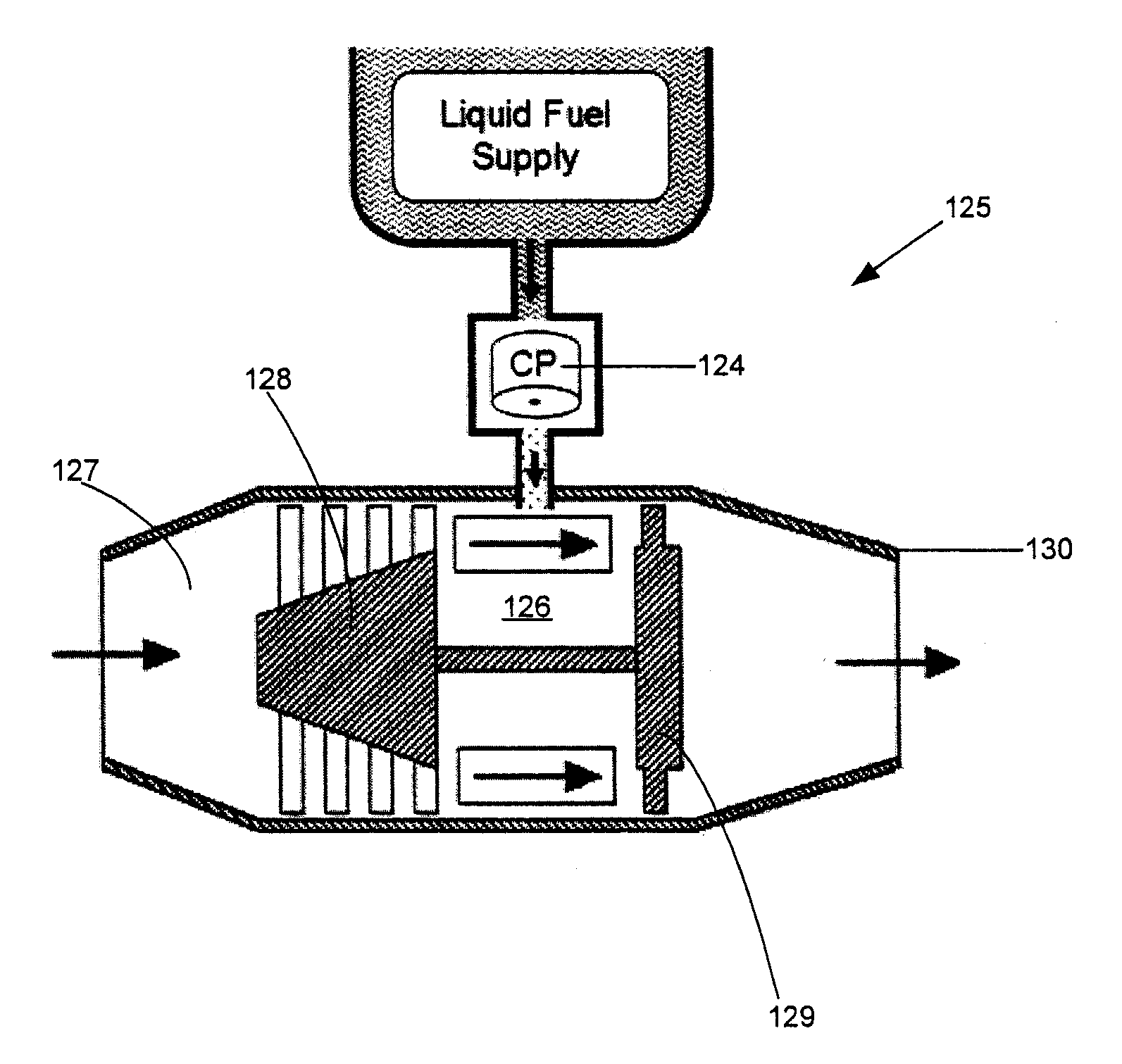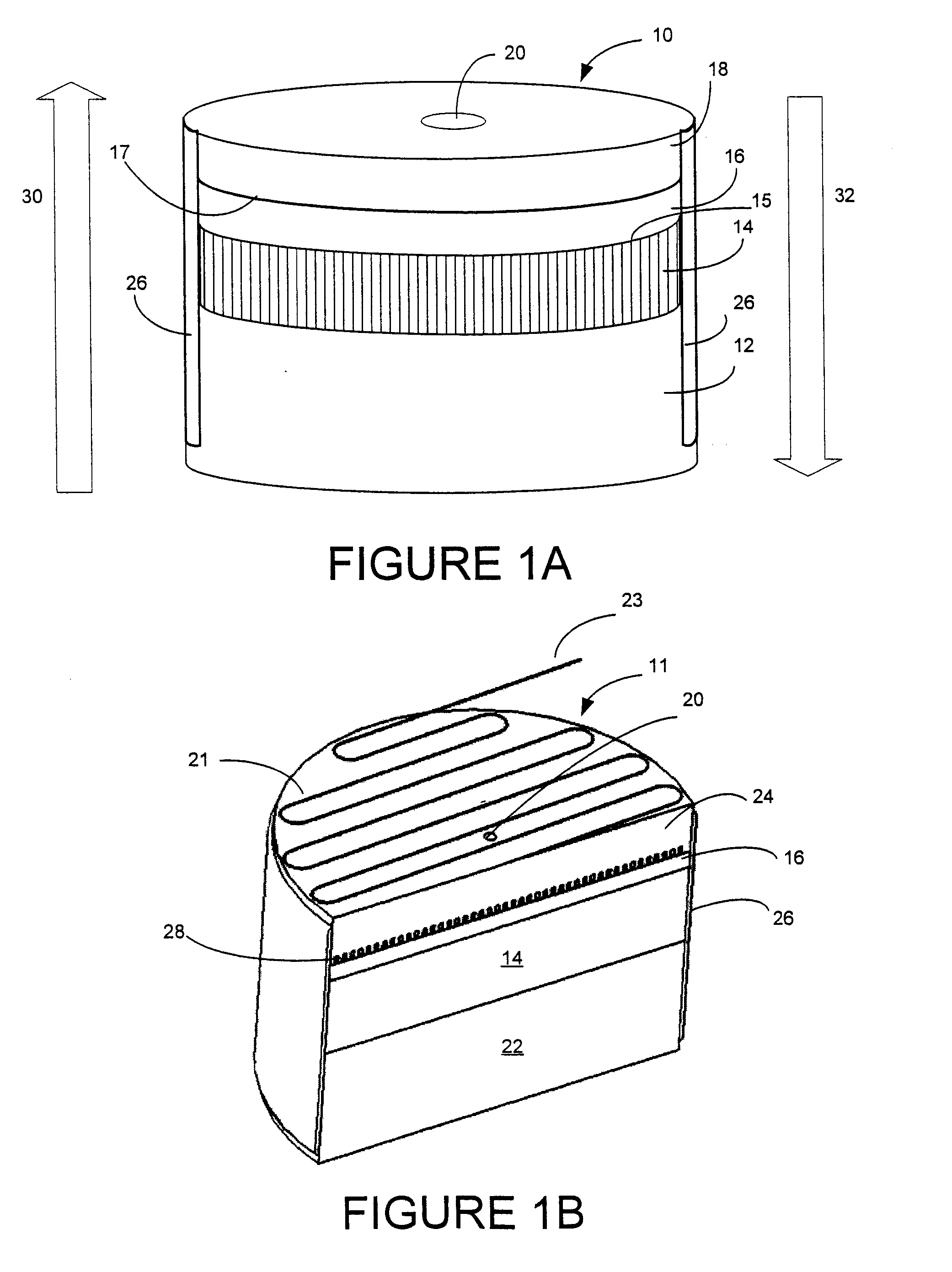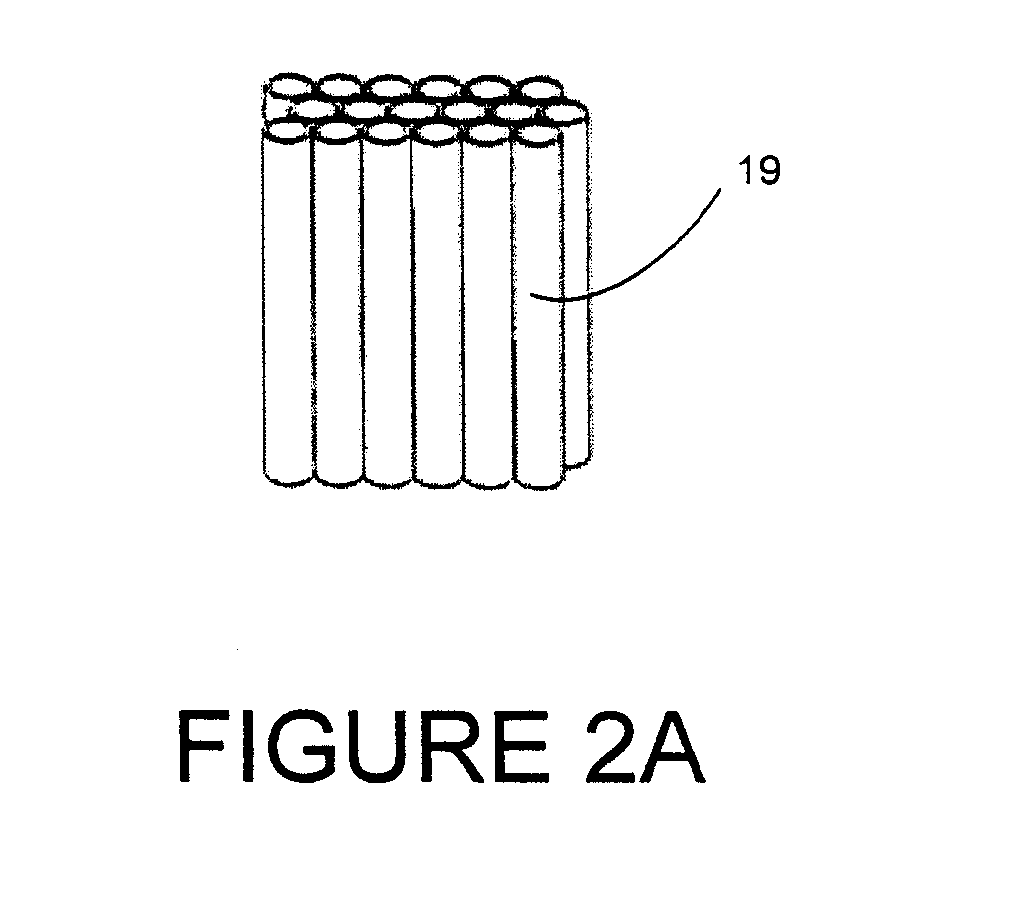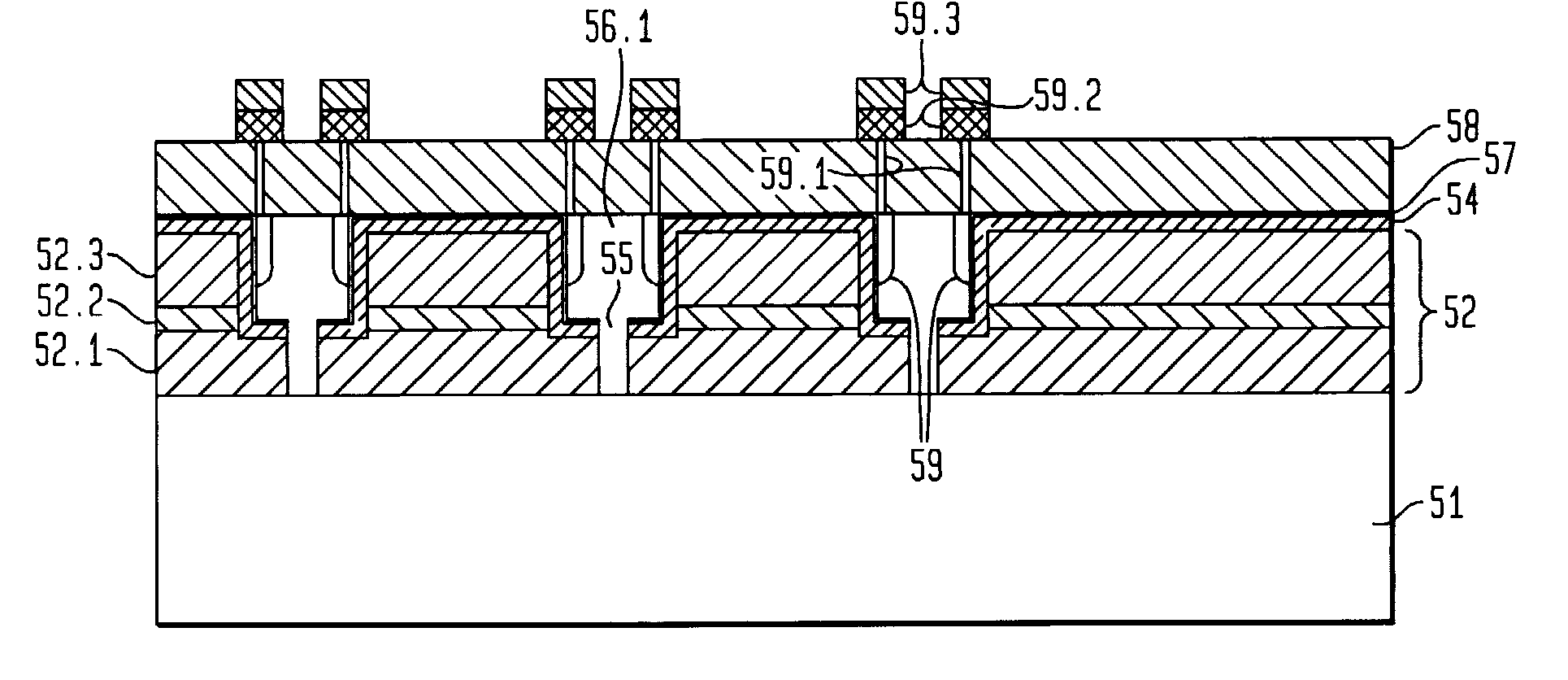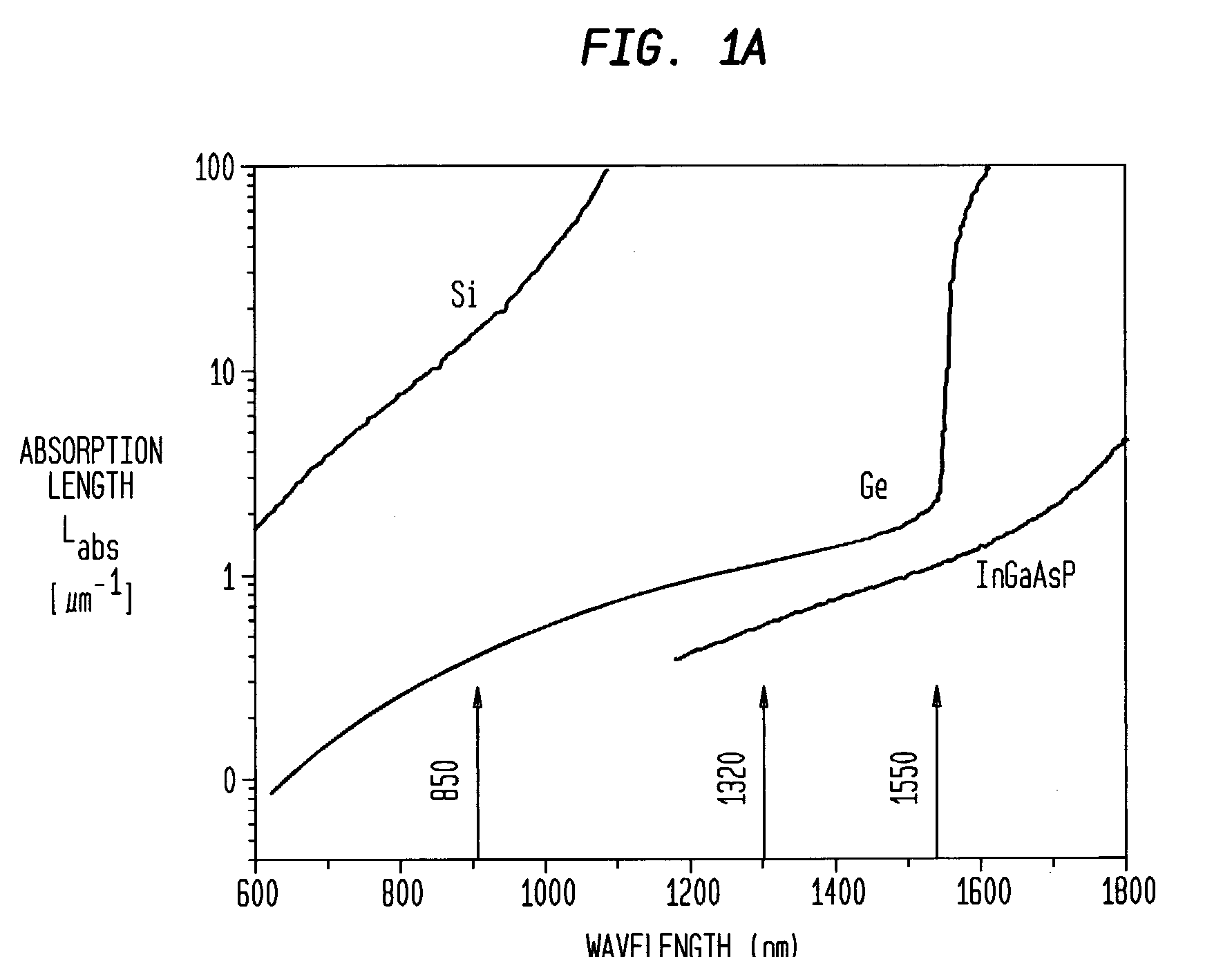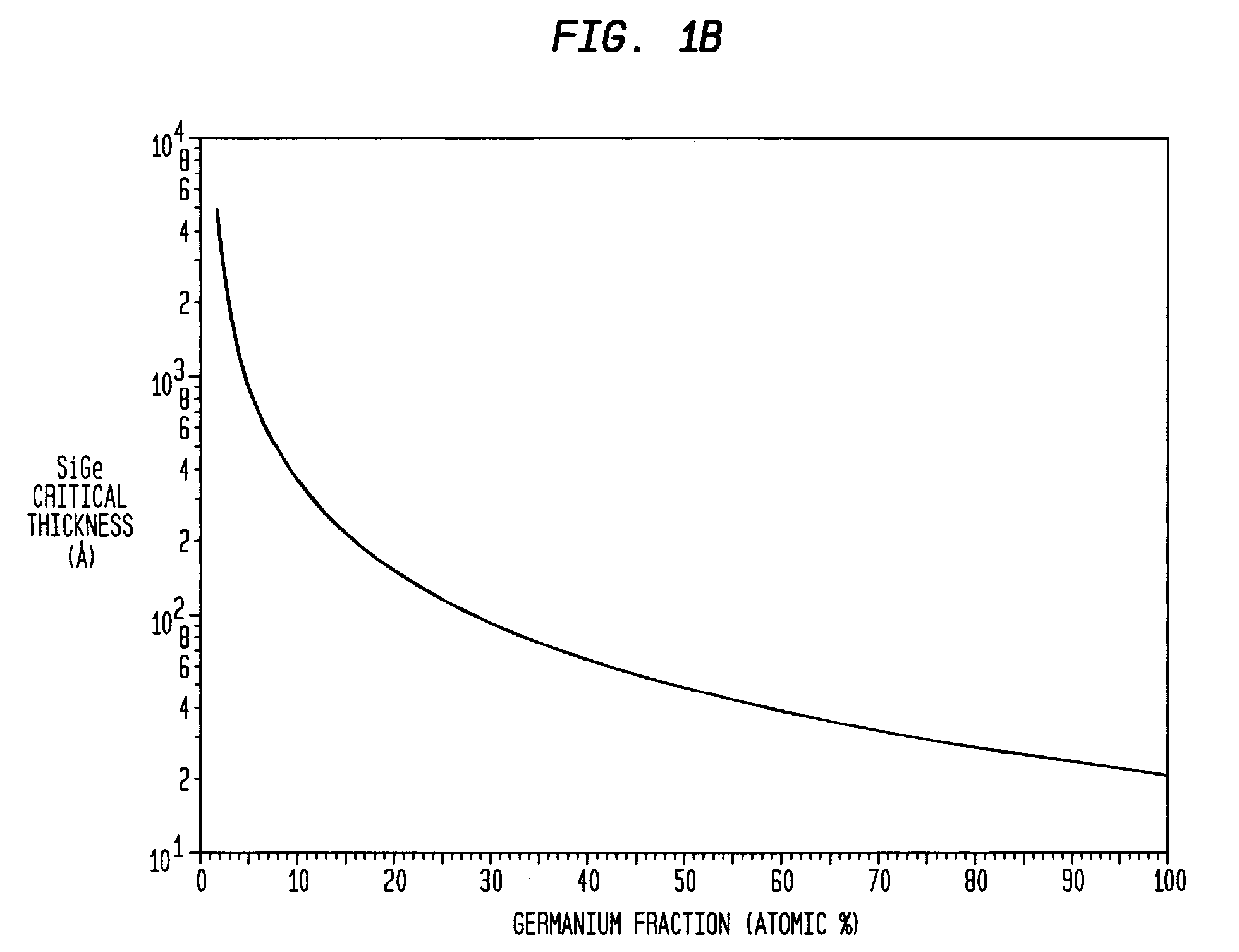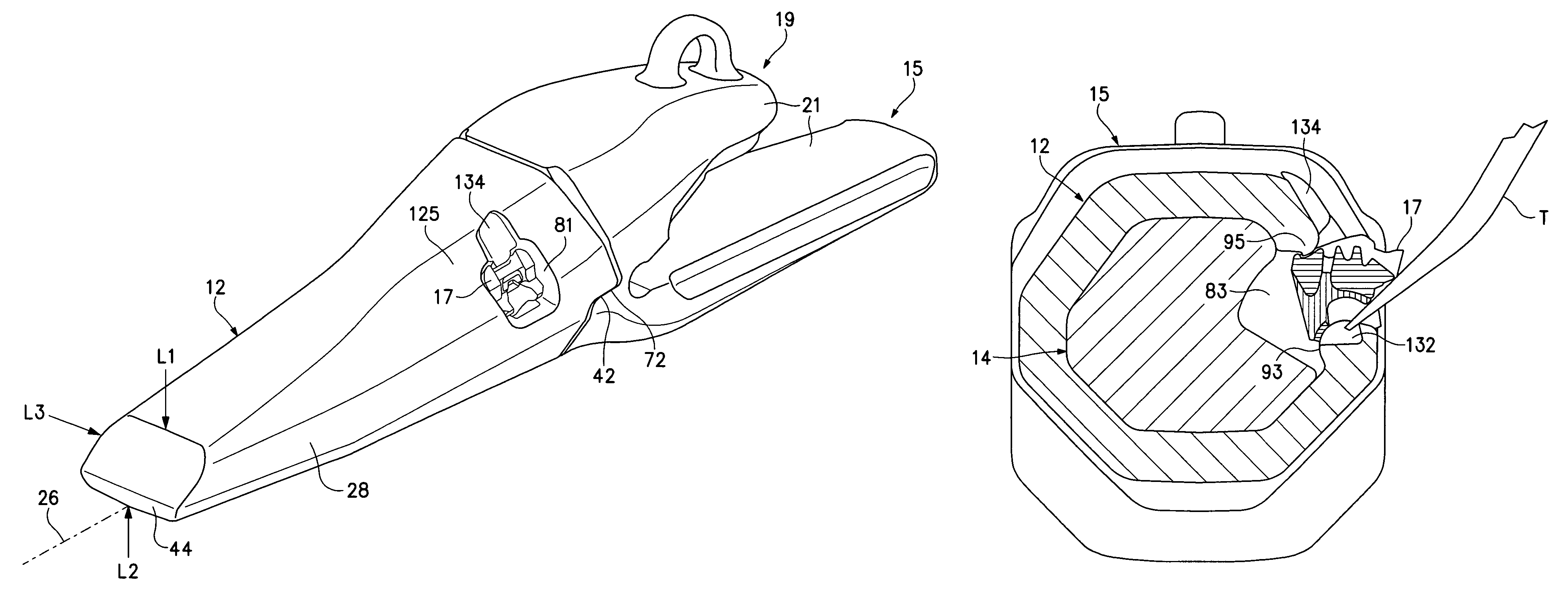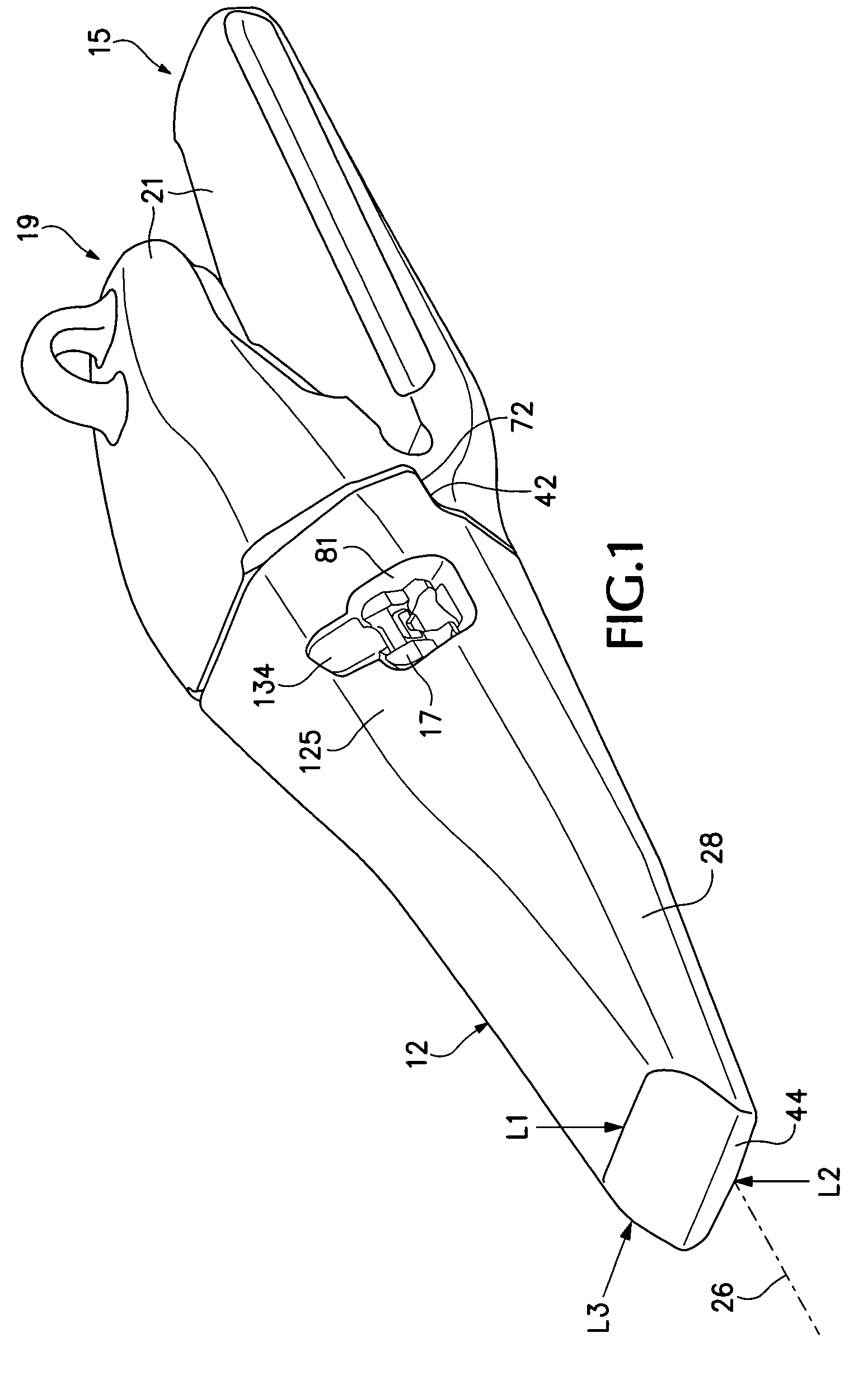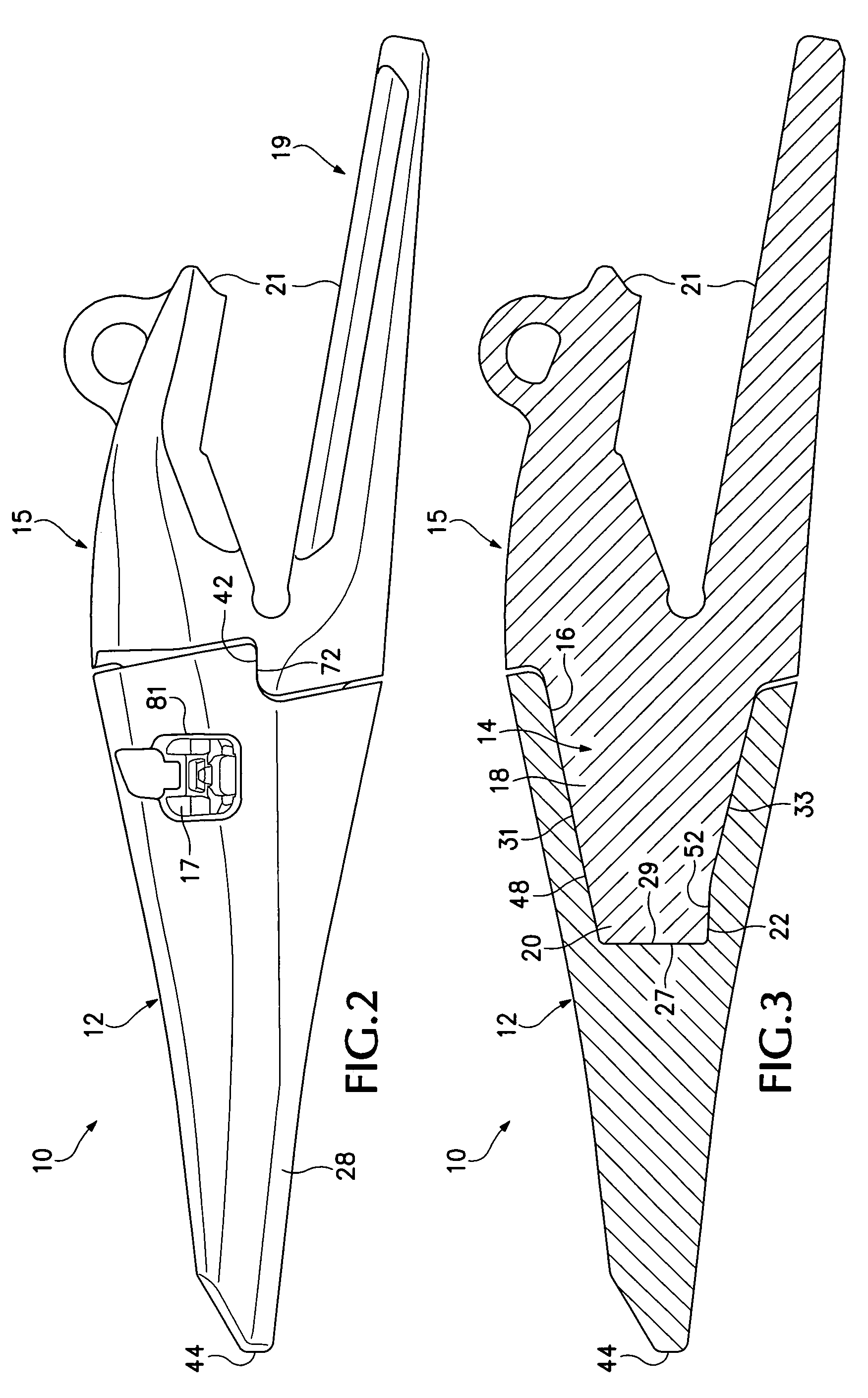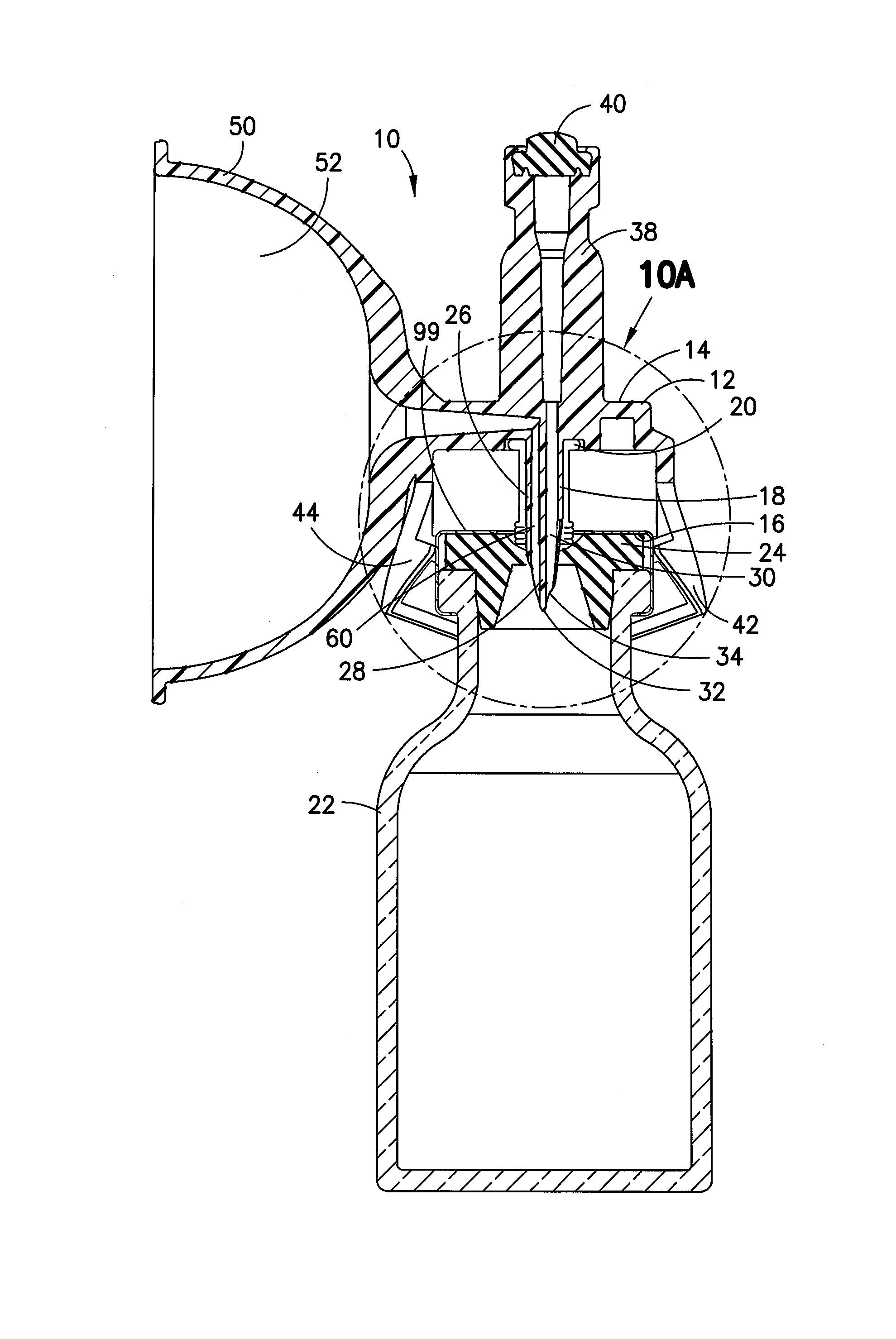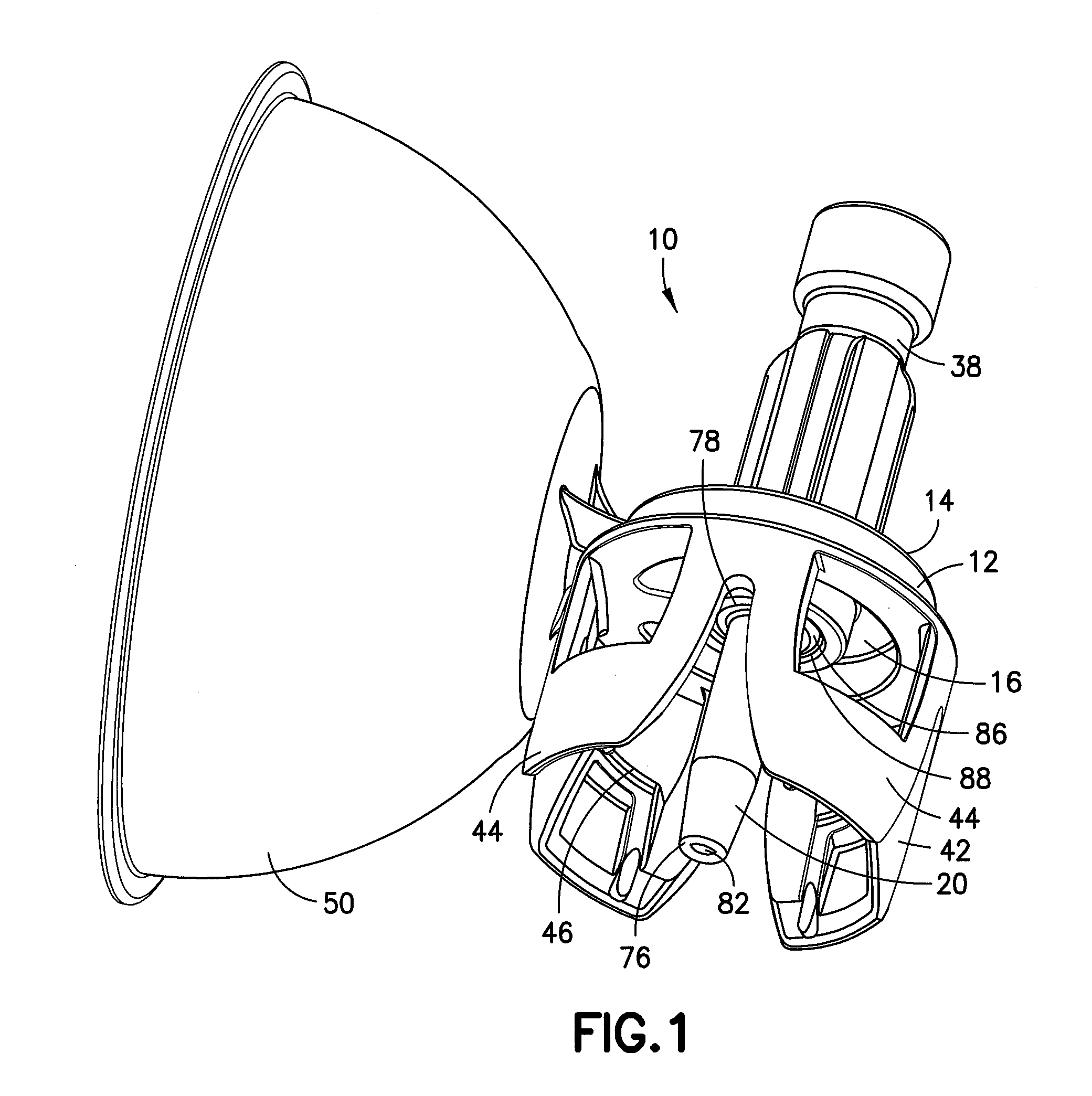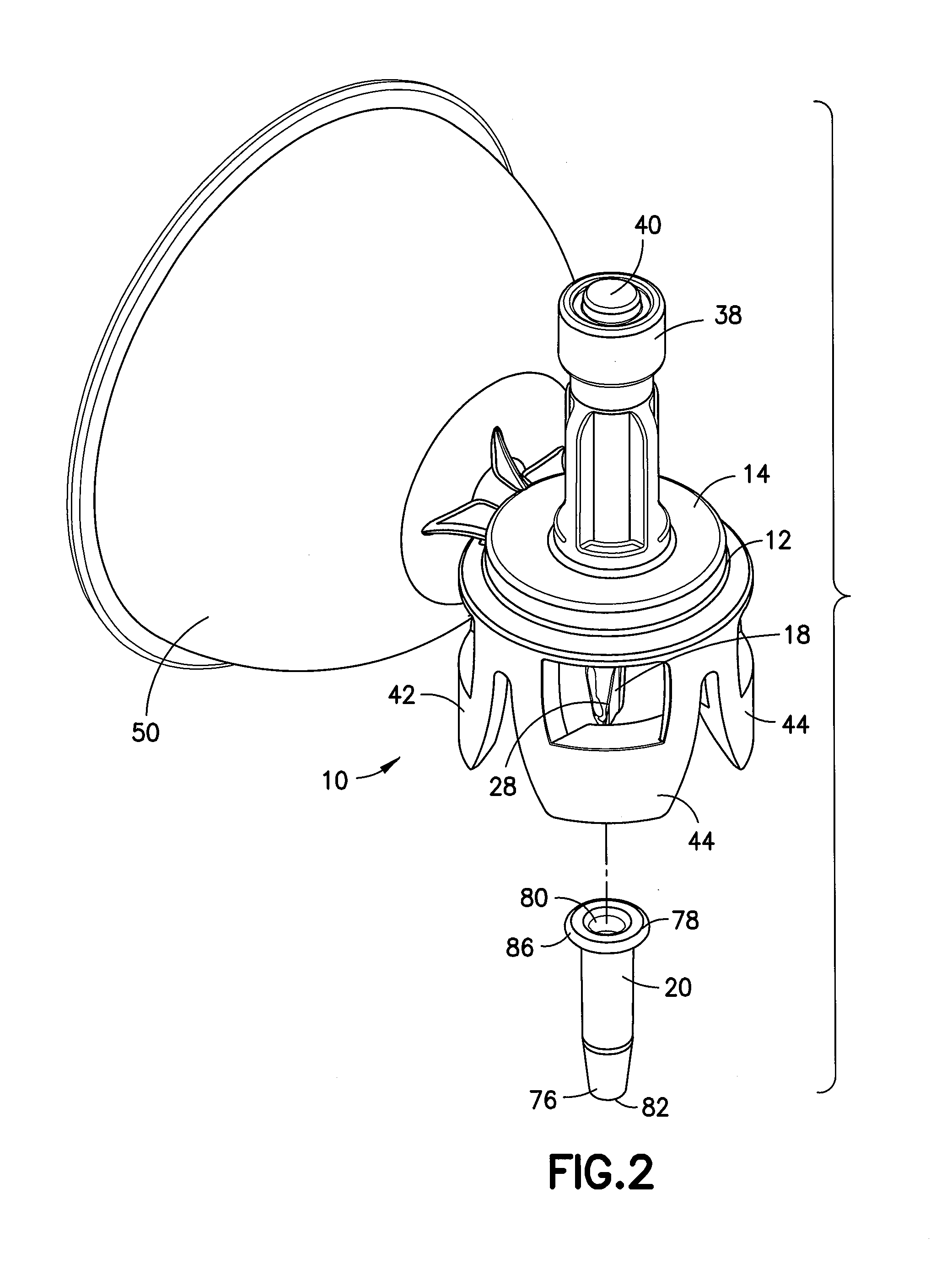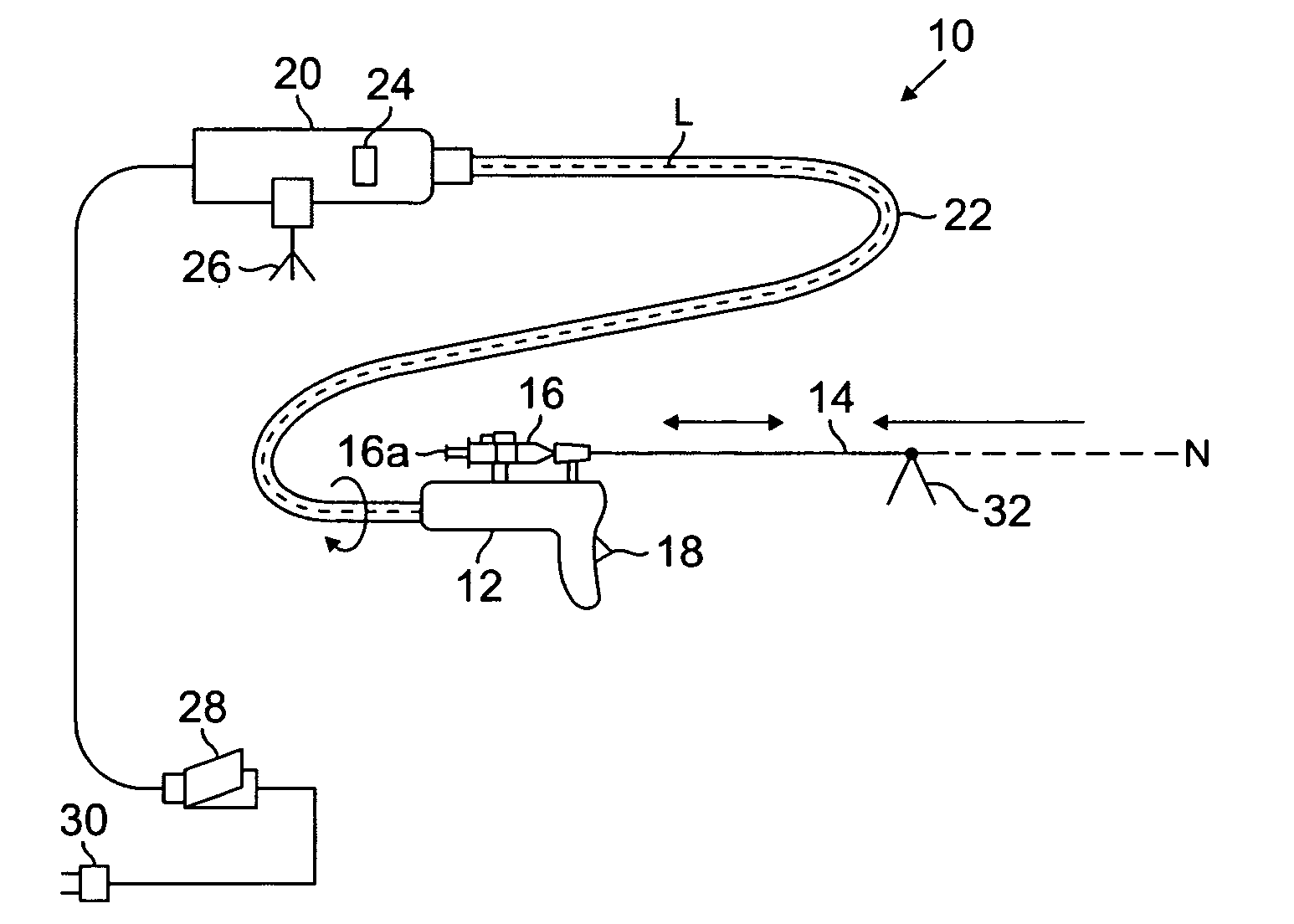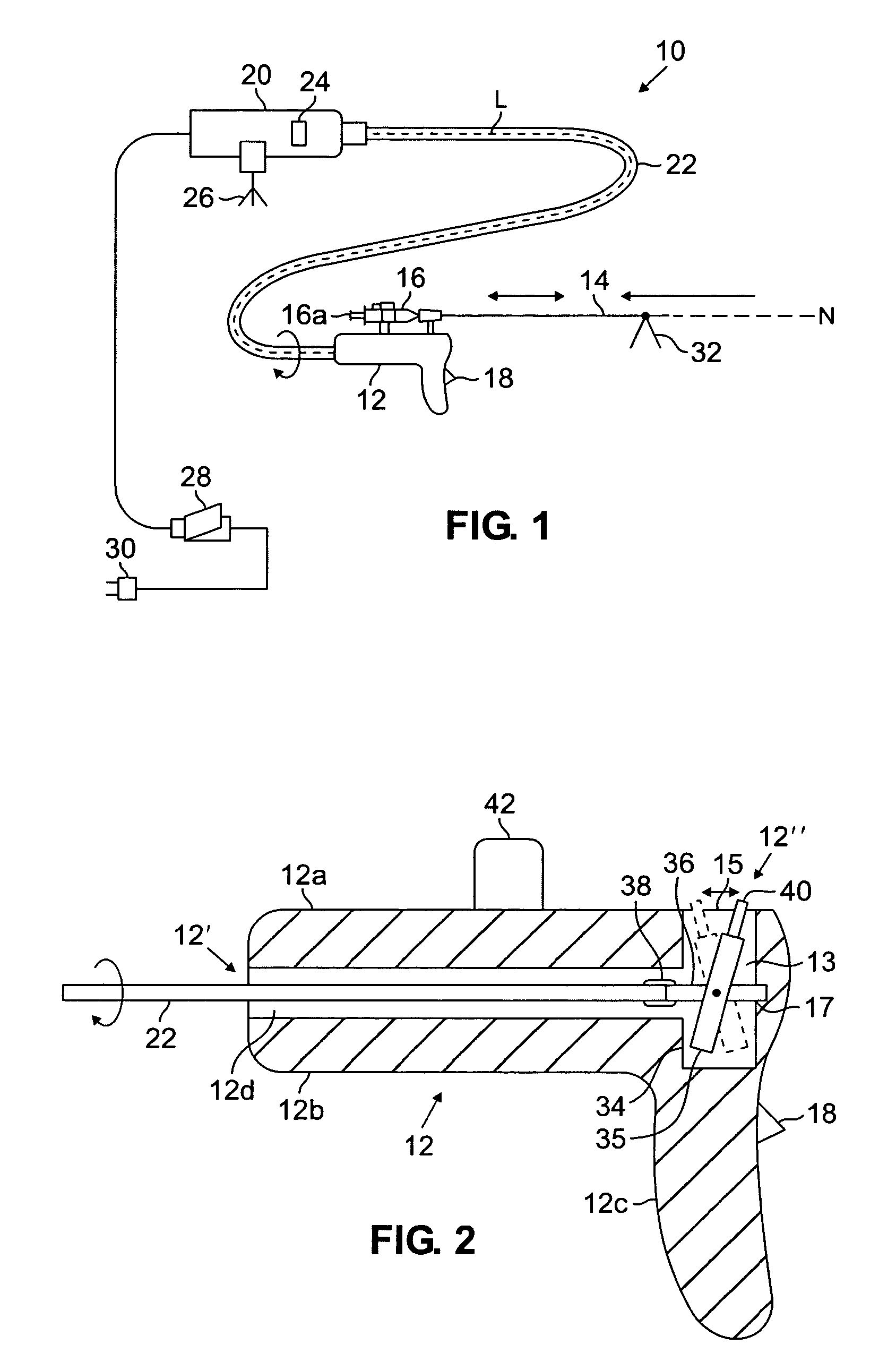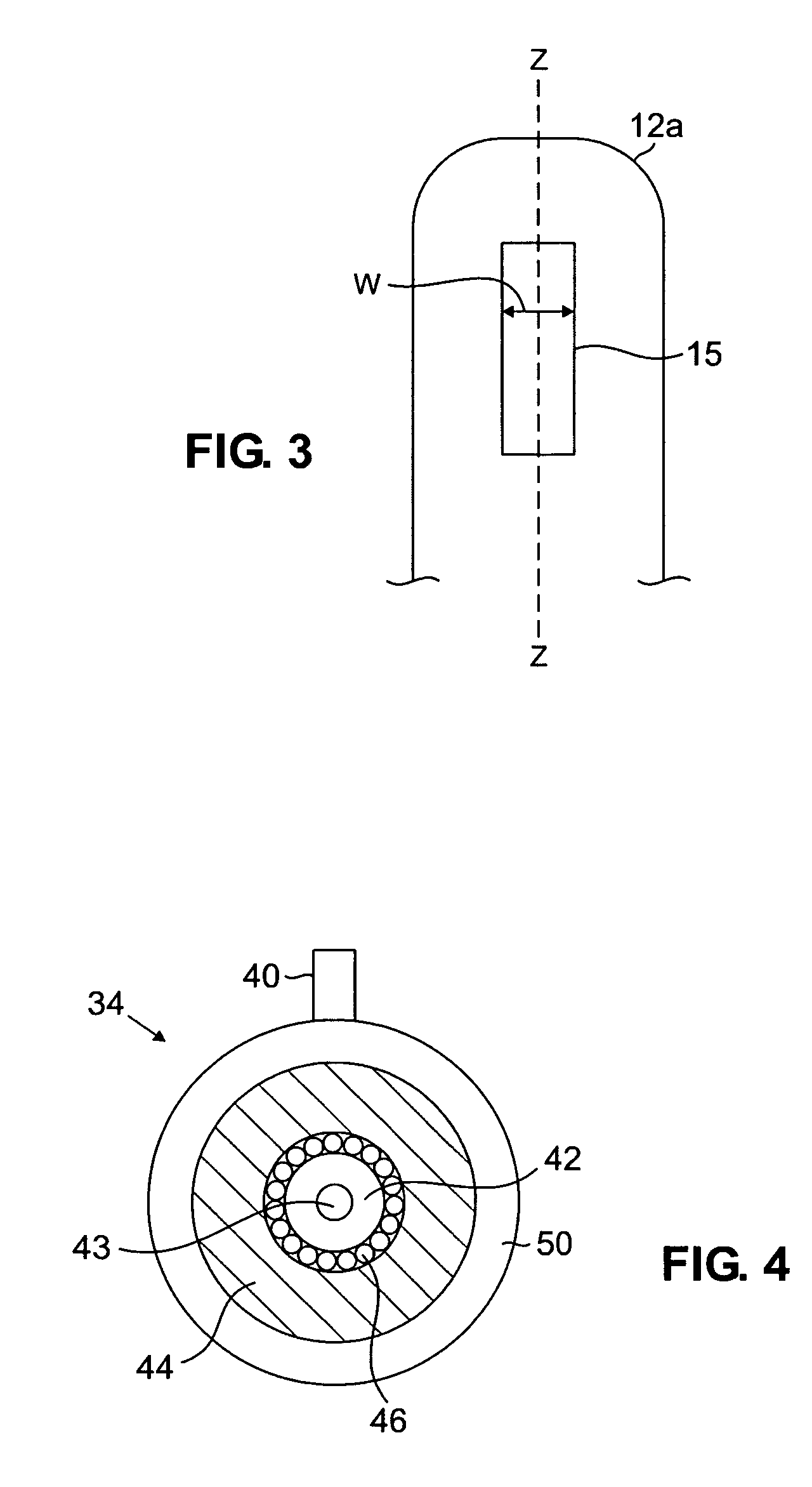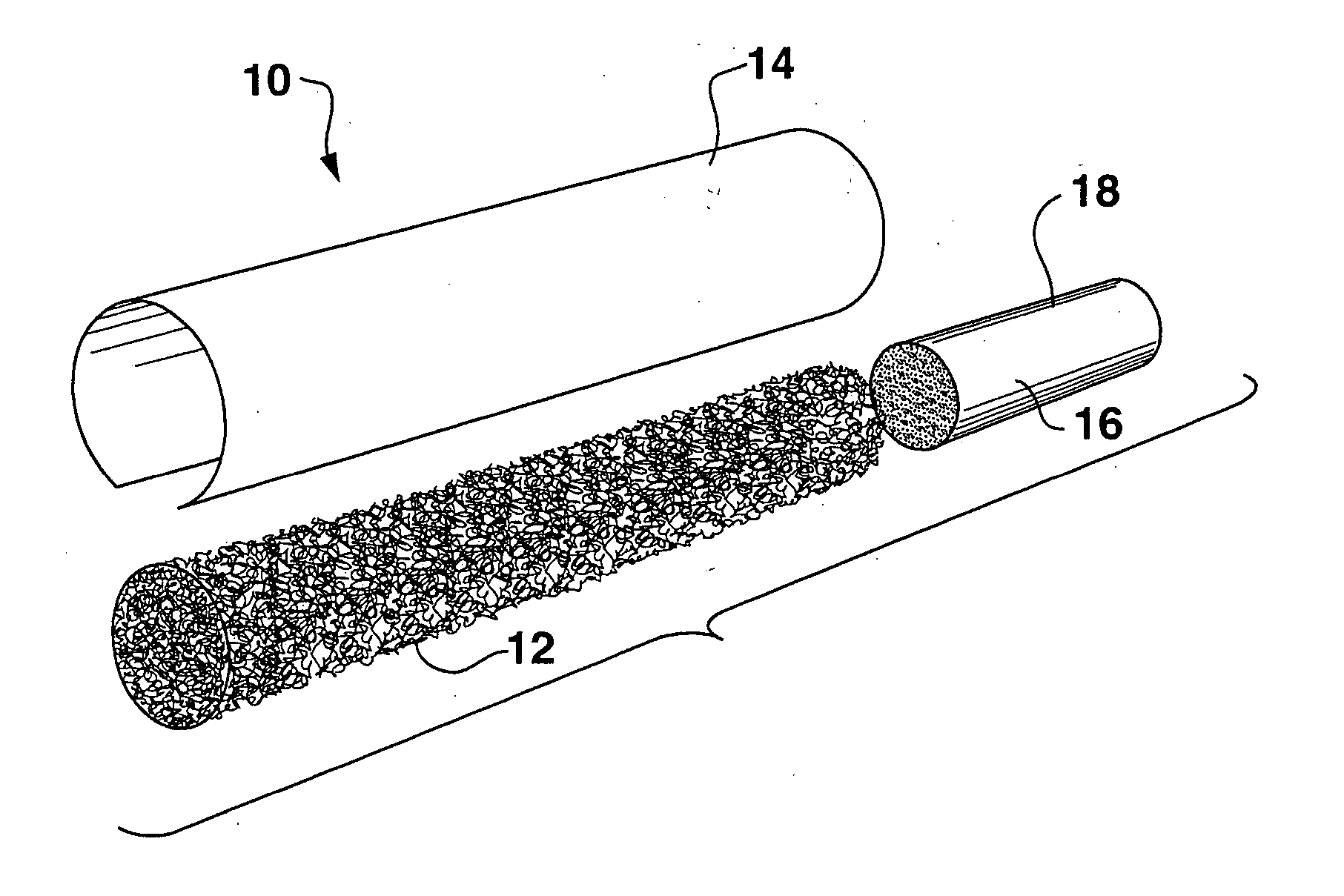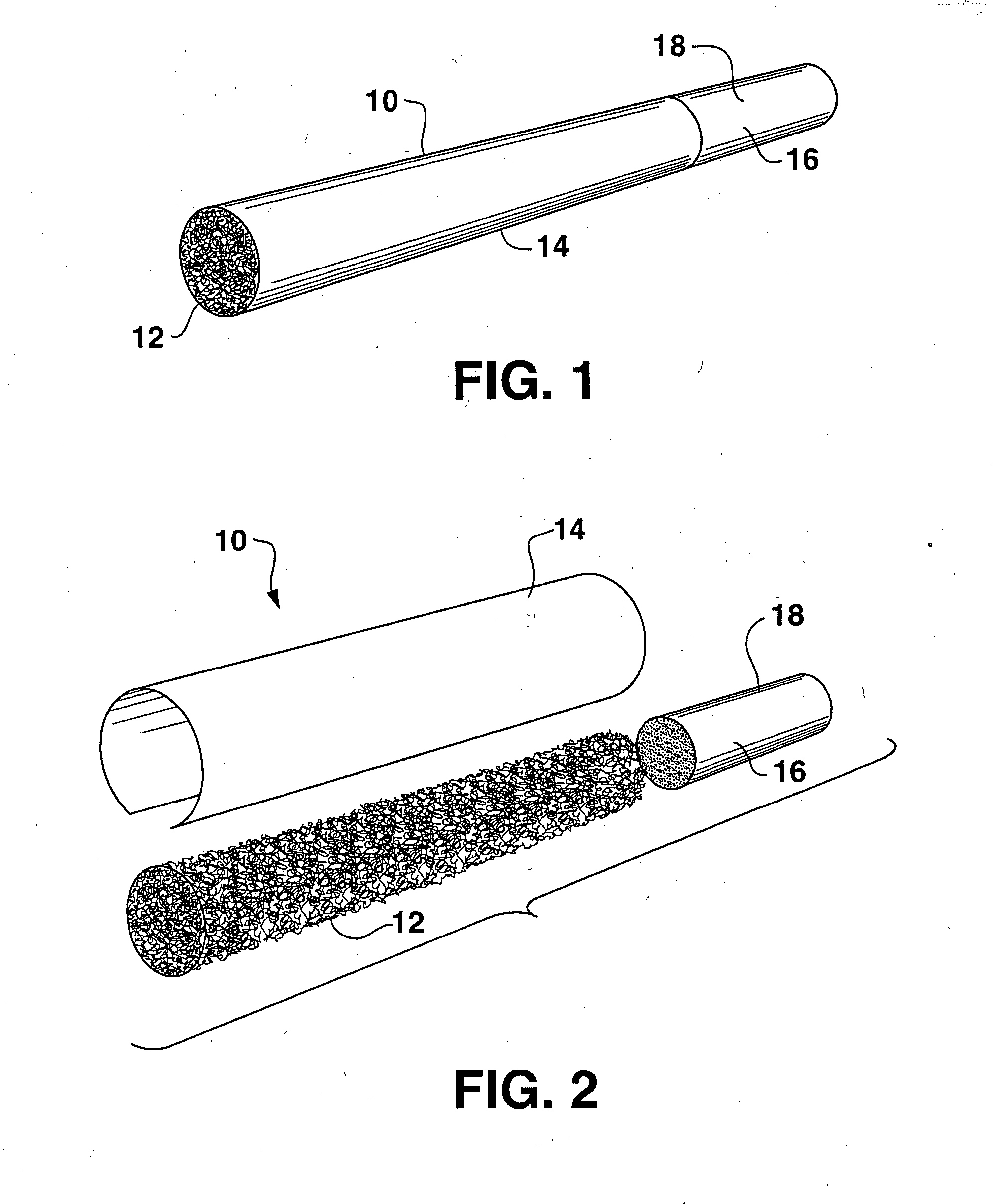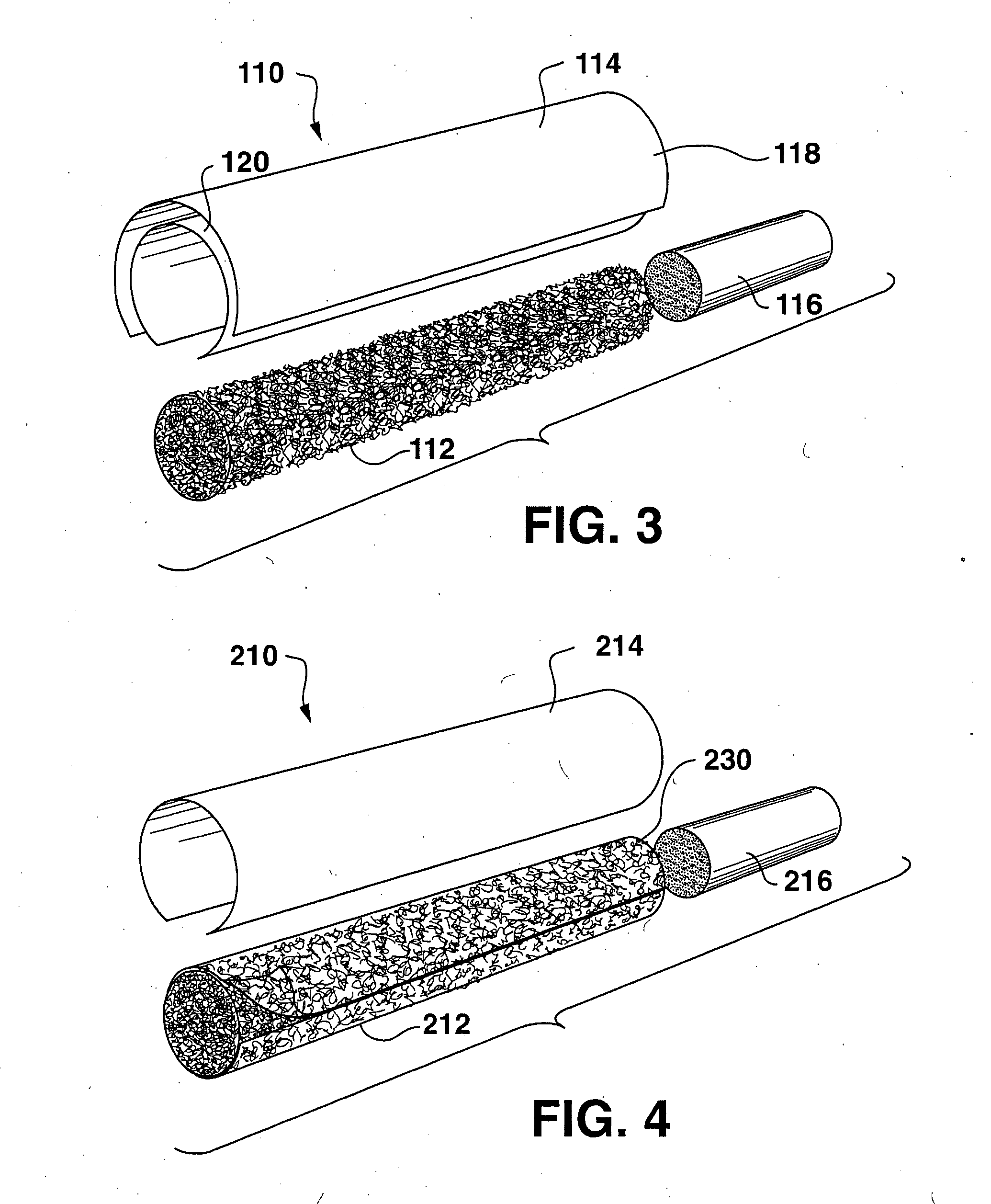Patents
Literature
Hiro is an intelligent assistant for R&D personnel, combined with Patent DNA, to facilitate innovative research.
4735results about How to "Reduce penetration" patented technology
Efficacy Topic
Property
Owner
Technical Advancement
Application Domain
Technology Topic
Technology Field Word
Patent Country/Region
Patent Type
Patent Status
Application Year
Inventor
Energy Biopsy Device for Tissue Penetration and Hemostasis
InactiveUS20080200835A1Reduces tissue penetration forceExpand accessSurgical needlesVaccination/ovulation diagnosticsEnergy basedBiopsy device
A biopsy system having a lateral tissue access port includes an energy based tissue penetration system that can advantageously penetrate hard tumors, improve hemostasis, and provide greater tissue access. The energy based tissue penetration system has a vibrational member removeably disposed within the biopsy system, and a distal tip of the vibrational member extending from the biopsy system for tissue penetration. A sleeve is located between the vibrational member and the lateral access port to prevent tissue contact with the vibrational member through the lateral access port.
Owner:DEVICOR MEDICAL PROD
Remediation method
InactiveUS6102622AHigh concentration of pollutantsLow viscosityConstructionsSolid waste disposalPollutantWellhead
Owner:BOARD OF RGT THE UNIV OF TEXAS SYST
Calcium phosphate microcarriers and microspheres
InactiveUS6210715B1Increase resorbabilityCompressive strengthPowder deliveryBiocideChemistryCalcium biphosphate
The present invention provides calcium phosphate-based (CAP) microcarriers and microspheres and their use in cell culturing systems, chromatography and implantable biomedical materials.
Owner:CAP BIOTECH
Process for the production of thin semiconductor material films
InactiveUSRE39484E1Uniform and controlled thicknessHigh implantationFluid pressure measurement by electric/magnetic elementsSolid-state devicesIon bombardmentMicrobubbles
Process for the preparation of thin monocrystalline or polycrystalline semiconductor material films, characterized in that it comprises subjecting a semiconductor material wafer having a planar face to the three following stages: a first stage of implantation by bombardment (2) of the face (4) of the said wafer (1) by means of ions creating in the volume of said wafer a layer (3) of gaseous microbubbles defining in the volume of said wafer a lower region (6) constituting the mass of the substrate and an upper region (5) constituting the thin film, a second stage of intimately contacting the planar face (4) of said wafer with a stiffener (7) constituted by at least one rigid material layer, a third stage of heat treating the assembly of said wafer (1) and said stiffener (7) at a temperature above that at which the ion bombardment (2) was carried out and sufficient to create by a crystalline rearrangement effect in said wafer (1) and a pressure effect in the said microbubbles, a separation between the thin film (5) and the mass of the substrate (6).
Owner:COMMISSARIAT A LENERGIE ATOMIQUE ET AUX ENERGIES ALTERNATIVES
Composite magnetic core for switch-mode power converters
ActiveUS6980077B1Avoid Core SaturationLower average currentTransformers/inductances magnetic coresCores/yokesEddy currentConductor Coil
A composite magnetic core formed of a high permeability material and a lower permeability, high saturation flux density material prevents core saturation without an air gap and reduces eddy current losses and loss of inductance. The composite core is configured such that the low permeability, high saturation material is located where the flux accumulates from the high permeability sections. The presence of magnetic material having a relatively high permeability keeps the flux confined within the core thereby preventing fringing flux from spilling out into the winding arrangement. This composite core configuration balances the requirements of preventing core saturation and minimizing eddy current losses without increasing either the height or width of the core or the number of windings.
Owner:MYPAQ HLDG LTD
Rechargeable lithium/water, lithium/air batteries
InactiveUS20070221265A1Improve protectionEasy to controlFinal product manufacturePV power plantsHigh energyOptoelectronics
Electrochemical cells, and more specifically, rechargeable batteries comprising lithium anodes for use in water and / or air environments, as well as non-aqueous and non-air environments, are presented. In one embodiment, an electrochemical cell includes an anode comprising lithium and a multi-layered structure positioned between the anode and an electrolyte of the cell. A multi-layered structure can include at least a first single-ion conductive material layer (e.g., a lithiated metal layer), and at least a first polymeric layer positioned between the anode and the single-ion conductive material. The invention also can provide an electrode stabilization layer positioned within the electrode, i.e., between one portion and another portion of an electrode, to control depletion and re-plating of electrode material upon charge and discharge of a battery. Advantageously, electrochemical cells comprising combinations of structures described herein are not only compatible with environments that are typically unsuitable for lithium, but the cells may be also capable of displaying long cycle life, high lithium cycling efficiency, and high energy density.
Owner:SION POWER CORP
Methods for encapsulating nanocrystals
InactiveUS20080237540A1Reduce oxygen and moisture transmissionLow permeabilityOther chemical processesVacuum evaporation coatingMaterials scienceNanocrystal
The present invention provides methods for hermetically sealing luminescent nanocrystals, as well as compositions and containers comprising hermetically sealed luminescent nanocrystals. By hermetically sealing the luminescent nanocrystals, enhanced lifetime and luminescence can be achieved.
Owner:NANOSYS INC
Wet crepe, impingement-air dry process for making absorbent sheet
InactiveUS6432267B1Reduce penetrationIncrease flexibilityDrying using combination processesNon-fibrous pulp additionPulp and paper industryPaper sheet
A wet crepe, impingement-air dried process for producing absorbent paper sheet is disclosed. In preferred embodiments, the process utilizes recycle furnish and the web is delaminated as it is wet-creped from a Yankee dryer. Particular embodiments include high consistency (after-crepe) wet-shaping prior to impingement air drying on a drilled vacuum roll.
Owner:GPCP IP HLDG LLC
Dosage form having first and second coats
A dosage form comprising a composition comprising a drug surrounded by a first coat and a second coat with an exit for administering the drug to a patient; and a method of using the dosage form are disclosed for an indicated therapy.
Owner:ALZA CORP
Photovoltaic modules with a thermoplastic hot-melt adhesive layer and a process for their production
InactiveUS20070131274A1Fast and inexpensive for productionReduce weightFilm/foil adhesivesPV power plantsHot-melt adhesiveChemistry
The invention relates to photovoltaic modules with a specific thermoplastic adhesive layer and the production thereof.
Owner:STOLLWERCK GUNTHER +5
Magnetically-controllable delivery system for therapeutic agents
InactiveUS20060041182A1Enhanced magnetizationReduce penetrationStentsElectrotherapyMagnetic gradientMagnetization
A magnetic delivery system for delivering a magnetizable particle to a location in a body, the device includes a magnetizable object implanted in the body, wherein the magnetizable object includes a plurality of segments distributed throughout the magnetizable object and wherein the segments are configured to provide a magnetic gradient for attracting the magnetizable particle and an external source of a magnetic field capable of (i) magnetizing the magnetizable particle and (ii) increasing a degree of magnetization of the magnetizable object and thereby creating the magnetic gradient. A drug delivery system including the magnetic delivery system and a magnetizable particle associated with a therapeutic agent and / or a cell. A cell delivery system based on the magnetic delivery system and a magnetizable particle associated with a cell. A method of using the magnetic delivery system for delivery of a therapeutic agent and / or a cell to a targeted location in a body.
Owner:DREXEL UNIV
Polymeric Composites, Oilfield Elements Comprising Same, and Methods of Using Same in Oilfield Applications
InactiveUS20070142547A1Improve barrier propertiesImprove mechanical propertiesNon-metal conductorsLayered productsSubject matterEngineering
Oilfield elements and assemblies are described comprising a polymeric matrix formed into an oilfield element, and a plurality of expanded graphitic nanoflakes and / or nanoplatelets dispersed in the polymeric matrix. Methods of using the oilfield elements and assemblies including same in oilfield operations are also described. This abstract allows a searcher or other reader to quickly ascertain the subject matter of the disclosure. It will not be used to interpret or limit the scope or meaning of the claims. 37 CFR 1.72(b).
Owner:SCHLUMBERGER TECH CORP
Composite modular barrier structures and packages
InactiveUS20050249901A1Improve barrier propertiesRemove moistureNanotechWrappersNanoparticleDesiccant
A composite multi-layer barrier is produced by first vapor depositing a barrier under vacuum over a substrate of interest and then depositing an additional barrier at atmospheric pressure in a preferably thermoplastic layer. The resulting multi-layer barrier is then used to coat an article of interest in a lamination process wherein the thermoplastic layer is fused onto itself and the surface of the article. The vacuum-deposited barrier may consists of a first leveling polymer layer followed by an inorganic barrier material sputtered over the leveling layer and of an additional polymeric layer flash evaporated, deposited, and cured under vacuum. The thermoplastic polymeric layer is then deposited by extrusion, drawdown or roll coating at atmospheric pressure. The resulting multi-layer barrier may be stacked using the thermoplastic layer as bonding agent. Nano-particles may be included in the thermoplastic layer to improve the barrier properties of the structure. A desiccant material may also be included or added as a separate layer.
Owner:SIGMA LAB OF ARIZONA
Braided composite prosthesis
A prosthesis for transluminal implantation consists of a flexible tubular interbraided structure of metal or polymeric monofilaments, and polymeric multifilament yarns. The prosthesis can be elastically deformed to reduce its diameter through axial elongation. The monofilaments and multifilament yarns are arranged in axially spaced apart helices, concentric on a common central axis of the prosthesis. The monofilaments are selectively shaped before their interbraiding with the multifilament yarns, either by an age-hardening or other heat-setting stage, or a cold-working stage that controllably plastically deforms the strands. The shaped structural strands cooperate to impart to the prosthesis its nominal shape and resilience. The textile strands cooperate to provide a sheeting that occupies interstices between adjacent structural strands, to reduce permeability and thereby enhance the utility of the prosthesis as a vascular graft. An alternative embodiment prosthesis includes elastically and plastically deformable structural strands, selectively plastically deformed by cold-working then interbraided to form the prosthesis.
Owner:LIFESHIELD SCI
Three dimensional structure producing device and producing method
An apparatus for making a three-dimensional object includes a powdery layer-forming unit for forming a powdery layer on a table and an optical beam-irradiating unit for irradiating an optical beam on a predetermined region of the powdery layer to sinter the predetermined region. The optical beam-irradiating unit is disposed at a position spaced from immediately above an optical beam-irradiating range to obliquely irradiate the optical beam on the powdery layer. Because fumes generated by irradiating and heating the powdery layer with the optical beam rise towards a position immediately above them, the optical beam is irradiated from the position spaced from immediately above the optical beam-irradiating range, thereby reducing a cloud of the optical beam-irradiating unit that may be caused by the fumes.
Owner:MATSUSHITA ELECTRIC WORKS LTD
Electrode protection in both aqueous and non-aqueous electrochemical cells, including rechargeable lithium batteries
ActiveUS20070224502A1Preventing electronic communicationAvoid communicationFinal product manufactureElectrode carriers/collectorsHigh energyConductive materials
Electrode protection in electrochemical cells, and more specifically, electrode protection in both aqueous and non-aqueous electrochemical cells, including rechargeable lithium batteries, are presented. In one embodiment, an electrochemical cell includes an anode comprising lithium and a multi-layered structure positioned between the anode and an electrolyte of the cell. A multi-layered structure can include at least a first single-ion conductive material layer (e.g., a lithiated metal layer), and at least a first polymeric layer positioned between the anode and the single-ion conductive material. The invention also can provide an electrode stabilization layer positioned within the electrode, i.e., between one portion and another portion of an electrode, to control depletion and re-plating of electrode material upon charge and discharge of a battery. Advantageously, electrochemical cells comprising combinations of structures described herein are not only compatible with environments that are typically unsuitable for lithium, but the cells may be also capable of displaying long cycle life, high lithium cycling efficiency, and high energy density.
Owner:SION POWER CORP
Methods of treatment using a bariatric sleeve
InactiveUS20050080395A1Reduce twisting and bucklingReduce penetrationSuture equipmentsStentsGastrointestinal deviceLigament structure
Method and apparatus for limiting absorption of food products in specific parts of the digestive system is presented. A gastrointestinal implant device is anchored in the stomach and extends beyond the ligament of Treitz. All food exiting the stomach is funneled through the device. The gastrointestinal device includes an anchor for anchoring the device to the stomach and a flexible sleeve to limit absorption of nutrients in the duodenum. The anchor is collapsible for endoscopic delivery and removal.
Owner:GI DYNAMICS
Dual drug dosage forms with improved separation of drugs
InactiveUS20050013863A1Reduces and prevents any migrationReduce penetrationCoatingsBlood disorderMedicineImmediate release
Drug tablets that include a prolonged-release core and an immediate-release layer or shell are prepared with a thin barrier layer of drug-free polymer between the prolonged-release and immediate-release portions of the tablet. The barrier layer is penetrable by gastrointestinal fluid, thereby providing full access of the gastrointestinal fluid to the prolonged-release core, but remains intact during the application of the immediate-release layer, substantially reducing or eliminating any penetration of the immediate-release drug into the prolonged-release portion.
Owner:DEPOMED SYST INC
Cementing compositions and application of such compositions to cementing oil wells or the like
InactiveUS6874578B1Improve mechanical propertiesReduce penetrationFluid removalDrilling compositionPolymer sciencePortland cement
Method of well cementing with a foamed slurry having a very low water content. When based on ordinary cement, the solid fraction of the slurry includes (by volume) 20-35% Portland cement, 35-65% particles ranging from 200 μm to 600 μm, and 5% to 25% of fine particles in the range 0.5 μm to 5 μm and the water content is less than 50% by volume. When based on micro-cement, the solid fraction includes (by volume) 50-75% micro-cement, 15-40% fine particles in the range 0.5 μm to 5 μm, and 0-20% particles in the rang 3 nanometers to 60 nanometers and the water content is less than 72% by volume.
Owner:SCHLUMBERGER TECH CORP
Non-fouling, Anti-microbial, Anti-thrombogenic graft-from compositions
InactiveUS20100152708A1Reduce penetrationRadiation applicationsSurgeryMicroorganismPolymer substrate
Substrates, optionally coated with an undercoating layer, having grafted there from one or more non-fouling materials are described herein. The non-fouling, polymeric material can be grafted from a variety of substrate materials, particularly polymeric substrates and / or polymeric undercoating layers. The graft-from techniques described herein can result in higher surface densities of the non-fouling material relative to graft-to formulations. Graft-from methods can be used to produce covalently tethered polymers. The compositions described herein are highly resistant protein absorption, particularly in complex media and retain a high degree of non-fouling activity over long periods of time. The compositions described herein may also demonstrate antimicrobial and / or anti-thrombogenic activity. The non-fouling material can be grafted from the substrate, or optionally from an undercoating layer on the substrate, preferably without significantly affecting the mechanical and / or physical properties of the substrate material.
Owner:ARROW INT INC
Cleveland round tip (CRT) needle
InactiveUS20080027387A1Mitigating penetration injuryImprove permeabilityGuide needlesInfusion syringesMedicineSurgery
Owner:GRABINSKY ANDREAS
Semiconductor devices with reduced active region defects and unique contacting schemes
InactiveUS20060057825A1Increase speedHigh QYSolid-state devicesSemiconductor/solid-state device manufacturingMOSFETSemiconductor materials
A method of making a semiconductor device having a predetermined epitaxial region, such as an active region, with reduced defect density includes the steps of: (a) forming a dielectric cladding region on a major surface of a single crystal body of a first material; (b) forming a first opening that extends to a first depth into the cladding region; (c) forming a smaller second opening, within the first opening, that extends to a second depth greater than the first depth and that exposes an underlying portion of the major surface of the single crystal body; (d) epitaxially growing regions of a second semiconductor material in each of the openings and on the top of the cladding region; (e) controlling the dimensions of the second opening so that defects are confined to the epitaxial regions grown within the second opening and on top of the cladding region, a first predetermined region being located within the first opening and being essentially free of defects; (f) planarizing the top of the device to remove all epitaxial regions that extend above the top of the cladding layer, thereby making the top of the first predetermined region grown in the second opening essentially flush with the top of the cladding region; and (g) performing additional steps to complete the fabrication of the device. Also described are unique devices, such as photodetectors and MOSFETs, fabricated by this method, as well as unique contacting configurations that enhance their performance.
Owner:NOBLE DEVICE TECH CORP +2
Multilayer chlorine-free film with polyester barrier layer and ostomy pouches formed therefrom
InactiveUS6258423B1Good odor barrier propertyMinimal noiseSynthetic resin layered productsColostomyLow noisePolyethylene terephthalate glycol
A multilayer heat-sealable chlorine-free film of relatively low modulus, high interlaminar strength, and low noise upon flexing is provided. The film comprises an odor barrier layer of polyester resin and at least one heat-sealable skin layer, preferably two such skin layers on opposite sides of said odor barrier layer, composed of a homopolymer of ethylene or a copolymer of ethylene and an alpha-olefin or an ester-containing monomer. In a preferred embodiment, the odor barrier layer is formed of polyethylene terephthalate and adhesive tie layers are interposed between the odor barrier layer and the skin layers, resulting in a multilayer film of five layers. Pouches formed of such multilayer films are also disclosed.
Owner:HOLLISTER INCORPORAED
Hydrocarbon recovery from impermeable oil shales
InactiveUS20070023186A1Reduce penetrationAvoid insufficient heatingInsulationFluid removalKerogenCooling fluid
An economic method for in situ maturing and production of oil shale or other deep-lying, impermeable resources containing immobile hydrocarbons. Vertical fractures are created using horizontal or vertical wells. The same or other wells are used to inject pressurized fluids heated to less than approximately 370° C., and to return the cooled fluid for reheating and recycling. The heat transferred to the oil shale gradually matures the kerogen to oil and gas as the temperature in the shale is brought up, and also promotes permeability within the shale in the form of small fractures sufficient to allow the shale to flow into the well fractures where the product is collected commingled with the heating fluid and separated out before the heating fluid is recycled.
Owner:EXXONMOBIL UPSTREAM RES CO
Capillary Pumps for Vaporization of Liquids
InactiveUS20090324206A1Improve permeabilityIncrease ratingsReactant parameters controlMixing methodsVaporizationEngineering
A capillary pump is provided for producing pressurized and unpressurized vapor emissions from liquid feed. In its simplest form, the capillary pump incorporates a liquid feed intake, a porous vaporization component, and a heat transfer component. Additional components, such as an insulator component, a feed pre-heat component, a liquid feed reservoir and / or delivery system, an integrated or associated heater component, a vapor collection chamber, a heat distribution component, an orifice component and / or vapor release component, may also be associated with or integrated in the improved capillary pumps. Capillary pump arrays are provided, and numerous applications for capillary pumps are disclosed.
Owner:VAPORE
Semiconductor devices with reduced active region defects and unique contacting schemes
InactiveUS7012314B2Increase speedHigh QYSolid-state devicesSemiconductor/solid-state device manufacturingMOSFETSemiconductor materials
A method of making a semiconductor device having a predetermined epitaxial region, such as an active region, with reduced defect density includes the steps of: (a) forming a dielectric cladding region on a major surface of a single crystal body of a first material; (b) forming a first opening that extends to a first depth into the cladding region; (c) forming a smaller second opening, within the first opening, that extends to a second depth greater than the first depth and that exposes an underlying portion of the major surface of the single crystal body; (d) epitaxially growing regions of a second semiconductor material in each of the openings and on the top of the cladding region; (e) controlling the dimensions of the second opening so that defects are confined to the epitaxial regions grown within the second opening and on top of the cladding region, a first predetermined region being located within the first opening and being essentially free of defects; (D planarizing the top of the device to remove all epitaxial regions that extend above the top of the cladding layer, thereby making the top of the first predetermined region grown in the second opening essentially flush with the top of the cladding region; and (g) performing additional steps to complete the fabrication of the device. Also described are unique devices, such as photodetectors and MOSFETs, fabricated by this method, as well as unique contacting configurations that enhance their performance.
Owner:NOBLE DEVICE TECH CORP +1
Wear assembly
ActiveUS7882649B2Reduce penetrationImprove stabilitySoil-shifting machines/dredgersCouplingClassical mechanics
A wear assembly for excavating equipment which includes a wear member and a base each with upper and lower stabilizing surfaces that are offset and at overlapping depths to reduce the overall depth of the assembly while maintaining high strength and a stable coupling. The nose and socket each includes a generally triangular-shaped front stabilizing end to provide a highly stable front connection between the nose and wear member for both vertical and side loading. The lock is movable between hold and release positions to accommodate replacing of the wear member when needed, and secured to the wear member for shipping and storage purposes.
Owner:ESCO GRP LLC
Piercing Member for Container Access Device
ActiveUS20150082746A1Reduce decreaseReduce penetrationInfusion devicesPharmaceutical containersBiomedical engineering
Owner:BECTON DICKINSON & CO
Method of conducting a needle biopsy procedure
InactiveUS7008383B1Reduce harmReduce frictionSurgical needlesVaccination/ovulation diagnosticsBiopsy procedureReciprocating motion
A vibration assisted needle device is disclosed for use in medical procedures such as needle aspiration biopsies. Reciprocation of the needle, such as a biopsy needle, eases the advance of the needle through tissue, penetration of the site of interest and the collection of sample at a site of interest. The device comprises a housing defining a chamber, a needle support external to the chamber for supporting a needle and a mechanism in the chamber for causing reciprocatory motion of the needle support. The needle support is preferably external to the housing. A syringe support may be connected to the housing for supporting a syringe. The reciprocatory mechanism may comprise means for converting rotational motion into reciprocating motion, such as a bearing or a rotor with a circumferential, angled groove on its surface, coupled to the needle support. The bearing or the rotor may be driven by a rotational motor, preferably located outside of the housing, or by a hydraulically driven turbine within the housing. Alternatively, the reciprocatory mechanism means may comprise a stationary solenoid and a movable solenoid for being coupled to the needle. Preferably, a second stationary solenoid is provided and the moving solenoid is between the two stationary solenoids. Energization of the stationary solenoid or solenoids by an alternating current for example, and energization of the movable solenoid by a direct current, or vice versa, attracts and repulses the movable solenoid, causing reciprocation of the needle. Methods and systems using the vibration assisted needle device are also disclosed.
Owner:FONAR
Smoking articles having reduced carbon monoxide delivery
InactiveUS20050005947A1Reduce penetrationReduce ignition proclivityTobacco preparationNon-fibrous pulp additionCarbonateReducing agent
The present invention is directed to smoking articles having reduced carbon monoxide delivery are described. A carbon monoxide reducing agent is incorporated into the smoking article in order to reduce carbon monoxide levels in mainstream smoke. The carbon monoxide reducing agent may be, for instance, in metal oxide or in metal carbonate. The carbon monoxide reducing agent may be incorporated into a wrapper and / or into a column of smokable filler that are used to construct the smoking article.
Owner:SCHWEITZER MAUDUIT INT INC
Features
- R&D
- Intellectual Property
- Life Sciences
- Materials
- Tech Scout
Why Patsnap Eureka
- Unparalleled Data Quality
- Higher Quality Content
- 60% Fewer Hallucinations
Social media
Patsnap Eureka Blog
Learn More Browse by: Latest US Patents, China's latest patents, Technical Efficacy Thesaurus, Application Domain, Technology Topic, Popular Technical Reports.
© 2025 PatSnap. All rights reserved.Legal|Privacy policy|Modern Slavery Act Transparency Statement|Sitemap|About US| Contact US: help@patsnap.com
